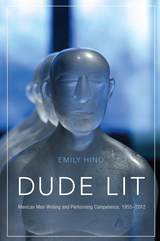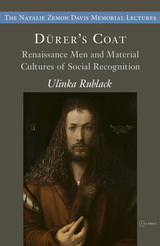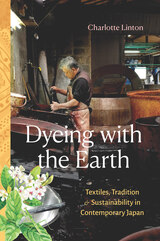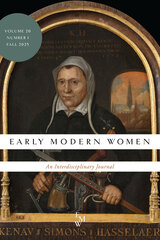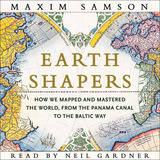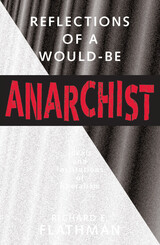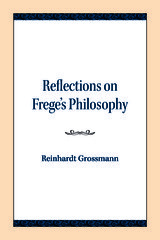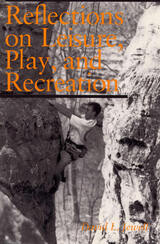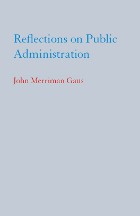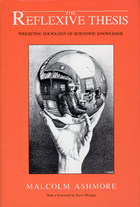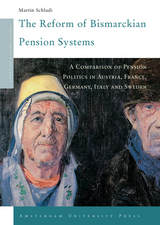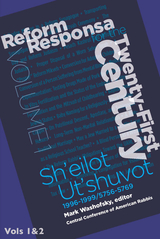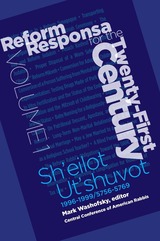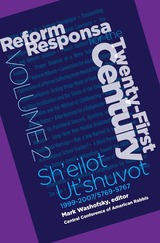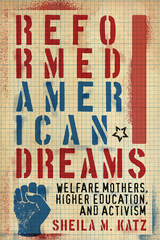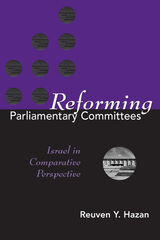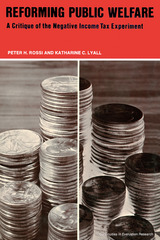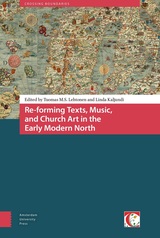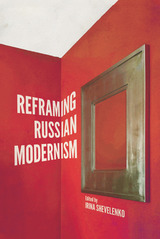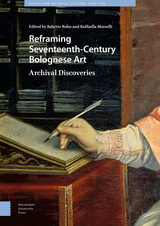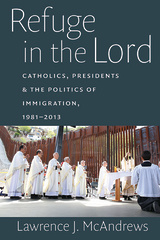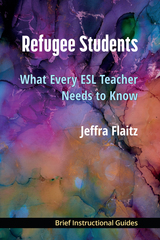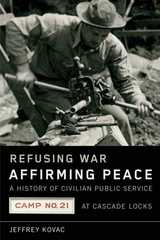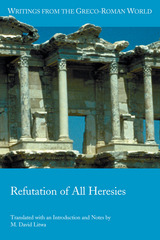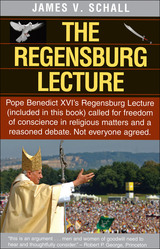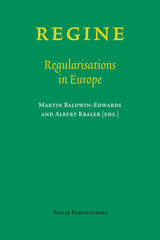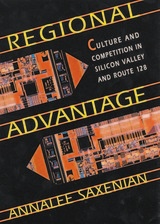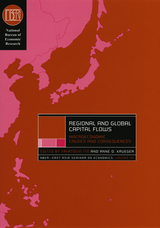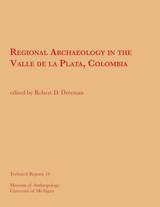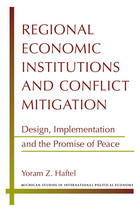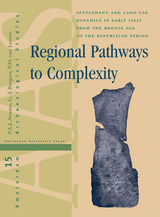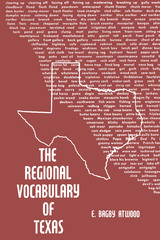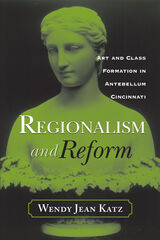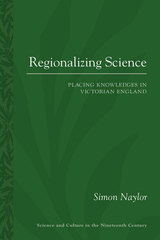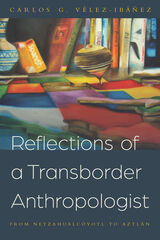 Reflections of a Transborder Anthropologist: From Netzahualcóyotl to Aztlán
Carlos G. Vélez-Ibáñez
University of Arizona Press, 2020 Taking us on a journey of remembering and rediscovery, anthropologist Carlos G. Vélez-Ibáñez explores his development as a scholar and in so doing the development of the interdisciplinary fields of transborder and applied anthropology. He shows us his path through anthropology as both a theoretical and an applied anthropologist whose work has strongly influenced borderlands and applied research. Importantly, he explains the underlying, often hidden process that led to his long insistence on making a difference in lives of people of Mexican origin on both sides of the border and to contribute to a “People with Histories.”
In each chapter, Vélez-Ibáñez revisits a critical piece of his written work, providing a new introduction and discussion of ideas, sources, and influences for the piece. These are followed by the work, chosen because it accentuates key aspects of his development and formation as an anthropologist. By returning to these previously published works, Vélez-Ibáñez offers insight not only into the evolution of his own thinking and conceptualization but also into changes in the fields in which he has been so influential. Throughout his career, Vélez-Ibáñez has addressed why he does the work that he does, and in this volume he continues to address the personal and intellectual drives that have brought him from Netzahualcóyotl to Aztlán.
Reflections of a Transborder Anthropologist shows how both Vélez-Ibáñez and anthropology have changed and formed over a fifty-year period. Throughout, he has worked to understand how people survive and thrive against all odds. Vélez-Ibáñez has been guided by the burning desire to understand inequality, exploitation, and legitimacy, and, most importantly, to provide platforms for the voiceless to narrate their own histories.
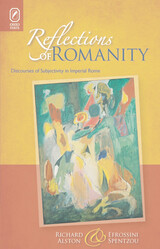 Reflections of Romanity: Discourses of Subjectivity in Imperial Rome
Richard Alston
Ohio State University Press, 2011 Reflections of Romanity: Discourses of Subjectivity in Imperial Rome, by Richard Alston and Efrossini Spentzou, challenges and provokes debate about how we understand the Roman world, and ourselves, by engagement with the early imperial literature of the mid-first to early second-century CE. Alston and Spentzou explore Roman subjectivity to illuminate a society whose fragmentation presented considerable challenges to contemporary thinkers. These members of the elite and intellectual classes faced complex ideological choices in relation to how they could define themselves in relation to imperial society. Reflections of Romanity draws on present-day reflections on selfhood while at the same time uncovering processes of self-analysis, notably by tracing individuals’ reactions to moments of crisis or uncertainty. Thus it sets up a dialogue between the ancient texts it discusses, including the epics of Lucan and Statius, the letters of the Younger Pliny, Silius Italicus’ Punica, and Tacitus’ historical writings, and works of the modern period. Given the importance of classical thinking about the self in modern thought, this book addresses both a classical and a philosophical/literary critical audience.
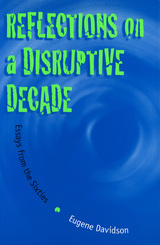 Reflections on a Disruptive Decade: Essays from the Sixties
Eugene Davidson
University of Missouri Press, 2000 As editor of Modern Age in the 1960s, Eugene Davidson introduced each quarterly issue with a thought-provoking contemplation of one or another of the decade's dizzying events. Gathered together here for the first time, the essays in Reflections on a Disruptive Decade present an intellectual conservative's perspective on an era which, because it underscores so many of the political divisions still with us today, continues to hold our fascination. Davidson deals with the marvelous but confused realm of post-1945 international politics, in which the American people faced a new enemy, one often baffling and terrifying. The Cuban missile crisis was probably the most uncertain moment in foreign policy during this century. Although the crisis was resolved without bloodshed, there was intense danger of irrationality, for the Russians foolhardily had sent nuclear missiles to Cuba. Other topics Davidson addresses are the Civil Rights movement, the policies and programs of Lyndon Johnson's Great Society, and the East-West battles of ideology and arms in Europe, Vietnam, and the Middle East. With remarkable shrewdness, Davidson illuminates many contradictions and excesses of the decade's liberal ascendancy, and presciently detects signs pointing to a resurgence of the nation's conservative forces. Although more than thirty years have passed, Davidson's essays still contain great clarity, and his appraisals are still keen. Reflections on a Disruptive Decade is a truly remarkable addition to the work of this distinguished scholar.
Reflections on Baroque
Robert Harbison
University of Chicago Press, 2001 From its beginnings in the seventeenth century, the eccentric and tumultuous forms of the Baroque spread across not only Europe but colonial Latin America and Asia as well. With Reflections on Baroque, Robert Harbison brings together discussions of aesthetics, science, mysticism, politics, religion, and culture to offer a surprising reinterpretations of the baroque style and its influences and echoes into the twentieth century.
 Reflections on Exile and Other Essays
Edward W. Said
Harvard University Press, 2000 With their powerful blend of political and aesthetic concerns, Edward W. Said's writings have transformed the field of literary studies. This long-awaited collection of literary and cultural essays, the first since Harvard University Press published The World, the Text, and the Critic in 1983, reconfirms what no one can doubt--that Said is the most impressive, consequential, and elegant critic of our time--and offers further evidence of how much the fully engaged critical mind can contribute to the reservoir of value, thought, and action essential to our lives and our culture.
As in the title essay, the widely admired "Reflections on Exile," the fact of his own exile and the fate of the Palestinians have given both form and the force of intimacy to the questions Said has pursued. Taken together, these essays--from the famous to those that will surprise even Said's most assiduous followers--afford rare insight into the formation of a critic and the development of an intellectual vocation. Said's topics are many and diverse, from the movie heroics of Tarzan to the machismo of Ernest Hemingway to the shades of difference that divide Alexandria and Cairo. He offers major reconsiderations of writers and artists such as George Orwell, Giambattista Vico, Georg Lukacs, R. P. Blackmur, E. M. Cioran, Naguib Mahfouz, Herman Melville, Joseph Conrad, Walter Lippman, Samuel Huntington, Antonio Gramsci, and Raymond Williams. Invigorating, edifying, acutely attentive to the vying pressures of personal and historical experience, his book is a source of immeasurable intellectual delight.
Reflections on Frege's Philosophy
Reinhardt Grossmann
Northwestern University Press, 1969 In Reflections on Frege’s Philosophy, Reinhardt Grossmann investigates the most important themes in the philosophy of Friedrich Ludwig Gottlob Frege (1848-1925): his distinction between objects and functions, his characterization of numbers as nonmental classes, his theory of sense and reference, and his ontology of truth-values. Grossmann examines Frege’s solutions to basic philosophical problems, and where he finds them inadequate provides what he considers to be more viable alternatives. Grossmann argues that an ontology should contain states of affairs rather than Fregean senses, and that the sense-reference distinction, Frege’s most original and famous metaphysical innovation, must ultimately be rejected. This study is both an exposition of Frege’s philosophy and an original contribution to the philosophical enterprise.
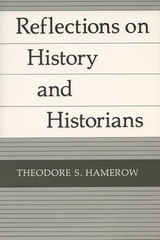 Reflections on History and Historians
Theodore S. Hamerow
University of Wisconsin Press, 1990 History as a field of learning is in a state of crisis. It has lost much of its influence in institutions of higher learning and its place in public esteem. Historians have, in large part, lost touch with the intelligent lay reader and with the undergraduate college student. History’s value to society is being questioned. In this work, a distinguished historian views the profession to which he has been devoted for more than thirty years. Theodore S. Hamerow’s learned observations will be welcomed by all historians and by those involved in the management of higher education, and should be required reading for all graduate students in history.
Far from being a sentimental look at the past, Hamerow’s work confronts the unpleasant reality of the present. History, he says flatly, is a discipline in retreat. The profession is in serious trouble and there are no signs that its problems will be resolved in the foreseeable future.
After identifying the current crisis, Hamerow proceeds to trace the development of the profession over the last hundred years and to examine its characteristics in modern society. In this section of the book he shares some fascinating practical observations on the ways in which the profession operates. Hamerow explains why some historians rise to prominence while others do not. He also examines causes of the dissatisfactions that afflict many historians and their students.
Hamerow also examines the way in which academic historians live their lives, as he expands on the daily realities that they face. He then explains how those realities have shaped scholarship and led to the “new history.” The broad use of social science methods, he observes, has had the effect of isolating the new historians from traditional historians, indeed from one another. Couched in the arcane prose of machine-readable languages, says Hamerow, history has become inaccessible to the intelligent lay reader who had once read historical works with interest, understanding, and appreciation.
In concluding his examination, Hamerow asks, “What is the use of history?” It has long been a favorite question asked by historians, but seldom one over which they agonized for very long. After considering various arguments for the usefulness of historical investigation, Hamerow offers his own justification.
There are times, says Hamerow, when even the most spontaneous or instructive cultural pursuits need to be examined in the light of the purposes they serve and the goals they seek. Now might be a good time for all historians to take a long look at the direction their discipline has taken in the past century, at the functions it has come to perform, and at the serious dilemma it now faces. Hamerow is a steady and helpful guide to any such examination.
 Reflections on Judging
Richard A. Posner
Harvard University Press, 2013 In Reflections on Judging, Richard Posner distills the experience of his thirty-one years as a judge of the United States Court of Appeals for the Seventh Circuit. Surveying how the judiciary has changed since his 1981 appointment, he engages the issues at stake today, suggesting how lawyers should argue cases and judges decide them, how trials can be improved, and, most urgently, how to cope with the dizzying pace of technological advance that makes litigation ever more challenging to judges and lawyers.
For Posner, legal formalism presents one of the main obstacles to tackling these problems. Formalist judges--most notably Justice Antonin Scalia--needlessly complicate the legal process by advocating "canons of constructions" (principles for interpreting statutes and the Constitution) that are confusing and self-contradictory. Posner calls instead for a renewed commitment to legal realism, whereby a good judge gathers facts, carefully considers context, and comes to a sensible conclusion that avoids inflicting collateral damage on other areas of the law. This, Posner believes, was the approach of the jurists he most admires and seeks to emulate: Oliver Wendell Holmes, Louis Brandeis, Benjamin Cardozo, Learned Hand, Robert Jackson, and Henry Friendly, and it is an approach that can best resolve our twenty-first-century legal disputes.
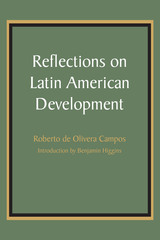 Reflections on Latin American Development
By Roberto de Olivera Campos; introduction by Benjamin Higgins
University of Texas Press, 1967 Economic development has been an challenge facing the countries of Latin America. Because the United States, from the very nature of its geographic and economic relationship with its southern neighbors, must inevitably exercise a strong influence on the course which that development takes, it is important that North Americans understand conditions in Latin America and the attitudes of its peoples. Roberto de Oliveira Campos, former Brazilian Minister of Economic Planning, is in a unique position to evaluate both past accomplishments and future problems. In this group of essays, Campos gives a comprehensive analysis of many aspects of Latin American development in the mid-twentieth century. He examines relations between the United States and Latin America from a variety of angles, and he outlines the basic problems of economic development, of governmental policy, and of public and private administration. He gives particular attention in several essays to the relationship of foreign trade and foreign aid to economic development, and he presents a long discussion of the Alliance for Progress—its history, its purposes, its accomplishments, and its failures. Campos’s philosophy regarding the role of the state in economic development and other questions emerges clearly from these pithy essays. “The valid distinction I see on the basis of my analysis of men and things is between pragmatic or functional nationalists and romantic or temperamental nationalists,” he writes. “The latter confuse intention with results. They start with enthusiasm and end in fanaticism, this being, according to Santayana, ‘the art of redoubling efforts after losing sight of objectives.’ . . . Many [romantic nationalists], though they do not confess it, favor the dangerous purgery of revolution. “The pragmatic nationalist seeks to operate within the frame of democratic institutions and prefers reform to revolution. As to myself, I shall continue considering myself a pragmatic nationalist. I renounce the temptation of mobilizing resentment in order to gain the authority to plan development. I would rather strengthen the national entrepreneur than merely antagonize the foreigner. I would want the state not to do what it cannot do in order to do what it should do. I prefer to love my own country rather than to hate the others’.”
Reflections on Leisure, Play, and Recreation
David L. Jewell
Southern Illinois University Press, 1997
In this rich and unique reference, David L. Jewell compiles the first anthology of reflections on leisure, play, and recreation.
As he began to collect these considered opinions, Jewell was pleased to discover that many people from quite diverse backgrounds shared his belief in the redeeming value of leisure, play, and recreation.
Jewell was less pleased, however, to note how often these judicious opinions have been ignored. Disproportionately high budget cuts in parks and recreation services demonstrate too clearly society’s view of leisure activities as frivolous and expendable. By selecting these voices of reason and making them available in a single volume, Jewell hopes to emphasize the "frailties of a capitalistic society’s demeaning perception" of anything other than work.
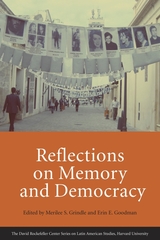 Reflections on Memory and Democracy
Merilee S. Grindle
Harvard University Press What is the role of history in the life of new democracies? In this volume, twelve reflections—the work of journalists, writers and poets, literary critics, political scientists, historians, philosophers, economists, and linguists—explore legacies of authoritarian political regimes noted for repression and injustice, questioning how collective experiences of violence shape memory and its relevance for contemporary social and political life in Latin America. The past matters deeply, the essayists agree, but the past itself is debatable and ambiguous. Avoiding its repetition introduces elusive and contested terrain; there are, indeed, many histories, many memories, and many ways they can be reflected in democratic contexts. In much of contemporary Latin America, this difficult past has not yet been fully confronted, and much remains to be done in reconciling memory and democracy throughout the region. As this is done, the lessons of the past must contribute not only to the construction of democratic institutions, but also to the engagement of democratic citizens in the collective work of governance and participation.
Reflections on Public Administration
John Merriman Gaus
University of Alabama Press, 2008 “In this classic, Gaus writes perceptively of the ‘ecology’ of public administration and its relationship to the rise of the administrative state. He recounts how crises and changes in people, place, physical technology, social technology, and philosophy in the first half of the 20th century led citizens repeatedly to look to government for relief. Politicians, in turn, created or expanded the powers of public agencies.” —Journal of Management History
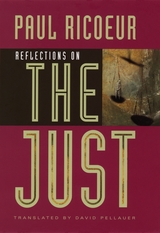 Reflections on the Just
Paul Ricoeur
University of Chicago Press, 2007 At the time of his death in 2005, French philosopher Paul Ricoeur was regarded as one of the great thinkers of his generation. In more than half a century of writing about the essential questions of human life, Ricoeur’s thought encompassed a vast range of wisdom and experience, and he made landmark contributions that would go on to influence later scholars in such areas as phenomenology, hermeneutics, structuralism, and theology.
Toward the end of his life, Ricoeur began to focus directly on ethical questions that he feared had been overshadowed by his other work; the result was a two-volume collection of essays on justice and the law. The University of Chicago Press published the English translation of the first volume, The Just, to great acclaim in 2000. Now this translation of the second volume, Reflections on the Just, completes the set and makes available to readers the whole of Ricoeur’s meditations on the concept.
Consisting of fifteen thematically organized essays, Reflections on the Just continues and expands on the work Ricoeur began in with his “little ethics” in Oneself as Another and The Just. In the preface, he considers what revisions he would make were he to start over and how that is reflected in these essays. The opening part brings phenomenology to bear on ethics; the second group of essays comprises shorter, occasional pieces considering the concept of justice in the works of other philosophers, including Max Weber and Charles Taylor. The final part turns to the specific domains of medicine and the law, examining how concepts of right and justice operate in those realms.
Cogent, deeply considered, and fully engaged with the realities of the contemporary world, Reflections on the Just is an essential work for understanding the development of Ricoeur’s thought in his final years.
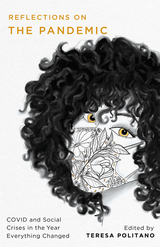 Reflections on the Pandemic: COVID and Social Crises in the Year Everything Changed
Teresa Politano
Rutgers University Press, 2024 Reflections on the Pandemic: COVID and Social Crises in the Year Everything Changed is a collection of essays, poems, and artwork that captures the raw energy and emotion of 2020 from the perspective of the Rutgers University community. The project features work from a diverse group of Rutgers scholars, students, staff, and alumni. Reflecting on 2020 from a number of perspectives – mortality, justice, freedom, equality, democracy, family, health, love, hate, economics, history, medicine, science, social justice, the environment, art, food, sanity – the book features contributions by Evie Shockley, Joyce Carol Oates, Naomi Jackson, Ulla Berg, Grace Lynne Haynes, Jordan Casteel, and President Jonathan Holloway, among others. This book, through its rich and imaginative storytelling at the intersection of scholarly expertise and personal narrative, brings readers into the hearts and minds of not just the Rutgers community but the world.
Contributors include: Patricia Akhimie, Marc Aronson, Ulla D. Berg, Stephanie Bonne, Stephanie Boyer, Kimberly Camp, Jordan Casteel, Kelly-Jane Cotter, Mark Doty, David Dreyfus, Adrienne E. Eaton, Katherine C. Epstein, Leah Falk, Paul G. Falkowski, Rigoberto González, James Goodman, David Greenberg, Angelique Haugerud, Grace Lynne Haynes, Leslieann Hobayan, Jonathan Holloway, James W. Hughes, Naomi Jackson, Amy Jordan, Vikki Katz, Mackenzie Kean, Robert E. Kopp, Christian Lighty, Stephen Masaryk, Louis P. Masur, Revathi V. Machan, Yalidy Matos, Belinda McKeon, Susan L. Miller, Yehoshua November, Joyce Carol Oates, Mary E. O’Dowd, Katherine Ognyanova, David Orr, Gregory Pardlo, Steve Pikiell, Teresa Politano, en Purkert, Nick Romanenko, Evie Shockley, Caridad Svich, and Didier William.
 Reflections on the Russian Soul: A Memoir
Dmitry S. Likhachev
Central European University Press, 2000 This compelling and often traumatic book is the memoir of one of the most important figures in modern Russian history, Dmitry S. Likhachev, revered as ‘a guardian of national culture’. Reflections on the Russian Soul is an incredible account of an intellectual’s turbulent journey through twentieth century Russia. Likhachev re-counts the fortunes of people with whom he came into contact and reproduces the air of passed years in Russia. Likhachev vividly portrays his childhood years in St. Petersburg and continues into his student life at Leningrad University that led to an agonizing period of imprisonment and near death. He describes how a harmless prank caught the attention of the Secret Police, resulting in his exile and confinement within the infamous prison island of Solovki. He describes his first-hand experience of brutality in prison during the early Stalin years and the incident that not only saved him but also haunted him for the rest of his life. He reflects on the years after his release from prison and the events leading up to the Second World War. His powerful recollection of the blockade of Leningrad provides the reader with a horrific insight into the harsh effects of war, hunger and survival. Lichachev goes on to describe post-war Russia and how his own livelihood developed from literary editor to a return to Leningrad University as Professor of History. This compelling autobiography finishes with Likhachev’s poignant return to Solovki as a free man.
 Reflections on the Russia-Ukraine War
Maarten Rothman
Leiden University Press, 2024 "The Russia-Ukraine war is a multifaceted beast. It ranges from fighting on the ground to high diplomacy, from domestic anti-war protests to international weapon supplies, from justification through sham referenda to coercion via economic sabotage, and from operational misdirection to covering up war crimes. There are close connections between these facets: the collapse of a front leads to the discovery of mass graves; the delivery of weapon systems depends on Zelensky’s appeal to the international community; sham referenda followed by annexation enable accusations of unwillingly mobilized soldiers who refuse to defend the motherland. This volume sheds light on the Russia-Ukraine war, exploring this multitude of facets and their interconnections. Bringing together the expertise of our colleagues at the Netherlands Defense Academy (NLDA) allows us to adopt a distinctively interdisciplinary approach, offering uniquely comprehensive and timely reflections on this armed conflict. The 27 chapters in this volume are centered around five themes. The first section covers historical and contemporary narratives, intelligence, digital technologies, and communication strategies. The second provides in depth analyses of the operational aspects of the war, including warfighting on land, at sea, in the air, as well as in the space and cyber domains. The third section on international involvement covers topics such as sanctions, burden sharing, arms support and implications of the war on international institutions and the world order. The fourth provides analyses of the normative framework that applies to the Russia-Ukraine war. Finally, the fifth section deals with the way armed forces can transform their organizations and learn from this war, and concludes with questions on how and when the Russia-Ukraine war might end."
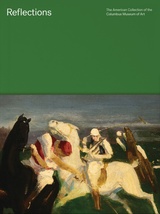 Reflections: The American Collection of the Columbus Museum of Art
Nannette V. Maciejunes
Ohio University Press, 2019 Reflections: The American Collection of the Columbus Museum of Art adds a novel and provocative element to the library of art museum collection catalogs. In the traditional manner, Reflections features selected works—more than 125—from the museum’s collection, accompanied by concise essays by scholars of art who reflect on and respond to the distinctive aspects of each work. To this customary approach, the editors have added what they term intersections essays: an examination of a well-known work of art from the differing perspectives of two authors—most of whom are not art historians. For instance, acclaimed writer Joyce Carol Oates provides her perspective on George Bellows and is joined by Laurie Bellows Booth, an objects conservator and the painter’s granddaughter. The book includes ten of these compelling essays, including contributions by such authors as Adam Gopnik and Alan Trachtenberg.
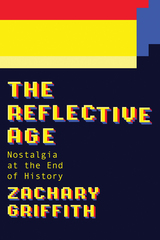 The Reflective Age: Nostalgia at the End of History
Zachary Griffith
Rutgers University Press, 2026 At the end of history, nothing ever really ends. Though characterized, on one hand, by sociopolitical and economic stasis, stagnation, and decline, twenty-first century American culture has also been marked by the constant ebb and flow of preexisting artifacts and styles, so that when one fades out of fashion it is always replaced by another reiteration. Change, on the cultural level, has accelerated at an unprecedented rate, and old things are constantly returning anew. The present, in other words, promotes the feeling that nothing is changing and, simultaneously, everything is. In the midst of this paradoxical sense of constant flux and grinding stagnation, underwritten by the notion that there is no alternative to the malaise of the present, the nostalgic past emerges as the only viable refuge. The Reflective Age investigates how nostalgic American media of the 2010s and early 2020s reflects––and contributes to––these conditions, showing how the films, TV shows, music, and literature of the period illustrate a radical shift in both the role that nostalgia plays in the American cultural and political landscape as well as in nostalgia itself.
A Reflective Practitioner's Guide to (Mis)Adventures in Drama Education - or - What Was I Thinking?
Edited by Peter Duffy
Intellect Books, 2015 This collection of essays from many of the world’s preeminent drama education practitioners captures the challenges and struggles of teaching with honesty, humor, openness, and integrity. Collectively the authors possess some two hundred years of shared experience in the field, and each essay investigates the mistakes of best-intentions, the lack of awareness, and the omissions that pock all of our careers. The authors ask, and answer quite honestly, a series of difficult and reflexive questions: What obscured our understanding of our students’ needs in a particular moment? What drove our professional expectations? And how has our practice changed as a result of those experiences? Modeled on reflective practice, this book will be an essential, everyday guide to the challenges of drama education.
 Reflexes and Motor Integration: Sherrington’s Concept of Integrative Action
Judith P. Swazey
Harvard University Press Sir Charles Scott Sherrington is credited with having single-handedly crystallized the field of neurophysiology. Judith Swazey’s study is the first book-length treatment of his early research, from the 1880s through the publication of The Integrative Action of the Nervous System in 1906. In this work he offered an experimentally documented account of how the nervous system, through the mechanism of reflex action, produces a coordinated motor organism. Swazey first analyzes the development of the concept of integrative action and then discusses the significance of the concept for neurophysiology and, on a broader level, for the nature of biological thought.
Focusing on the interests, events, and influences that shaped Sherrington’s career, the author surveys the relevant knowledge about reflex action and the functional anatomy of the spinal cord at the time he began his research. Continuing with a detailed analysis of the major lines of his work she covers such material and the anatomical studies of spinal degeneration, the mapping of sensory and motor root distribution in the macaque monkey, the role of sensory nerves in and from muscles, and the nature of reciprocal innervation.
The scope of Sherrington’s contributions—which included new and important techniques, apparatus, and methodological canons—clearly marks him as a major figure in the history of the neurosciences. The greater significance of his work, however, lies in his “synthetic attitude” in the fact that he perceived the interrelatedness of his varied researches. The integrative action concept and the data it embodied finally brought together the previously unconnected channels of neurophysiological, anatomical, and histological research. As a result of this unification, Sherrington was able to provide investigators of the nervous system with their first major paradigm and to establish guidelines which altered the course of scientific research after 1906.
The author has gathered a vast amount of material from published and unpublished sources for this comprehensive study of Sherrington’s life and work. Her analysis of his writings, her portrayal of his delightful and extraordinary personality, and her account of the scientific setting within which his work was carried out provide a model for historians of science.
The Reflexive Teaching Artist: Collected Wisdom from the Drama/Theatre Field
Edited by Kathryn Dawson and Daniel A. Kelin, II
Intellect Books, 2014 Writing from the dual perspectives of artist and educator, Kathryn Dawson and Daniel A. Kelin II raise fundamental questions about the complex functions of the teaching artist in school, community, and professional theater settings. Contributions to the text explore a series of foundational concepts, including intentionality, quality, artistic perspective, assessment, and praxis, all used as a reflective framework to illuminate case studies from a wide range of teaching artist practice.
Readers are also offered questions to guide their practical application, charts to complete, and the editors examine the practice of teaching in, through, and about drama and theater.
The Reflexive Thesis: Wrighting Sociology of Scientific Knowledge
Malcolm Ashmore
University of Chicago Press, 1989 This unusually innovative book treats reflexivity, not as a philosophical conundrum, but as a practical issue that arises in the course of scholarly research and argument. In order to demonstrate the concrete and consequential nature of reflexivity, Malcolm Ashmore concentrates on an area in which reflexive "problems" are acute: the sociology of scientific knowledge. At the forefront of recent radical changes in our understanding of science, this increasingly influential mode of analysis specializes in rigorous deconstructions of the research practices and textual products of the scientific enterprise. Through a series of detailed examinations of the practices and products of the sociology of scientific knowledge, Ashmore turns its own claims and findings back onto itself and opens up a whole new era of exploration beyond the common fear of reflexive self-destruction.
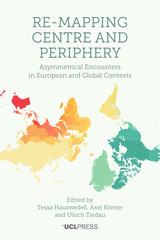 Reflexive Translation Studies: Translation as Critical Reflection
Silvia Kadiu
University College London, 2019 Over the past few decades, translation studies have increasingly focused on the ethical dimension of translational activity with an emphasis on reflexivity to assert the role of the researcher in highlighting issues of visibility, creativity, and ethics. In Reflexive Translation Studies, Silvia Kadiu investigates the viability of theories that seek to empower translation by making visible its transformative dimension, such as championing the visibility of the translating subject or the translator’s right to creativity. Inspired by Derrida’s deconstructive thinking, Kadiu presents practical ways of challenging theories that argue reflexivity is the only way of developing an ethical translation. She questions the capacity of reflexivity to counteract the power relations at play in translation and problematizes affirmative claims about self-knowledge by using translation itself as a process of critical reflection.
In exploring the interaction between form and content, Reflexive Translation Studies promotes the need for an experimental, multisensory, and intuitive practice, which invites students, scholars, and practitioners alike to engage with theory productively and creatively through translation.
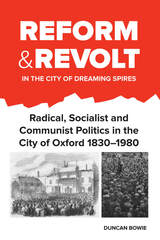 Reform and Revolt in the City of Dreaming Spires: Radical, Socialist and Communist Politics in the City of Oxford 1830–1980
Duncan Bowie
University of Westminster Press, 2018 Books about Oxford have generally focused on the University rather than the city. This original book on the local politics of Oxford City from 1830 to 1980 is based on a comprehensive analysis of primary sources and tells the story of the city’s progressive politics. The book traces this history from Chartism and electoral reform in the mid-nineteenth century, through the early years of socialism to the impact of communism in the interwar period, the struggle between nuclear disarmers and Gaitskellites in the 1960s and the impact of the new revolutionary left in the late 1970s. Throughout the narrative, the book contrasts the two approaches of those engaged in progressive politics, those who focused on the politics of reform and improved government and those who preferred the politics of revolt, protest and revolutionary rhetoric. The author argues that a central feature of this history has been the co-existence and interaction of working- and middle- class elements. It rediscovers a rich heritage, a fascinating story and offers a rare wide-ranging chronological narrative of local UK city politics. Through its extensive quotes from primary sources, the book presents a vivid picture of local politics over 150 years.
The Reform of Bismarckian Pension Systems: A Comparison of Pension Politics in Austria, France, Germany, Italy and Sweden
Martin Schludi
Amsterdam University Press, 2005 Sluggish economic growth, rising unemployment, and a rapidly aging population all exert financial pressure on public pension systems and highlight the need for major reform. Martin Schludi traces the political process of pension reform in Austria, France, Germany, Italy, and Sweden from the 1980s onward and skillfully analyzes the various political and economic factors in pension reform, such as gaining public support for policy initiatives. Schludi also considers case studies that range from successfully restructured pension arrangements to complete policy failures. This volume is an essential and valuable resource that demystifies the complex factors involved in social policy reforms driven by fiscal concerns.
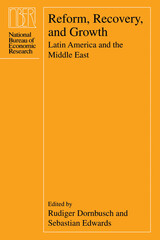 Reform, Recovery, and Growth: Latin America and the Middle East
Edited by Rudiger Dornbusch and Sebastian Edwards
University of Chicago Press, 1994 The debt crisis of 1982 caused serious economic disruptions in most developing countries. Reform, Recovery, and Growth explains why some of these countries have recovered from the debt crisis, while more than a decade later others continue to stagnate.
Among the questions addressed are: What are the requirements for a stabilization policy that reduces inflation in a reasonable amount of time at an acceptable cost? What are the effects of structural reforms, especially trade liberalization, deregulation, and privatization, on growth in the short and long runs? How do macroeconomic instability and adjustment policies affect income distribution and poverty? How does the specific design of structural adjustment efforts affect results?
In this companion to Macroeconomics of Populism in Latin America, the authors confirm that macroeconomic stability has a positive effect on income distribution. The volume presents case studies that describe in detail the stabilization experiences in Brazil, Israel, Argentina, and Bolivia, and also includes discussion of Chile, Mexico, Peru, and Turkey.
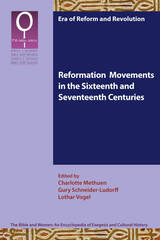 Reformation Movements in the Sixteenth and Seventeenth Centuries
Charlotte Methuen
SBL Press, 2025 Reformation Movements in the Sixteenth and Seventeenth Centuries explores how Protestant women across Europe engaged with the Bible, rather than prioritizing how male Reformers viewed women. Contributors consider women as readers, interpreters, and sharers of scripture who encountered biblical texts in their own languages, in devotional texts, and in hymns. Although many available sources derive from and address elite women, the articles collected here show that women from across the social spectrum and in locations from Scotland to Sweden to Bohemia engaged with scripture and with their faith. Contributors include Federica Ambrosini, Sarah Apetrei, Otfried Czaika, Genelle Gertz, Sr. Nicole Grochowina, Andrea Hofmann, Nathan Hood, András Korányi, Raffaella Malvina La Rosa, Pierre-Olivier Léchot, Elsie Anne McKee, Peter Matheson, Charlotte Methuen, Eivor Andersen Oftestad, Stefania Salvadori, Douglas H. Shantz, Rachel K. Teubner, Gyöngyi Varga, Lothar Vogel, and Katharina Will.
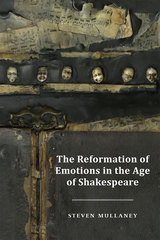 The Reformation of Emotions in the Age of Shakespeare
Steven Mullaney
University of Chicago Press, 2015 The crises of faith that fractured Reformation Europe also caused crises of individual and collective identity. Structures of feeling as well as structures of belief were transformed; there was a reformation of social emotions as well as a Reformation of faith.
As Steven Mullaney shows in The Reformation of Emotions in the Age of Shakespeare, Elizabethan popular drama played a significant role in confronting the uncertainties and unresolved traumas of Elizabethan Protestant England. Shakespeare and his contemporaries—audiences as well as playwrights—reshaped popular drama into a new form of embodied social, critical, and affective thought. Examining a variety of works, from revenge plays to Shakespeare’s first history tetralogy and beyond, Mullaney explores how post-Reformation drama not only exposed these faultlines of society on stage but also provoked playgoers in the audience to acknowledge their shared differences. He demonstrates that our most lasting works of culture remain powerful largely because of their deep roots in the emotional landscape of their times.
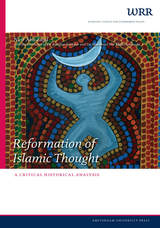 Reformation of Islamic Thought: A Critical Historical Analysis
Nasr Abû Zayd
Amsterdam University Press, 2006 After September 11, Islam became nearly synonymous with fundamentalism in the eyes of Western media and literature. However widely held this view may be, it is at odds with Islam’s rich political history. Renowned Egyptian scholar Nasr Abû Zayd here considers the full breadth of contemporary Muslim writings to examine the diverse political, religious, and cultural views that inform discourse in the Islamic world.
Reformation of Islamic Thought explores the writings of intellectuals from Egypt to Iran to Indonesia, probing their efforts to expand Islam beyond traditional and legalistic interpretations. Zayd reveals that many Muslim thinkers advocate culturally enlightened Islam with an emphasis on individual faith. He then investigates the extent of these Muslim reformers’ success in generating an authentic renewal of Islamic ideology, asking if such thinkers have escaped the traditionalist trap of presenting a negative image to the West.
A fascinating and highly relevant study for our times, Reformation of Islamic Thought is an essential analysis of Islam’s present and future.
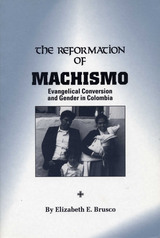 The Reformation of Machismo: Evangelical Conversion and Gender in Colombia
By Elizabeth E. Brusco
University of Texas Press, 1995 Protestant evangelicalism has spread rapidly in Latin America at the same time that foreign corporations have taken hold of economies there. These concurrent developments have led some observers to view this religious movement as a means of melding converts into a disciplined work force for foreign capitalists rather than as a reflection of conscious individual choices made for a variety of personal, as well as economic, reasons. In this pioneering study, Elizabeth Brusco challenges such assumptions and explores the intra-household motivations for evangelical conversion in Colombia. She shows how the asceticism required of evangelicals (no drinking, smoking, or extramarital sexual relations are allowed) redirects male income back into the household, thereby raising the living standard of women and children. This benefit helps explain the appeal of evangelicalism for women and questions the traditional assumption that organized religion always disadvantages women. Brusco also demonstrates how evangelicalism appeals to men by offering an alternative to the more dysfunctional aspects of machismo. Case studies add a fascinating human dimension to her findings. With the challenges this book poses to conventional wisdom about economic, gender, and religious behavior, it will be important reading for a wide audience in anthropology, women’s studies, economics, and religion. For all students of Latin America, it offers thoughtful new perspectives on a major, grass-roots agent of social change.
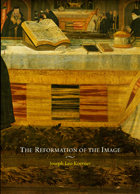 The Reformation of the Image
Joseph Leo Koerner
University of Chicago Press, 2004 With his 95 Theses, Martin Luther advanced the radical notion that all Christians could enjoy a direct, personal relationship with God—shattering years of Catholic tradition and obviating the need for intermediaries like priests and saints between the individual believer and God. The text of the Bible, the Word of God itself, Luther argued, revealed the only true path to salvation—not priestly ritual and saintly iconography.
But if words—not iconic images—showed the way to salvation, why didn't religious imagery during the Reformation disappear along with indulgences? The answer, according to Joseph Leo Koerner, lies in the paradoxical nature of Protestant religious imagery itself, which is at once both iconic and iconoclastic. Koerner masterfully demonstrates this point not only with a multitude of Lutheran images, many never before published, but also with a close reading of a single pivotal work—Lucas Cranach the Elder's altarpiece for the City Church in Wittenberg (Luther's parish). As Koerner shows, Cranach, breaking all the conventions of traditional Catholic iconography, created an entirely new aesthetic for the new Protestant ethos.
In the Crucifixion scene of the altarpiece, for instance, Christ is alone and stripped of all his usual attendants—no Virgin Mary, no John the Baptist, no Mary Magdalene—with nothing separating him from Luther (preaching the Word) and his parishioners. And while the Holy Spirit is nowhere to be seen—representation of the divine being impossible—it is nonetheless dramatically present as the force animating Christ's drapery. According to Koerner, it is this "iconoclash" that animates the best Reformation art.
Insightful and breathtakingly original, The Reformation of the Image compellingly shows how visual art became indispensable to a religious movement built on words.
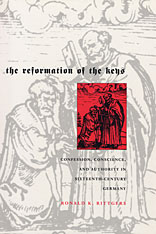 The Reformation of the Keys: Confession, Conscience, and Authority in Sixteenth-Century Germany
Ronald K. Rittgers
Harvard University Press, 2004 The Catholic Church’s claims to spiritual and temporal authority rest on Jesus’ promise in the gospels to give Peter the keys to the kingdom of heaven. In the sixteenth century, leaders of the German Reformation sought a fundamental transformation of this “power of the keys” as part of their efforts to rid Church and society of alleged clerical abuses. Central to this transformation was a thoroughgoing reform of private confession.
Unlike other Protestants, Lutherans chose not to abolish private confession but to change it to suit their theological convictions and social needs. In a fascinating examination of this new religious practice, Ronald Rittgers traces the development of Lutheran private confession, demonstrating how it consistently balanced competing concerns for spiritual freedom and moral discipline. The reformation of private confession was part of a much larger reformation of the power of the keys that had profound implications for the use of religious authority in sixteenth-century Germany.
As the first full-length study of the role of Lutheran private confession in the German Reformation, this book is a welcome contribution to early modern European and religious history.
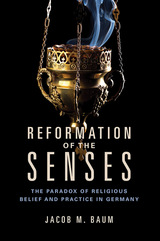 Reformation of the Senses: The Paradox of Religious Belief and Practice in Germany
Jacob M. Baum
University of Illinois Press, 2018 We see the Protestant Reformation as the dawn of an austere, intellectual Christianity that uprooted a ritualized religion steeped in stimulating the senses--and by extension the faith--of its flock. Historians continue to use the idea as a potent framing device in presenting not just the history of Christianity but the origins of European modernity. Jacob M. Baum plumbs a wealth of primary source material from the fifteenth and sixteenth centuries to offer the first systematic study of the senses within the religious landscape of the German Reformation. Concentrating on urban Protestants, Baum details the engagement of Lutheran and Calvinist thought with traditional ritual practices. His surprising discovery: Reformation-era Germans echoed and even amplified medieval sensory practices. Yet Protestant intellectuals simultaneously cultivated the idea that the senses had no place in true religion. Exploring this paradox, Baum illuminates the sensory experience of religion and daily life at a crucial historical crossroads. Provocative and rich in new research, Reformation of the Senses reevaluates one of modern Christianity's most enduring myths.
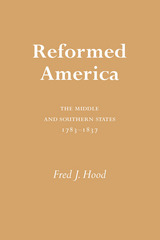 Reformed America: The Middle and Southern States 1783-1837
Fred J. Hood
University of Alabama Press, 1980 Analyzes the success of the Reformed in the middle and southern states
The success of the Reformed of the middle and southern states at shaping a distinctly American ideology of the relationship of religion and government was truly amazing. Unlike their New England counterparts, many of whom continued to enjoy some sort of establishment well into the nineteenth century, these Reformed entered the national experience with a backlog of experience in religious diversity and practical disestablishment, and even, in the South, as religious dissenters. They would have preferred a religious establishment that would have essentially recognized the validity of their understanding of Christianity. It was perhaps their own rigidity that caused them to fail in that attempt, especially in Virginia. But for such a rigid people, and they were rigid, they demonstrated a remarkable flexibility. When it became apparent that the American legal settlement would be one in which the state disengaged from the support of religion, the Reformed of the middle and southern states welcomed it and declared it to be the solution that would be most conducive to the spread and ultimate domination of Reformed Christianity. Unlike twentieth-century liberals, the Reformed interpreted disestablishment as the legal and official recognition of the twin Reformation doctrines of the priesthood of all believers and the absolute and unquestioned authority of the Christian Scriptures. And, to a very large degree, it was their definition, rather than the thinking of Jefferson and Madison, that captured the imagination of the American people and became the dominant popular opinion in the land.
But perhaps of even greater significance, the Reformed of the middle and southern states forged an ideology that ultimately based American national prosperity on national adherence to Reformed Christianity. Under the tutelage of John Witherspoon and Samuel Stanhope Smith, the Reformed captured the Enlightenment and brought it into the service of Reformed Christianity, altering traditional Calvinism in the process. Witherspoon and Smith, declaring that the truth of the law of nations could be devised by observation and reason alone, propounded a doctrine of natural law and political science that substantially reinforced the Calvinistic doctrine of providence in an era of skepticism and enlightenment. All history, they argued, proved beyond any reasonable doubt that those nations that adhered to the moral principles taught by Christianity had prospered and those that had taken a contrary route had fallen into ruin. The Reformed preachers of whatever denomination picked up this message and proclaimed it throughout the land. The United States, if it were to prosper, was required to be a Christian nation.
Reformed American Dreams: Welfare Mothers, Higher Education, and Activism
Sheila M. Katz
Rutgers University Press, 2019 Reformed American Dreams explores the experiences of low-income single mothers who pursued higher education while on welfare after the 1996 welfare reforms. This research occurred in an area where grassroots activism by and for mothers on welfare in higher education was directly able to affect the implementation of public policy. Half of the participants in Sheila M. Katz’s research were activists with the grassroots welfare rights organization, LIFETIME, trying to change welfare policy and to advocate for better access to higher education. Reformed American Dreams takes up their struggle to raise families, attend school, and become student activists, all while trying to escape poverty. Katz highlights mothers’ experiences as they pursued higher education on welfare and became grassroots activists during the Great Recession.
 Reformers, Critics, and the Paths of German Modernity: Anti-Politics and the Search for Alternatives, 1890-1914
Kevin Repp
Harvard University Press, 2000 "Modernity" was an inescapable fact of life for the first generation to come of age in the German Empire. Even the most extreme political opponents saw the chaotic transformation of all spheres of life in the wake of industrial capitalism as the central problem facing young men and women at the fin de siècle. This fresh look at Wilhelmine perceptions of modernity challenges both the traditional emphasis on anti-modernism as a peculiarly German response that led to the rise of National Socialism, and the more recent post-Foucauldian studies on the "pathologies of modernity," which point instead to an unreflective faith in science and efficiency on the part of German progressives. Shifting the focus away from radical extremes on either side, Kevin Repp explores the more moderate agendas of hundreds of mainstream intellectuals and activists from diverse social backgrounds who sought to surmount the human costs of industrialization without relinquishing its positive potential.
Repp combines detailed case studies of Adolf Damaschke, Gertrud Bäumer, and Werner Sombart with an innovative prosopography of their milieu to show how leading reformers enlisted familiar tropes of popular nationalism, eugenics, and cultural pessimism in formulating pragmatic solutions that would be at once modern and humane. Easily obscured by radical voices on right and left, this quiet search for alternatives nevertheless succeeded in building a nationwide network of educational centers, associative ties, and institutions that substantially altered the landscape of Wilhelmine political culture in the decades before the First World War.
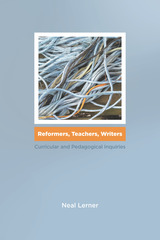 Reformers, Teachers, Writers: Curricular and Pedagogical Inquiries
Neal Lerner
Utah State University Press, 2019 In Reformers, Teachers, Writers, Neal Lerner explores the distinction between curriculum and pedagogy in writing studies—and the ways in which failing to attend to that distinction results in the failure of educational reform.
Lerner’s mixed-methods approach—quantitative, qualitative, textual, historical, narrative, and theoretical—reflects the importance and effects of curriculum in a wide variety of settings, whether in writing centers, writing classrooms, or students’ out-of-school lives, as well as the many methodological approaches available to understand curriculum in writing studies. The richness of this approach allows for multiple considerations of the distinction and relationship between pedagogy and curriculum. Chapters are grouped into three parts: disciplinary inquiries, experiential inquiries, and empirical inquiries, exploring the presence and effect of curriculum and its relationship to pedagogy in multiple sites, both historical and contemporary, and for multiple stakeholders.
Reformers, Teachers, Writers calls out writing studies’ inattention to curriculum, which hampers efforts to enact meaningful reform and to have an impact on larger conversations about education and writing. The book will be invaluable to scholars, teachers, and administrators interested in rhetoric and composition, writing studies, and education.
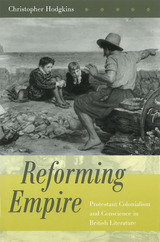 Reforming Empire: Protestant Colonialism and Conscience in British Literature
Christopher Hodgkins
University of Missouri Press, 2002
“The strength of Empire,” wrote Ben Jonson, “is in religion.” In Reforming Empire, Christopher Hodgkins takes Jonson’s dictum as his point of departure, showing how for more than four centuries the Protestant imagination gave the British Empire its main paradigms for dominion and also, ironically, its chief languages of anti-imperial dissent. From Edmund Spenser’s Faerie Queene to Rudyard Kipling’s “The Man Who Would Be King,” English literature about empire has turned with strange constancy to themes of worship and idolatry, atrocity and deliverance, slavery and service, conversion, prophecy, apostasy, and doom.
Focusing on the work of the Protestant imagination from the Renaissance origins of English overseas colonization through the modern end of England’s colonial enterprise, Hodgkins organizes his study around three kinds of religious binding—unification, subjugation, and self-restraint. He shows how early modern Protestants like Hakluyt and Spenser reformed the Arthurian chronicles and claimed to inherit Rome’s empire from the Caesars: how Ralegh and later Cromwell imagined a counterconquest of Spanish America, and how Milton’s Satan came to resemble Cortés; how Drake and the fictional Crusoe established their status as worthy colonial masters by refusing to be worshiped as gods; and how seventeenth-century preachers, poets, and colonists moved haltingly toward a racist metaphysics—as Virginia began by celebrating the mixed marriage of Pocahontas but soon imposed the draconian separation of the Color Line.
Yet Hodgkins reveals that Tudor-Stuart times also saw the revival of Augustinian anti-expansionism and the genesis of Protestant imperial guilt. From the start, British Protestant colonialism contained its own opposite: a religion of self-restraint. Though this conscience often was co-opted or conscripted to legitimize conquests and pacify the conquered, it frequently found memorable and even fierce literary expression in writers such as Shakespeare, Daniel, Herbert, Swift, Johnson, Burke, Blake, Austen, Browning, Tennyson, Conrad, Forster, and finally the anti-Protestant Waugh. Written in a lively and accessible style, Reforming Empire will be of interest to all scholars and students of English literature.
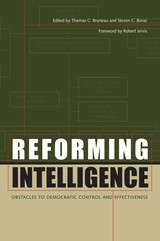 Reforming Intelligence: Obstacles to Democratic Control and Effectiveness
Edited by Thomas C. Bruneau and Steven C. Boraz
University of Texas Press, 2007 These days, it's rare to pick up a newspaper and not see a story related to intelligence. From the investigations of the 9/11 commission, to accusations of illegal wiretapping, to debates on whether it's acceptable to torture prisoners for information, intelligence—both accurate and not—is driving domestic and foreign policy. And yet, in part because of its inherently secretive nature, intelligence has received very little scholarly study. Into this void comes Reforming Intelligence, a timely collection of case studies written by intelligence experts, and sponsored by the Center for Civil-Military Relations (CCMR) at the Naval Postgraduate School, that collectively outline the best practices for intelligence services in the United States and other democratic states. Reforming Intelligence suggests that intelligence is best conceptualized as a subfield of civil-military relations, and is best compared through institutions. The authors examine intelligence practices in the United States, United Kingdom, and France, as well as such developing democracies as Brazil, Taiwan, Argentina, and Russia. While there is much more data related to established democracies, there are lessons to be learned from states that have created (or re-created) intelligence institutions in the contemporary political climate. In the end, reading about the successes of Brazil and Taiwan, the failures of Argentina and Russia, and the ongoing reforms in the United States yields a handful of hard truths. In the murky world of intelligence, that's an unqualified achievement.
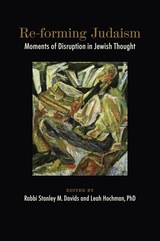 Re-forming Judaism: Moments of Disruption in Jewish Thought
Rabbi Stanley M. Davids and Leah Hochman, PhD
Central Conference of American Rabbis, 2023 Throughout Jewish history, revolutionary events and subversive ideas have burst forth, repeatedly transforming Jewish experience. Re-forming Judaism seeks to explore
these ideas—and the individuals behind them—by delving into historical disruptions that led to lasting change in Jewish thought. A distinguished array of scholars take us
on a journey from the disruptive prophets of ancient times, through rational, mystical, and extremist medievalists, to the impact of Haskalah and early Reform thought in
modernity. Contemporary innovations such as changes in liturgy and music, feminism, and post-Holocaust theology are included, as are insights into Sephardic and North
African experiences. By showing how Judaism forms—then re-forms, and re-forms again—the contributors demonstrate that tensions between continuity and change
have always been part of Jewish life, helping us to both understand the past and contemplate the future.
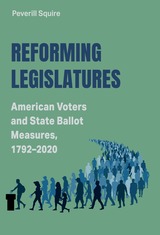 Reforming Legislatures: American Voters and State Ballot Measures, 1792-2020
Peverill Squire
University of Missouri Press, 2024 Winner of the 2025 Virginia Gray Book Award, APSA Section 22: State Politics and Policy
Legislatures are ubiquitous in the American political experience. First created in Virginia in 1619, they have existed continuously ever since. Indeed, they were established in even the most unlikely of places, notably in sparsely populated frontier settlements, and functioned as the focal point of every governing system devised.
Despite the ubiquity of state legislatures, we know remarkably little about how Americans have viewed them as organizations, in terms of their structures, rules, and procedures. But with the rise of modern public opinion surveys in the twentieth century, we now have extensive data on how Americans have gauged legislative performance throughout the many years. That said, the responses to the questions pollsters typically pose reflect partisanship, policy, and personality. Generally, respondents respond favorably to legislatures controlled by their own political party and those in power during good economic times. Incumbent lawmakers get ratings boosts from having personalities, “home styles” that mesh with those of their constituents. These relationships are important indicators of people’s thoughts regarding the current performance of their legislatures and legislators, but they tell us nothing about attitudes toward the institution and its organizational characteristics.
This study offers a unique perspective on what American voters have historically thought about legislatures as organizations and legislators as representatives. Rather than focusing on responses to surveys that ask respondents how they rate the current performance of lawmakers and legislatures, this study leverages the most significant difference between national and state politics: the existence of ballot propositions in the latter. At the national level Americans have never had any say over Congress’s structure, rules, or procedures. In contrast, at the state level they have had ample opportunities over the course of more than two centuries to shape their state legislatures. The data examined here look at how people have voted on more than 1,500 state ballot propositions targeting a wide array of legislative organizational and parliamentary features. By linking the votes on these measures with the public debates preceding them, this study documents not only how American viewed various aspects of their legislatures, but also whether their opinions held constant or shifted over time. The findings reported paint a more nuanced picture of Americans’ attitudes toward legislatures than the prevailing one derived from survey research. When presented with legislative reform measures on which concrete choices were offered and decisions on them had to be made, the analyses presented here reveal that, counter to the conventional wisdom that people loved their representatives but hated the legislature, voters usually took charitable positions toward the institution while harboring skeptical attitudes about lawmakers’ motives and behaviors.
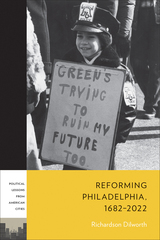 Reforming Philadelphia, 1682–2022
Richardson Dilworth
Temple University Press, 2023 Reforming Philadelphia examines the cyclical efforts of insurgents to change the city’s government over nearly 350 years. Political scientist Richardson Dilworth tracks reformers as they create a new purpose for the city or reshape the government to reflect emerging ideas. Some wish to thwart the “corrupt machine,” while others seek to gain control of the government via elections. These actors formed coalitions and organizations that disrupted the status quo in the hope of transforming the city (and perhaps also enriching themselves). Dilworth addresses Philadelphia’s early development through the present day, including momentous changes from its new city charter in 1885 and the Republican machine that emerged around the same time to its transformation to a Democratic stronghold in the 1950s, when the city also experienced a racial transition. Focusing primarily on the twentieth and twenty-first centuries, Dilworth evaluates the terms of Mayors Frank Rizzo, Wilson Goode, and Ed Rendell, as well as John Street, Michael Nutter, and Jim Kenney to illustrate how power and resistance function, and how Philadelphia’s political history and reform cycles offer a conceptual model that can easily be applied to other cities. Reforming Philadelphia provides a new framework for understanding the evolving relationship between national politics and local, city politics.
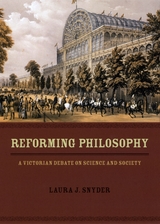 Reforming Philosophy: A Victorian Debate on Science and Society
Laura J. Snyder
University of Chicago Press, 2006 The Victorian period in Britain was an “age of reform.” It is therefore not surprising that two of the era’s most eminent intellects described themselves as reformers. Both William Whewell and John Stuart Mill believed that by reforming philosophy—including the philosophy of science—they could effect social and political change. But their divergent visions of this societal transformation led to a sustained and spirited controversy that covered morality, politics, science, and economics. Situating their debate within the larger context of Victorian society and its concerns, Reforming Philosophy shows how two very different men captured the intellectual spirit of the day and engaged the attention of other scientists and philosophers, including the young Charles Darwin.
Mill—philosopher, political economist, and Parliamentarian—remains a canonical author of Anglo-American philosophy, while Whewell—Anglican cleric, scientist, and educator—is now often overlooked, though in his day he was renowned as an authority on science. Placing their teachings in their proper intellectual, cultural, and argumentative spheres, Laura Snyder revises the standard views of these two important Victorian figures, showing that both men’s concerns remain relevant today.
A philosophically and historically sensitive account of the engagement of the major protagonists of Victorian British philosophy, Reforming Philosophy is the first book-length examination of the dispute between Mill and Whewell in its entirety. A rich and nuanced understanding of the intellectual spirit of Victorian Britain, it will be welcomed by philosophers and historians of science, scholars of Victorian studies, and students of the history of philosophy and political economy.
 Reforming Products Liability
W. Kip Viscusi
Harvard University Press, 1991 The current products liability crisis is both familiar and puzzling: million-dollar awards for apparently frivolous claims, inadequate settlements for thousands of people with severe injuries, skyrocketing insurance premiums, an overburdened judicial system. The adverse effects of this crisis on product innovation may be particularly detrimental to the extent that they deprive consumers of newer and safer goods. W. Kip Viscusi offers the first comprehensive and objective analysis of the crisis. He employs extensive, original empirical data to diagnose the causes and to assess the merits of alternative reform policies.
Drawing on both liability insurance trends and litigation patterns, Viscusi shows that the products liability crisis is not simply a phenomenon of the 1980s but has been developing for several decades. He argues that the principal causes have been the expansion of the doctrine of design defect, the emergence of mass toxic torts, and the increase in lawsuits involving hazard warnings. This explanation differs sharply from that of most other scholars, who blame the doctrine of strict liability. Viscusi reformulates the concept of design defect, grounding it in sound economic analysis. He also evaluates public policy regarding hazard warnings and proposes a new national approach.
More generally, the author sketches a comprehensive social risk policy, in which tort liability interacts with government health and safety regulation to foster a coherent set of institutional responses to health and safety risks. Reforming Products Liability will be of special interest to lawyers, judges, policymakers, economists, and all those interested in legal policy and health and safety issues.
Reforming Public Welfare: A Critique of the Negative Income Tax Experiment
Peter H. Rossi
Russell Sage Foundation, 1976 Shows what happens when a specific social policy is tried out on an experimental basis prior to being enacted into law. By providing a trial of a variety of negative income tax plans carried out over a three-year period in four communities, the New Jersey-Pennsylvania Income Maintenance Experiment was designed to observe whether income maintenance would lead to reduced work effort on the part of those who received subsidies. This book evaluates the final project reportso n the experiment issued by Mathematica, Inc. and the Institute for Reasearch on Poverty at the University of Wisconsin. A Publication in the Continuities in Evaluation Research Series.
Re-forming Texts, Music, and Church Art in the Early Modern North
Edited by Tuomas M. S. Lehtonen and Linda Kaljundi
Amsterdam University Press, 2016 Our historical understanding of the Reformation in northern Europe has tended to privilege the idea of disruption and innovation over continuity - yet even the most powerful reformation movements drew on and exchanged ideas with earlier cultural and religious practices. This volume attempts to right the balance, bringing together a roster of experts to trace the continuities between the medieval and early modern period in the Nordic realm, while enabling us to see the Reformation and its changes in a new light.
 Reforming the Chicago Teamsters: The Story of Local 705
Robert Bruno
Northern Illinois University Press, 2003
How did the Chicago Teamsters Local 705, once notorious for corruption and despotism, become an organization that the Wall Street Journal hailed as "a model of reform"? In this compelling narrative, Bruno tells of the often violent, always contentious struggle to reform one of the nation's most powerful and independent union locals.
During the worst years, Chicago Teamsters operated under thinly veiled threats and settled differences by fistfights. Workers who questioned the powerful leadership faced physical intimidation, verbal abuse, and trumped-up charges that threatened their jobs. With the expulsion of key leaders in the early 1990s, however, a decade-long struggle for control of the union began as Local 705 cast off the old days of coercion and payoffs. Reformers encouraged rank-and-file Teamsters to choose their own leaders, and after two successive open elections, an unprecedented number of Teamsters turned out to vote in a dramatic 2000 election featuring five political slates and a diverse range of issues.
Clear and captivating, Reforming the Chicago Teamsters raises important national issues about the balance of power between large corporations and working-class Americans, the role of workplace democracy in civil society, and the ways unions can both hinder and promote worker interests.
 Reforming the Health Care Market: An Interpretive Economic History
David F. Drake
Georgetown University Press, 1994 Examining the health care market in a historical framework, Drake analyzes the forces and events that have shaped American health care in the twentieth century and sheds new light on why and how our health care system has dampened competitive market forces and failed to provide sound value for much of our health care expenditures. He examines the roles that physicians, hospitals, insurance companies, businesses, individual consumers, and government legislation have played in creating a provider-dominated market in which the cost of care has been concealed from consumers. Comparing U.S. health care expenditures with those of other developed countries, he concludes that a significant part of our health care problem is the style of medicine practiced in the United States, which is much more specialized and high tech than in other developed nations. Drake develops proposals for health care financing reform that consider the political and economic difficulties involved. He first examines the Clinton health care reform plan and makes specific recommendations for revisions that would improve its likelihood of controlling costs. He then offers an alternative proposal that would both maintain the principle of universal, noncancelable coverage and eliminate the flaws in the market for health care services by giving consumers a financial stake in cost containment. This timely argument, combining economic and historical analysis with thoughtful consideration of the motivating humanitarian and political concerns, will be of interest to everyone seeking to understand and to reform our ailing health care system.
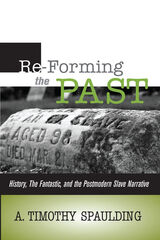 RE-FORMING THE PAST: HISTORY, THE FANTASTIC, & THE POSTMODERN SLAVE NARRATIVE
A. Timothy Spaulding
Ohio State University Press, 2005 The slave experience was a defining one in American history, and not surprisingly, has been a significant and powerful trope in African American literature. In Re-Forming the Past, A. Timothy Spaulding examines contemporary revisions of slave narratives that use elements of the fantastic to redefine the historical and literary constructions of American slavery. In their rejection of mimetic representation and traditional historiography, postmodern slave narratives such as Ishmael Reed’s Flight to Canada, Octavia Butler’s Kindred, Toni Morrison’s Beloved, Charles Johnson’s Ox Herding Tale and Middle Passage, Jewelle Gomez’s The Gilda Stories, and Samuel Delaney’s Stars in My Pocket like Grains of Sand set out to counter the usual slave narrative’s reliance on realism and objectivity by creating alternative histories based on subjective, fantastic, and non-realistic representations of slavery. As these texts critique traditional conceptions of history, identity, and aesthetic form, they simultaneously re-invest these concepts with a political agency that harkens back to the original project of the 19th-century slave narratives.
In their rejection of mimetic representation and traditional historiography, Spaulding contextualizes postmodern slave narrative. By addressing both literary and popular African American texts, Re-Forming the Past expands discussions of both the African American literary tradition and postmodern culture.
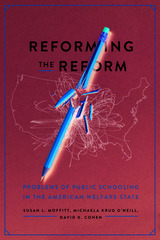 Reforming the Reform: Problems of Public Schooling in the American Welfare State
Susan L. Moffitt, Michaela Krug O'Neill, and David K. Cohen
University of Chicago Press, 2023 An expansive study of the problems encountered by educational leaders in pursuit of reform, and how these issues cyclically translate into future topics of reform.
School reform is almost always born out of big dreams and well-meaning desires to change the status quo. But between lofty reform legislation and the students whose education is at stake, there are numerous additional policies and policymakers who determine how reforms operate. Even in the best cases, school reform initiatives can perpetuate problems created by earlier reforms or existing injustices, all while introducing new complications. In Reforming the Reform, political scientist Susan L. Moffitt, education policy scholar Michaela Krug O’Neill, and the late policy and education scholar David K. Cohen take on a wide-ranging examination of the many intricacies of school reform.
With a particular focus on policymakers in the spaces between legislation and implementation, such as the countless school superintendents and district leaders tasked with developing new policies in the unique context of their district or schools, the authors identify common problems that arise when trying to operationalize ambitious reform ideas. Their research draws on more than 250 interviews with administrators in Tennessee and California (chosen as contrasts for their different political makeup and centralization of the education system) and is presented here alongside survey data from across the United States as well as archival data to demonstrate how public schools shoulder enormous responsibilities for the American social safety net. They provide a general explanation for problems facing social policy reforms in federalist systems (including healthcare) and offer pathways forward for education policy in particular.
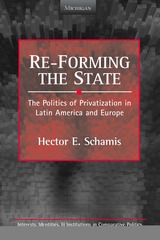 Re-Forming the State: The Politics of Privatization in Latin America and Europe
Hector E. Schamis
University of Michigan Press, 2002 With evidence drawn from Argentina, Chile, Mexico, Great Britain, and Hungary, Re-forming the State examines the processes leading to, and the political effects of, market reform experiments and focuses specifically on the patterns of collective action and coalition building that drive privatization. The author's argument calls into question established approaches in the discipline of economics and in the fields of comparative and international political economy.
The experience of privatization shows that the public and the private are neither contradictory nor mutually exclusive spheres, and that power relations between them are not necessarily zero-sum. To stress the point, the author borrows from the literature on state formation, which has extensively examined the historical processes of key private groups. The evidence presented shows why and how, by restructuring coalitional and institutional arenas, the state uses marketization to generate political order and to distribute political power. Thus, the author specifies the conditions under which political change is conceived in terms of and channeled through economic policy; in other words, how the state is "re-formed" through privatization. Re-forming the State thus highlights how privatization is simultaneously a movement from public to private, but also a movement from non-state to state, as the reduction of state assets leads to institutional changes that increase state capacities for defining and enforcing property rights, extracting revenue, and centralizing administrative and political resources.
Hector E. Schamis is Assistant Professor of Government, Cornell University.
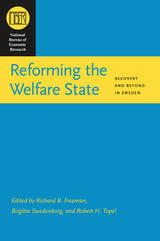 Reforming the Welfare State: Recovery and Beyond in Sweden
Edited by Richard B. Freeman, Birgitta Swedenborg, and Robert H. Topel
University of Chicago Press, 2010 Over the course of the twentieth century, Sweden carried out one of the most ambitious experiments by a capitalist market economy in developing a large and active welfare state. Sweden's generous social programs and the economic equality they fostered became an example for other countries to emulate. Of late, Sweden has also been much discussed as a model of how to deal with financial and economic crisis, due to the country's recovery from a banking crisis in the mid-1990s. At that time economists heatedly debated whether the welfare state caused Sweden's crisis and should be reformed—a debate with clear parallels to current concerns over capitalism.
Bringing together leading economists, Reforming the Welfare State examines Sweden's policies in response to the mid-1990s crisis and the implications for the subsequent recovery. Among the issues investigated are the way changes in the labor market, tax and benefit policies, local government policy, industrial structure, and international trade affected Sweden's recovery. The way that Sweden addressed its economic challenges provides valuable insight into the viability of large welfare states, and more broadly, into the way modern economies deal with crisis.
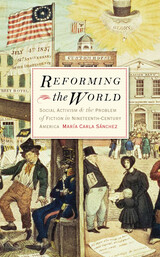 Reforming the World: Social Activism and the Problem of Fiction in Nineteenth-Century America
Maria Carla Sanchez
University of Iowa Press, 2009 Reforming the World considers the intricate relationship between social reform and spiritual elevation and the development of fiction in the antebellum United States. Arguing that novels of the era engaged with questions about the proper role of fiction taking place at the time, Maria Carla Sánchez illuminates the politically and socially motivated involvement of men and women in shaping ideas about the role of literature in debates about abolition, moral reform, temperance, and protest work. She concludes that, whereas American Puritans had viewed novels as risqué and grotesque, antebellum reformers elevated them to the level of literature—functioning on a much higher intellectual and moral plane.
In her informed and innovative work, Sánchez considers those authors both familiar (Lydia Maria Child, Harriet Jacobs, and Harriet Beecher Stowe) and those all but lost to history (Timothy Shay Arthur). Along the way, she refers to some of the most notable American writers in the period (Emerson, Thoreau, and Poe). Illuminating the intersection of reform and fiction, Reforming the World visits important questions about the very purpose of literature, telling the story of “a revolution that never quite took place," one that had no grandiose or even catchy name. But it did have numerous settings and participants: from the slums of New York, where prostitutes and the intemperate made their homes, to the offices of lawyers who charted the downward paths of broken men, to the tents for revival meetings, where land and souls alike were “burned over” by the grace of God.
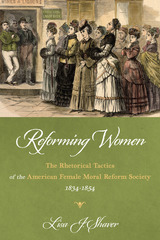 Reforming Women: The Rhetorical Tactics of the American Female Moral Reform Society, 1834-1854
Lisa J. Shaver
University of Pittsburgh Press, 2018 In Reforming Women, Lisa Shaver locates the emergence of a distinct women’s rhetoric and feminist consciousness in the American Female Moral Reform Society. Established in 1834, the society took aim at prostitution, brothels, and the lascivious behavior increasingly visible in America’s industrializing cities. In particular, female moral reformers contested the double standard that overlooked promiscuous behavior in men while harshly condemning women for the same offense. Their ardent rhetoric resonated with women across the country. With its widely-read periodical and auxiliary societies representing more than 50,000 women, the American Female Moral Reform Society became the first national reform movement organized, led, and comprised solely by women.
Drawing on an in-depth examination of the group’s periodical, Reforming Women delineates essential rhetorical tactics including women’s strategic use of gender, the periodical press, anger, presence, auxiliary societies, and institutional rhetoric—tactics women’s reform efforts would use throughout the nineteenth century. Almost two centuries later, female moral reformers’ rhetoric resonates today as our society continues to struggle with different moral expectations for men and women.
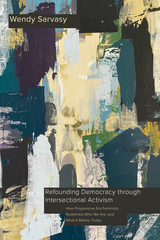 Refounding Democracy through Intersectional Activism: How Progressive Era Feminists Redefined Who We Are, and What It Means Today
Wendy Sarvasy
Temple University Press, 2024 In Refounding Democracy through Intersectional Activism, Wendy Sarvasy recovers the unacknowledged Progressive Era social democratic feminist refounders who used collective political agency to reshape the body politic. Through intersectional activism, or the bridging of different movements, the refounders, who include Ida Wells-Barnett, Rose Schneiderman, and Jane Addams, created an intersectional, social democratic feminist understanding of democracy that allowed them to imagine their full inclusion.
Sarvasy shows how these activists worked to incorporate women by combining political democracy with the creation of a welfare state. They embedded this nation-state project within a new humanitarian transnational level as they evolved their multileveled social citizenship.
Refounding Democracy through Intersectional Activism demonstrates how a theory-activist dynamic played out in experimental socializing spaces and democratic conversations. It offers an inspirational method for intersectional activists today.
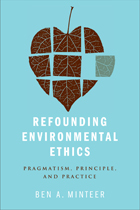 Refounding Environmental Ethics: Pragmatism, Principle, and Practice
Ben Minteer
Temple University Press, 2011 Providing a bold and original rethinking of environmental ethics, Ben Minteer's Refounding Environmental Ethics will help ethicists and their allies resolve critical debates in environmental policy and conservation practice. Minteer considers the implications of John Dewey's pragmatist philosophy for environmental ethics, politics, and practice. He provides a new and compelling intellectual foundation for the field—one that supports a more activist, collaborative and problem-solving philosophical enterprise. Combining environmental ethics, democratic theory, philosophical pragmatism, and the environmental social sciences, Minteer makes the case for a more experimental, interdisciplinary, and democratic style of environmental ethics—one that stands as an alternative to the field's historically dominant “nature-centered” outlook. Minteer also provides examples of his pragmatic approach in action, considering a wide range of application and issues, including invasive species, ecological research, biodiversity loss, protected area management, and conservation under global climate change.
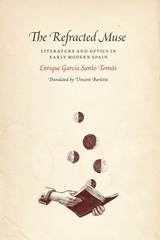 The Refracted Muse: Literature and Optics in Early Modern Spain
Enrique Garcia Santo-Tomas
University of Chicago Press, 2017 Galileo never set foot on the Iberian Peninsula, yet, as Enrique García Santo-Tomás unfolds in The Refracted Muse, the news of his work with telescopes brought him to surprising prominence—not just among Spaniards working in the developing science of optometry but among creative writers as well.
While Spain is often thought to have taken little notice of the Scientific Revolution, García Santo-Tomás tells a different story, one that reveals Golden Age Spanish literature to be in close dialogue with the New Science. Drawing on the work of writers such as Cervantes, Lope de Vega, Calderón de la Barca, and Quevedo, he helps us trace the influence of science and discovery on the rapidly developing and highly playful genre of the novel. Indeed, García Santo-Tomás makes a strong case that the rise of the novel cannot be fully understood without taking into account its relationship to the scientific discoveries of the period.
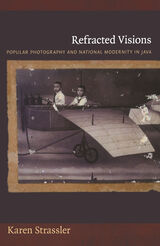 Refracted Visions: Popular Photography and National Modernity in Java
Karen Strassler
Duke University Press, 2010 A young couple poses before a painted backdrop depicting a modern building set in a volcanic landscape; a college student grabs his camera as he heads to a political demonstration; a man poses stiffly for his identity photograph; amateur photographers look for picturesque images in a rural village; an old woman leafs through a family album. In Refracted Visions, Karen Strassler argues that popular photographic practices such as these have played a crucial role in the making of modern national subjects in postcolonial Java. Contending that photographic genres cultivate distinctive ways of seeing and positioning oneself and others within the affective, ideological, and temporal location of Indonesia, she examines genres ranging from state identification photos to pictures documenting family rituals.
Oriented to projects of selfhood, memory, and social affiliation, popular photographs recast national iconographies in an intimate register. They convey the longings of Indonesian national modernity: nostalgia for rural idylls and “tradition,” desires for the trappings of modernity and affluence, dreams of historical agency, and hopes for political authenticity. Yet photography also brings people into contact with ideas and images that transcend and at times undermine a strictly national frame. Photography’s primary practitioners in the postcolonial era have been Chinese Indonesians. Acting as cultural brokers who translate global and colonial imageries into national idioms, these members of a transnational minority have helped shape the visual contours of Indonesian belonging even as their own place within the nation remains tenuous. Refracted Visions illuminates the ways that everyday photographic practices generate visual habits that in turn give rise to political subjects and communities.
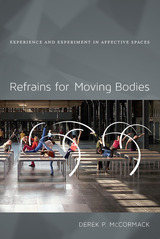 Refrains for Moving Bodies: Experience and Experiment in Affective Spaces
Derek P. McCormack
Duke University Press, 2013 In Refrains for Moving Bodies, Derek P. McCormack explores the kinds of experiments with experience that can take place in the affective spaces generated when bodies move. Drawing out new connections between thinkers including Henri Lefebvre, William James, John Dewey, Gregory Bateson, Félix Guattari, and Gilles Deleuze, McCormack argues for a critically affirmative experimentalism responsive to the opportunities such spaces provide for rethinking and remaking maps of experience. Foregrounding the rhythmic and atmospheric qualities of these spaces, he demonstrates the particular value of Deleuze and Guattari's concept of the "refrain" for thinking and diagramming affect, bodies, and space-times together in creative ways, putting this concept to work to animate empirical encounters with practices and technologies as varied as dance therapy, choreography, radio sports commentary, and music video. What emerges are geographies of experimental participation that perform and disclose inventive ways of thinking within the myriad spaces where the affective capacities of bodies are modulated through moving.
 Reframing Berlin: Architecture, Memory-Making and Film Locations
Christopher S. Wilson and Gul Kacmaz Erk
Intellect Books, 2024 A study of the ways Berlin has been depicted in cinema and the ways its architectural transformations inform our understanding of the city and its memories.
Concerned with the connection between the built environment and the passage of time, Reframing Berlin uses film locations in the city to reveal the influence that urban transformation has on memory-making. Covering the city’s history since the beginning of cinema, the book proposes the term urban strategy to understand the range of consequential actions taken by politicians, developers, and other powerful figures to shape the nature and future of buildings, streets, and districts. Organizing these strategies from demolition to memorialization, the authors study the ways these actions forget or recall aspects of place. Using cinematic representations of Berlin as an audiovisual archive, the study details how the city has adjusted to its traumatic twentieth-century history through architectural transformations. Two dissimilar case studies frame each strategy, indicating that an approach that works for one building may not be sufficient for another.
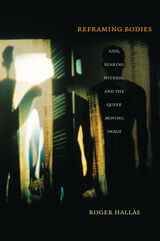 Reframing Bodies: AIDS, Bearing Witness, and the Queer Moving Image
Roger Hallas
Duke University Press, 2009 In Reframing Bodies, Roger Hallas illuminates the capacities of film and video to bear witness to the cultural, political, and psychological imperatives of the AIDS crisis. He explains how queer films and videos made in response to the AIDS epidemics in North America, Europe, Australia, and South Africa challenge longstanding assumptions about both historical trauma and the politics of gay visibility. Drawing on a wide range of works, including activist tapes, found footage films, autobiographical videos, documentary portraits, museum installations, and even film musicals, Hallas reveals how such “queer AIDS media” simultaneously express both immediacy and historical consciousness. Queer AIDS media are neither mere ideological critiques of the dominant media representation of homosexuality and AIDS nor corrective attempts to produce “positive images” of people living with HIV/AIDS. Rather, they perform complex, mediated acts of bearing witness to the individual and collective trauma of AIDS. Challenging the entrenched media politics of who gets to speak, how, and to whom, Hallas offers a bold reconsideration of the intersubjective relations that connect filmmakers, subjects, and viewers. He explains how queer testimony reframes AIDS witnesses and their speech through its striking combination of direct address and aesthetic experimentation. In addition, Hallas engages recent historical changes and media transformations that have not only displaced queer AIDS media from activism to the archive, but also created new witnessing dynamics through the logics of the database and the remix. Reframing Bodies provides new insight into the work of Gregg Bordowitz, John Greyson, Derek Jarman, Matthias Müller, and Marlon Riggs, and offers critical consideration of important but often overlooked filmmakers, including Jim Hubbard, Jack Lewis, and Stuart Marshall.
Reframing Consciousness: Art, mind and technology
Edited by Roy Ascott
Intellect Books, 2000 Interactions between art, science and technology are leading to the emergence of new cultural forms, behaviours and values. Presenting the work of over sixty highly respected theorists and practitioners in art and science, Reframing Consciousness brings to questions of art and consciousness a diversity of approach and a rich background of knowledge. Loosely themed around four key elements of Mind, Body, Art and Values, the editor leads the investigation through the familiar territories of interactive media and artificial life, combining them with new and ancient ideas about creativity and authorship, the body and personal identity. This is the first book to recognise the paradigmatic changes which art, in alliance with science and technology is currently undergoing.
 Reframing Globalization After COVID-19: Pandemic Diplomacy amid the Failure of Multilateral Cooperation
Edited by Pablo Baisotti and Pierfrancesco Moscuzza
Sussex Academic Press, 2023 An exploration of the effects of the Covid-19 pandemic on world politics and economics.
The pandemic has deepened existing trends in the international system, in particular the readjustment of alliances between nations and regions. As spheres of influence disintegrate and reform, national and regional policies will change, with individual states pursuing self-preservation in unforeseen ways. This book addresses three major dimensions of the global impact of COVID-19. First, it considers the pandemic’s effects on international relations and the economy, asking whether the global economic crisis accelerated by the pandemic has major trading blocs moving to a “war economy,” and who the losers and winners might be. Second, it analyzes the growth of information communication during the pandemic, focusing on social media’s role in promoting discord through hybrid and fragmented communication and the conflicts which may thereby arise. Third, it addresses geopolitical reconfiguration. The pandemic offers world powers new opportunities to capitalize on changing power balances. As one of the first books to present research of the effects of COVID-19 on national public policy, it provides insight into the relations between states and possible solutions in the international arena. The book is essential reading for all those interested in international affairs and policymaking.
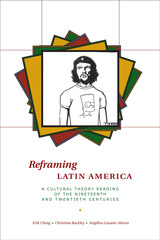 Reframing Latin America: A Cultural Theory Reading of the Nineteenth and Twentieth Centuries
By Erik Ching, Christina Buckley, and Angélica Lozano-Alonso
University of Texas Press, 2007 Providing an extensive introduction to cultural studies in general, regardless of chronological or geographic focus, and presenting provocative, essential readings from Latin American writers of the last two centuries, Reframing Latin America brings much-needed accessibility to the concepts of cultural studies and postmodernism. From Saussure to semiotics, the authors begin by demystifying terminology, then guide readers through five identity constructs, including nation, race, and gender. The readings that follow are presented with insightful commentary and encompass such themes as "Civilized Folk Marry the Barbarians" (including José Martí's "Our America") and "Boom Goes the Literature: Magical Realism as the True Latin America?" (featuring Elena Garro's essay "It's the Fault of the Tlaxcaltecas"). Films such as Like Water for Chocolate are discussed in-depth as well. The result is a lively, interdisciplinary guide for theorists and novices alike.
 The Reframing of Realism: Galdós & the Discourses of the 19th-Century Spanish Novel
Hazel Gold
Duke University Press, 1993 In virtually every aspect of human behavior, ritual, language, and art, perceptions are organized through the act of framing. In the writing of Benito Perez Galdós, Spain's most prolific and innovative nineteenth-century novelist, Hazel Gold finds this principle insistently at work. By exploring Galdós's methods of structuring and evaluating literary and historical experience, Gold illuminates the novelist's art and uncovers the far-reaching narratological, social, and epistemological implications of his framing strategies.
A close look at Galdós's novels reveals the artist at pains to contain and interpret what he perceived to be the distinctive and often disheartening experience of bourgeois liberalism of his day. At the same time, he can be seen here undermining or negating the accepted conventions of realist fiction. Looking beyond text to context, Gold examines the ways in which Galdós's work itself has been framed by readers and critics in accordance with changing allegiances to contemporary literary theory and the canon.
The highly ambiguous status of the frame in Galdós's fictions confirms the author's own signal position as a writer poised at the limits between realism and modernity. Gold's work will command the interest of students of Spanish and comparative literature, narrative theory, and the novel, as well as all those for whom realism and representation are at issue.
 Reframing Paquimé: Community Formation in Northwest Chihuahua
Michael E. Whalen and Paul E. Minnis
University of Arizona Press, 2025 Reframing Paquimé: Community Formation in Northwest Chihuahua is a groundbreaking reinterpretation of the Casas Grandes region by scholars Michael E. Whalen and Paul E. Minnis. This final installment in their comprehensive study challenges the dominant view of Paquimé as a hierarchical society founded by outsiders, presenting instead a compelling case for a largely locally organized society with Mesoamerican and Puebloan characteristics. Drawing on twenty-five years of extensive survey and excavation data, the authors offer a fresh perspective that reframes our understanding of this remarkable archaeological site. Whalen and Minnis bring forth significant new data that illuminates the cultural and ecological history of Paquimé and its neighboring communities. The book features more than fifty new radiocarbon dates, hundreds of analyzed archaeobotanical and faunal samples, plus tens of thousands of other artifacts. The data reveal a network of settlements characterized by corporate and ritual-based authority, challenging traditional models of the center’s rise, collapse, and subsequent regional abandonment and arguing that aspects of the Paquimé culture continued to exist up to the Spanish Colonial period. Reframing Paquimé is poised to become an essential reference for archaeologists interested in Northwest Mexico and the U.S. Southwest. By addressing the complex dynamics of community formation and dissolution, Whalen and Minnis provide invaluable insights that will ignite scholarly debate and inspire future research. This meticulously researched volume, authored by leading experts with decades of fieldwork experience, is a vital addition to any collection on the archaeology and ethnobotany of ancient North American societies.
Reframing Reality: The Aesthetics of the Surrealist Object in French and Czech Cinema
Alison Frank
Intellect Books, 2013 The surrealist object is an everyday item that takes on multiple associations by provoking the viewer’s imagination. It also poses a specific challenge for some filmmakers who seek to apply surrealist ideas and approaches when making feature-length narrative films. In Reframing Reality, Alison Frank looks specifically at French and Czech films, including works by Luis Buñuel, Jan Švankmajer, as well as the contemporary hit Amélie by Jean-Pierre Jeunet, in order to offer a new take on surrealist film.
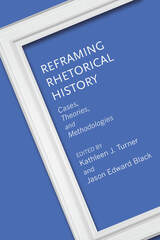 Reframing Rhetorical History: Cases, Theories, and Methodologies
Edited by Kathleen J. Turner and Jason Edward Black
University of Alabama Press, 2022 A collection of essays providing insights into new directions in rhetorical history
Kathleen J. Turner’s 1998 multicontributor volume Doing Rhetorical History: Concepts and Cases quickly became a foundational text in the field, and the studies in the book have served as an important roadmap for scholars undertaking such scholarship. In the decades since its publication, developments in rhetorical-historical research, engaged scholarship, and academic interventionism have changed the practice of rhetorical history tremendously.
To address this shift, Turner and Jason Edward Black have edited a much-anticipated follow-up volume: Reframing Rhetorical History: Cases, Theories, and Methodologies, which reassesses both history as rhetoric and rhetorical history as practice. This new book attends to a number of topics that have become not just hot-button issues in rhetorical scholarship but have entrenched themselves as anchors within the field. These include digital rhetoric, public memory, race and ethnicity, gender dynamics and sexualities, health and well-being, transnationalism and globalization, social justice, archival methods and politics, and colonialism and decoloniality.
The sixteen essays are divided into four major parts: “Digital Humanities and Culture” introduces methods and cases using twenty-first century technologies; “Identities, Cultures, and Archives” addresses race and gender within the contexts of critical race theory, gendered health rhetoric, race-based public memory, and class/sectionalism; “Approaches to Nationalism and Transnationalism” explores ideologies related to US and international cultures; and “Metahistories and Pedagogies” explores creative ways to approach the frame of metarhetorical history given what the field has learned since the publication of Doing Rhetorical History.
CONTRIBUTORS
Andrew D. Barnes / Jason Edward Black / Bryan Crable / Adrienne E. Hacker Daniels / Matthew deTar / Margaret Franz / Joe Edward Hatfield / J. Michael Hogan / Andre E. Johnson / Madison A. Krall / Melody Lehn / Lisbeth A. Lipari / Chandra A. Maldonado / Roseann M. Mandziuk / Christina L. Moss / Christopher J. Oldenburg / Sean Patrick O’Rourke / Daniel P. Overton / Shawn J. Parry-Giles / Philip Perdue / Kathleen J. Turner
Reframing Russian Modernism
Edited by Irina Shevelenko
University of Wisconsin Press, 2018 Presenting a multifaceted portrait of modernist culture in Russia, an array of distinguished scholars shows how artists and writers in the early twentieth century engaged with politics, science, and religion. At a time when many Russian social institutions looked to the past, modernist arts powerfully amplified a gamut of new ideas about individual and collective transformation.
Expanding upon prior studies that focus more specifically on literary manifestations of the movement, Reframing Russian Modernism features original research that ranges broadly, from political aesthetics to Darwinism to yoga. These unique complementary perspectives counter reductionism of any kind, integrating the study of Russian modernism into the larger body of humanistic scholarship devoted to modernity.
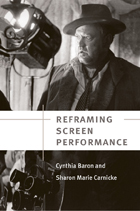 Reframing Screen Performance
Cynthia Baron and Sharon Marie Carnicke
University of Michigan Press, 2008 "A significant contribution to the literature on screen performance studies, Reframing Screen Performance brings the study of film acting up to date. It should be of interest to those within cinema studies as well as general readers."
---Frank P. Tomasulo, Florida State University Reframing Screen Performance is a groundbreaking study of film acting that challenges the long held belief that great cinematic performances are created in the editing room. Surveying the changing attitudes and practices of film acting---from the silent films of Charlie Chaplin to the rise of Lee Strasberg's Actor's Studio in the 1950s to the eclecticism found in contemporary cinema---this volume argues that screen acting is a vital component of film and that it can be understood in the same way as theatrical performance. This richly illustrated volume shows how and why the evocative details of actors' voices, gestures, expressions, and actions are as significant as filmic narrative and audiovisual design. The book features in-depth studies of performances by Anjelica Huston, John Cusack, and Julianne Moore (among others) alongside subtle analyses of directors like Robert Altman and Akira Kurosawa, Sally Potter and Orson Welles. The book bridges the disparate fields of cinema studies and theater studies as it persuasively demonstrates the how theater theory can be illuminate the screen actor's craft. Reframing Screen Performance brings the study of film acting into the twenty-first century and is an essential text for actors, directors, cinema studies scholars, and cinephiles eager to know more about the building blocks of memorable screen performance. Cynthia Baron is Associate Professor of Film Studies at Bowling Green State University and co-editor of More Than a Method: Trends and Traditions in Contemporary Film Performance. Sharon Carnicke is Professor of Theater and Slavic Studies and Associate Dean of Theater at the University of Southern California and author of Stanislavsky in Focus.
Reframing Seventeenth-Century Bolognese Art: Archival Discoveries
Babette Bohn
Amsterdam University Press, 2019 These ground-breaking essays, all based on original archival research, consider the evolving interest in Bolognese art in seventeenth-century Italy, particularly focusing on the period after the death of Guido Reni in 1642. Edited by Bolognese specialists Raffaella Morselli and Babette Bohn, the studies collected here focus on the taste for Bolognese art within Bologna itself and in other parts of the Italian peninsula, including Mantua, Ferrara, Rome, and Florence. Essays examine the roles of gender, class, and the social status of the artist in early modern Bologna; approaches to exhibiting artworks in noble Bolognese collections; the reputations of local women artists; the popularity of Bolognese quadratura painting; and the relative success of both contemporary and earlier Bolognese artists with Italian collectors.
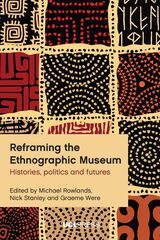 Reframing the Ethnographic Museum: Histories, Politics and Futures
Edited by Michael Rowlands, Nick Stanley, and Graeme Were
University College London, 2025 Amid calls for decolonization and digital innovation, this necessary work explores the shifting histories and futures of ethnographic museums worldwide.
Ethnographic museums are at a crossroads; caught between colonial legacies, and the difficulties of captivating new audiences in a digital world. Reframing the Ethnographic Museum brings together leading scholars and curators to study the shifting role of these institutions in a rapidly changing cultural and political landscape. From Asia to Africa, the book explores how different museum strategies have grappled with decolonization and digital transformation, engaging in critical analysis and including case studies of innovative curatorial practices.
As museums confront calls for accountability and reconsider their collections, this volume provides a relevant exploration of the dilemmas and possibilities facing ethnographic display today. Reframing the Ethnographic Museum urges us to rethink how we engage with the past, and how museums can become spaces of dialogue and reflection.
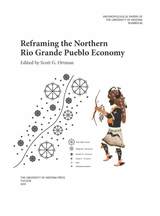 Reframing the Northern Rio Grande Pueblo Economy
Edited by Scott G. Ortman
University of Arizona Press, 2019 Rio Grande pueblo societies took shape in the aftermath of significant turmoil and migration in the thirteenth century. In the centuries that followed, the size of Pueblo settlements, level of aggregation, degree of productive specialization, extent of interethnic exchange, and overall social harmony increased to unprecedented levels.
Economists recognize scale, agglomeration, the division of labor, international trade, and control over violence as important determinants of socioeconomic development in the modern world. But is a development framework appropriate for understanding Rio Grande archaeology? What do we learn about contemporary Pueblo culture and its resiliency when Pueblo history is viewed through this lens? What does the exercise teach us about the determinants of economic growth more generally?
The contributors in this volume argue that ideas from economics and complexity science, when suitably adapted, provide a compelling approach to the archaeological record. Contributors consider what we can learn about socioeconomic development through archaeology and explore how Pueblo culture and institutions supported improvements in the material conditions of life over time. They examine demographic patterns; the production and exchange of food, cotton textiles, pottery, and stone tools; and institutional structures reflected in village plans, rock art, and ritual artifacts that promoted peaceful exchange. They also document change through time in various economic measures and consider their implications for theories of socioeconomic development.
The archaeological record of the Northern Rio Grande exhibits the hallmarks of economic development, but Pueblo economies were organized in radically different ways than modern industrialized and capitalist economies. This volume explores the patterns and determinants of economic development in pre-Hispanic Rio Grande Pueblo society, building a platform for more broadly informed research on this critical process.
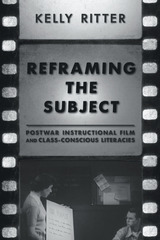 Reframing the Subject: Postwar Instructional Film and Class-Conscious Literacies
Kelly Ritter
University of Pittsburgh Press, 2015 “Mental hygiene” films developed for classroom use touted vigilance, correct behavior, morality, and model citizenship. They also became powerful tools for teaching literacy skills and literacy-based behaviors to young people following the Second World War.
In this study, Kelly Ritter offers an extensive theoretical analysis of the alliance of the value systems inherent in mental hygiene films (class-based ideals, democracy, patriotism) with writing education—an alliance that continues today by way of the mass digital technologies used in teaching online. She further details the larger material and cultural forces at work in the production of these films behind the scenes and their effects on education trends.
Through her examination of literacy theory, instructional films, policy documents, and textbooks of the late 1940s to mid–1950s, Ritter demonstrates a reliance on pedagogies that emphasize institutional ideologies and correctness over epistemic complexity and de-emphasize the role of the student in his or her own learning process. To Ritter, these practices are sustained in today’s pedagogies and media that create a false promise of social uplift through formalized education, instead often resulting in negative material consequences.
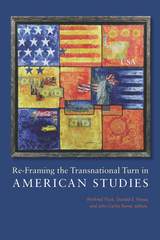 Re-Framing the Transnational Turn in American Studies
Edited by Winfried Fluck, Donald E. Pease, and John Carlos Rowe
Dartmouth College Press, 2011 This volume is the outcome of a transatlantic conversation on the topic “Transnational America,” in which more than sixty scholars from universities in the United States and Germany gathered to assess the historical significance of and examine the academic prospects for the “transnational turn” in American studies. This development has brought about the most significant re-imagining of the field since its inception. The “transnational” has subsumed competing spatial and temporal orientations to the subject and has dismantled the foundational tenets and premises informing the methodology, periodization, pedagogy, and geographical locations of U.S. American studies, but transnational American studies scholars have not yet provided a coherent portrait of their field. This volume constitutes an effort to produce this needed portrait. The editors have gathered work from a host of senior and up-and-coming Americanists to compile a field-defining project that will influence both scholars and students of American studies for many years to come.
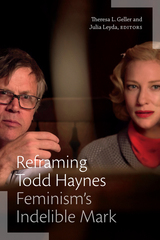 Reframing Todd Haynes: Feminism’s Indelible Mark
Theresa L. Geller and Julia Leyda, editors
Duke University Press, 2022 For three decades, award-winning independent filmmaker Todd Haynes, who emerged in the early 1990s as a foundational figure in New Queer Cinema, has gained critical recognition for his outsider perspective. Today, Haynes is widely known for bringing women’s stories to the screen. Analyzing Haynes’s films including Safe (1995), Velvet Goldmine (1998), Far from Heaven (2002), and Carol (2015), as well as his unauthorized Karen Carpenter biopic, Superstar (1987), and the television miniseries Mildred Pierce (2011), the contributors to Reframing Todd Haynes reassess his work in light of his long-standing feminist commitments and his exceptional career as a director of women’s films. They present multiple perspectives on Haynes’s film and television work and on his role as an artist-activist who draws on academic theorizations of gender and cinema. The volume illustrates the influence of feminist theory on Haynes’s aesthetic vision, most evident in his persistent interest in the political and formal possibilities afforded by the genre of the woman’s film. The contributors contend that no consideration of Haynes’s work can afford to ignore the crucial place of feminism within it.
Contributors. Danielle Bouchard, Nick Davis, Jigna Desai, Mary R. Desjardins, Patrick Flanery, Theresa L. Geller, Rebecca M. Gordon, Jess Issacharoff, Lynne Joyrich, Bridget Kies, Julia Leyda, David E. Maynard, Noah A. Tsika, Patricia White, Sharon Willis
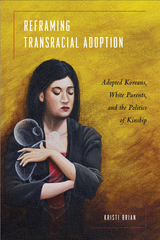 Reframing Transracial Adoption: Adopted Koreans, White Parents, and the Politics of Kinship
Kristi Brian
Temple University Press, 2012 Until the late twentieth century, the majority of foreign-born children adopted in the United States came from Korea. In the absorbing book Reframing Transracial Adoption, Kristi Brian investigates the power dynamics at work between the white families, the Korean adoptees, and the unknown birth mothers. Brian conducts interviews with adult adopted Koreans, adoptive parents, and adoption agency facilitators in the United States to explore the conflicting interpretations of race, culture, multiculturalism, and family.
Brian argues for broad changes as she critiques the so-called "colorblind" adoption policy in the United States. Analyzing the process of kinship formation, the racial aspects of these adoptions, and the experience of adoptees, she reveals the stifling impact of dominant nuclear-family ideologies and the crowded intersections of competing racial discourses.
Brian finds a resolution in the efforts of adult adoptees to form coherent identities and launch powerful adoption reform movements.
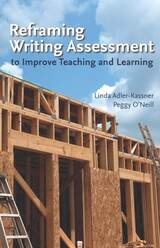 Reframing Writing Assessment to Improve Teaching and Learning
Linda Adler-Kassner
Utah State University Press, 2010 Adler-Kassner and O'Neill show writing faculty and administrators how to frame discussions of writing assessment so that they accurately represent research-based practices, and promote assessments that are valid, reliable, and discipline-appropriate. Public discourse about writing instruction is currently driven by ideas of what instructors and programs “need to do,” “should do,” or “are not doing,” and is based on poorly informed concepts of correctness and unfounded claims about a broad decline in educational quality. This discussion needs to be reframed, say Adler-Kassner and O'Neill, to help policymakers understand that the purpose of writing instruction is to help students develop critical thinking, reading, and writing strategies that will form the foundation for their future educations, professional careers, and civic engagement. Reframing Writing Assessment to Improve Teaching and Learning is grounded in the best of writing assessment research, and focuses on how to communicate it effectively to publics beyond academe.
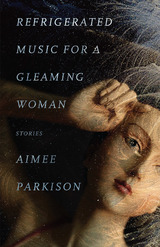 Refrigerated Music for a Gleaming Woman: Stories
Aimee Parkison, Foreword by Stephen Graham Jones
University of Alabama Press, 2017 Winner of the FC2 Catherine Doctorow Innovative Fiction Prize
A darkly comical horror lurks beneath the surface of everyday events in Refrigerated Music for a Gleaming Woman, a seductively poetic story collection of unusual brilliance and rare humor.
In Aimee Parkison’s Refrigerated Music for a Gleaming Woman, lovers find unexpected romance in cramped spaces, fast food addicts struggle through cheeseburger addiction, and the splendor of nature competes with the violence of television. All the while, a complicated and precarious present dawns onto a new world where wealthy women wear children’s eyes as jewelry and those in need of money hawk their faces only to forever mourn what parts of themselves they have sold to survive.
Open the refrigerator door. Inside are antique jars. Open them to hear the music: Beethoven playing piano; slaves singing for freedom in plantation fields; mothers humming lullabies through the night to smallpox babies, knowing this song is the last sound their children will ever hear.
As Stephen Graham Jones notes in his foreword to this prize-winning collection, “The best books . . . fold you into a darkness sparkling with life. They lock you in the refrigerator but they also pipe in some music that never repeats, and when the door starts to open, you cling tight to it, so you can have just a few minutes more. This book, it’ll be over far too fast for you, yes. But even were it five times as thick as it is now, it would still be too short. Remember, though, the best books, they’re loops. They never stop. This one still hasn’t, for me.”
 The Refrigerator and the Universe: Understanding the Laws of Energy
Martin Goldstein and Inge F. Goldstein
Harvard University Press, 1993 C. P. Snow once remarked that not knowing the second law of thermodynamics is like never having read Shakespeare. Yet, while many people grasp the first law of energy, “Energy can neither be created nor destroyed,” few recognize the second, “Entropy can only increase.” What is entropy anyway, and why must it increase? Whether we want to know how a device as simple as a refrigerator works or understand the fate of the universe, we must start with the concepts of energy and entropy.
In The Refrigerator and the Universe, Martin and Inge Goldstein explain the laws of thermodynamics for science buffs and neophytes alike. They begin with a lively presentation of the historical development of thermodynamics. The authors then show how the laws follow from the atomic theory of matter and give examples of their applicability to such diverse phenomena as the radiation of light from hot bodies, the formation of diamonds from graphite, how the blood carries oxygen, and the history of the earth. The laws of energy, the Goldsteins conclude, have something to say about everything, even if they do not tell us everything about anything.
Refuge
Belle Waring
University of Pittsburgh Press, 1990
 Refuge Denied: The St. Louis Passengers and the Holocaust
Sarah A. Ogilvie and Scott Miller
University of Wisconsin Press, 2006 In May of 1939 the Cuban government turned away the Hamburg-America Line’s MS St. Louis, which carried more than 900 hopeful Jewish refugees escaping Nazi Germany. The passengers subsequently sought safe haven in the United States, but were rejected once again, and the St. Louis had to embark on an uncertain return voyage to Europe. Finally, the St. Louis passengers found refuge in four western European countries, but only the 288 passengers sent to England evaded the Nazi grip that closed upon continental Europe a year later. Over the years, the fateful voyage of the St. Louis has come to symbolize U.S. indifference to the plight of European Jewry on the eve of World War II.
Although the episode of the St. Louis is well known, the actual fates of the passengers, once they disembarked, slipped into historical obscurity. Prompted by a former passenger’s curiosity, Sarah Ogilvie and Scott Miller of the United States Holocaust Memorial Museum set out in 1996 to discover what happened to each of the 937 passengers. Their investigation, spanning nine years and half the globe, took them to unexpected places and produced surprising results. Refuge Denied chronicles the unraveling of the mystery, from Los Angeles to Havana and from New York to Jerusalem.
Some of the most memorable stories include the fate of a young toolmaker who survived initial selection at Auschwitz because his glasses had gone flying moments before and a Jewish child whose apprenticeship with a baker in wartime France later translated into the establishment of a successful business in the United States. Unfolding like a compelling detective thriller, Refuge Denied is a must-read for anyone interested in the Holocaust and its impact on the lives of ordinary people.
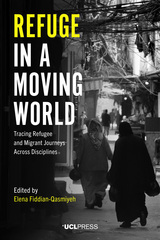 Refuge in a Moving World: Tracing Refugee and Migrant Journeys Across Disciplines
Edited by Elena Fiddian-Qasmiyeh
University College London, 2020 The journeys and experiences of refugees and migrants are deeply complex and highly varied. It takes critical reflections from a diverse range of fields and angles to communicate the nuanced tangles of power structures and inequalities on local, national, and international levels. Bringing (?) together over thirty contributions, Refuge in a Moving World discusses migration and displacement from a kaleidoscopic collection of voices.
Through interdisciplinary lenses, the contributors explore the ways that different people experience and respond to their own situations and to those of other people. Refuge in a Moving World combines vital reflections on the intricacies of conceptualizing experiences of forced migration and how people inhabit and negotiate everyday life. Ultimately, Refuge in a Moving World argues that working collaboratively to share experiences of migration and displacement fosters more sustainable responses to our moving world.
Refuge in the Lord
Lawrence J. McAndrews
Catholic University of America Press, 2015 Rather than helping to overcome the growing political divide over immigration in the country and the church, Catholics on the outer edges of the issue contributed to it. By eschewing compromise in favor of confrontation, Catholic legislators from both parties too often helped prevent Congress from giving the presidents, and the public, most of what they wanted on immigration reform. By forsaking political reality in the name of religious purity, Catholic immigration advocates frequently antagonized the presidents whose goals they largely shared, and ultimately disappointed the immigrants they so badly wanted to help.
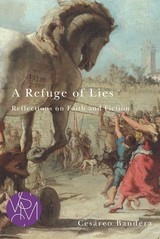 A Refuge of Lies: Reflections on Faith and Fiction
Cesareo Bandera
Michigan State University Press, 2013 Erich Auerbach’s seminal Mimesis: The Representation of Reality in Western Literature was published more than sixty years ago and is deservedly considered a classic. The book brought into focus the fundamental difference that exists between the two basic approaches to the textual representation of reality in Western culture. These two “styles,” as Auerbach called them, were archetypically displayed in Homer’s poems and in the Old Testament, respectively. Auerbach’s differentiation is the starting point for Bandera’s insightful work, which expands and develops on this theory in several key ways. One of the more significant differences between the two styles transcends and grounds all the others. It concerns the truth of each of the two archetypal texts, or rather, the attitude exhibited in those texts with regard to the truth of what they narrate. Auerbach, Bandera notes, is amazed at the Bible’s “passionate” concern for the truth of what it says—a concern he found absent in Homer. Bandera finds that what the prophet Isaiah called “a refuge of lies” defines Homer’s work. He draws on his own research and René Girard’s theory of the sacred to develop an enhanced perspective of the relationship between these texts.
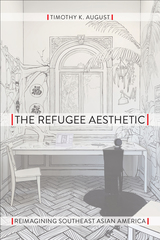 The Refugee Aesthetic: Reimagining Southeast Asian America
Timothy August
Temple University Press, 2021 The refugee is conventionally considered a powerless figure, eagerly cast aside by both migrant and host communities. In his book, The Refugee Aesthetic, Timothy August investigates how and why a number of Southeast Asian American artists and writers have recently embraced the figure of the refugee as a particularly transformative position. He explains how these artists, theorists, critics, and culture-makers reconstruct their place in the American imagination by identifying and critiquing the underlying structures of power that create refugees in the contemporary world. August looks at the outside forces that shape refugee representation and how these expressions are received. He considers the visual legacy of the Southeast Asian refugee experience by analyzing music videos, graphic novels, and refugee artwork. August also examines the power of refugee literature, showing how and why Southeast Asian American writers look to the refugee position to disentangle their complicated aesthetic legacy. Arguing that “aesthetics” should be central to the conceptualization of critical refugee studies, August shows how representational structures can galvanize or marginalize refugees, depending on how refugee aesthetics are used and circulated.
 Refugee Lifeworlds: The Afterlife of the Cold War in Cambodia
Y-Dang Troeung
Temple University Press, 2022 Cambodian history is Cold War history, asserts Y-Dang Troeung in Refugee Lifeworlds. Constructing a genealogy of the afterlife of the Cold War in Cambodia, Troeung mines historical archives and family anecdotes to illuminate the refugee experience, and the enduring impact of war, genocide, and displacement in the lives of Cambodian people. Troeung, a child of refugees herself, employs a method of autotheory that melds critical theory, autobiography, and textual analysis to examine the work of contemporary artists, filmmakers, and authors. She references a proverb about the Cambodian kapok tree that speaks to the silences, persecutions, and modes of resistance enacted during the Cambodian Genocide, and highlights various literary texts, artworks, and films that seek to document and preserve Cambodian histories nearly extinguished by the Khmer Rouge regime. Addressing the various artistic responses to prisons and camps, issues of trauma, disability, and aphasia, as well as racism and decolonialism, Refugee Lifeworlds repositions Cambodia within the broader transpacific formation of the Cold War. In doing so, Troeung reframes questions of international complicity and responsibility in ways that implicate us all.
Refugee Performance: Practical Encounters
Edited by Michael Balfour
Intellect Books, 2013 Exploring theater works created for, by, and with refugees, this hybrid collection of essays combines newly commissioned scholarly work with examples of writing by refugees themselves. These varied contributions illuminate performances that range from theater in Thai refugee camps to site-specific works staged in a run-down immigrant community in the United Kingdom. An exciting addition to the growing field of applied theater, Refugee Performance provides inspiring insight into the resilience and creativity of artists responding to one of the most critical issues of our time.
 Refugee Reception in Southern Africa
Nicholas Maple
University of London Press, 2024 A comparative analysis of the politics surrounding the welcome afforded to refugees in Zambia and South Africa.
While state-based reception is frequently framed as one-off moments such as registration, Refugee Reception in Southern Africa proposes a new understanding whereby reception is a process that reflects the complex dynamics of contemporary refugee arrival. By adopting this understanding, the book demonstrates how reception is a complex and ongoing process of negotiations between refugees and the state. Indeed, the relationship between the refugee and host state often remains fragile and prone to ruptures, especially when less formal reception policies allow refugees to move back and forth between refugee camps and local areas. Nevertheless, through these negotiations, Refugee Reception in Southern Africa shows how reception policies are vital in shaping a refugee’s ability to settle and engage with local communities and labor markets.
Using the cases of Zambia and South Africa, the book explores why some countries maintain encampment reception policies for refugees and others use a more liberal “free settlement” approach, whereby refugees are granted freedom of movement and permitted to settle in cities and towns. This book offers an original and unique perspective on refugee hosting in southern Africa, one that does not look upon persons who flee across a border as a homogenous group whose movement abruptly ends once they arrive in a host state or refugee camp.
 Refugee Rights: Ethics, Advocacy, and Africa
David Hollenbach, SJ, Editor
Georgetown University Press, 2008 Of the over 33 million refugees and internally displaced people in the world today, a disproportionate percentage are found in Africa. Most have been driven from their homes by armed strife, displacing people into settings that fail to meet standards for even basic human dignity. Protection of the human rights of these people is highly uncertain and unpredictable. Many refugee service agencies agree advocacy on behalf of the displaced is a key aspect of their task. But those working in the field are so pressed by urgent crises that they can rarely analyze the requirements of advocacy systematically. Yet advocacy must go beyond international law to human rights as an ethical standard to prevent displaced people from falling through the cracks of our conflicted world. Refugee Rights: Ethics, Advocacy, and Africa draws upon David Hollenbach, SJ's work as founder and director of the Center for Human Rights and International Justice at Boston College to provide an analytical framework for vigorous advocacy on behalf of refugees and internally displaced people. Representing both religious and secular perspectives, the contributors are scholars, practitioners, and refugee advocates—all of whom have spent time "on the ground" in Africa. The book begins with the poignant narrative of Abebe Feyissa, an Ethiopian refugee who has spent over fifteen years in a refugee camp from hell. Other chapters identify the social and political conditions integral to the plight of refugees and displaced persons. Topics discussed include the fundamental right to freedom of movement, gender roles and the rights of women, the effects of war, and the importance of reconstruction and reintegration following armed conflict. The book concludes with suggestions of how humanitarian groups and international organizations can help mitigate the problem of forced displacement and enforce the belief that all displaced people have the right to be treated as their human dignity demands. Refugee Rights offers an important analytical resource for advocates and students of human rights. It will be of particular value to practitioners working in the field.
Refugee Students: What Every ESL Teacher Needs to Know
Jeffra Flaitz
University of Michigan Press, 2018 Refugee Students offers a compassionate yet practical guide for anyone who wants to better understand their refugee students, including their backgrounds, their challenges, and their strengths. Author Jeffra Flaitz provides a research- and fact-based guide to teaching refugees in today’s U.S. educational system. She discusses the different categories of immigrants, the diversity of refugees, how they may differ from other ESL students, and the risks they may face. Each section is followed by a list of what educators can do for these students.
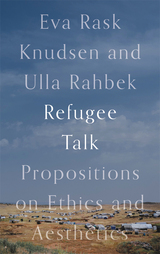 Refugee Talk: Propositions on Ethics and Aesthetics
Eva
Pluto Press, 2022 An innovative approach to the refugee crisis through a focus on language use, discourse and representation
'A wide-ranging, erudite and multi-faceted analyses of the fundamental problem of who gets to be counted as human' - Kate Evans
What does it mean to be a refugee? What political questions do they raise? Through what political rhetoric is their experiences parsed? The ongoing refugee crisis has sparked all these questions and more.
Refugee Talk uses conversation as a research method and ethical practice to approach the representation of and the discourse about and by the refugee. Though refugees who cross borders are routinely registered, filed, and detained, the individual stories they carry are just as routinely overlooked or ignored. When language itself becomes another border that excludes refugees, the need for a new vocabulary that decriminalizes and re-humanizes the refugee experience asserts itself.
The authors engage theoretically with thinkers from Hannah Arendt to Paolo Freire and Kwame A. Appiah and structure the book around conversations with academics, activists, journalists, and refugee artists and writers. The result is a comprehensive humanities approach that places ethics and aesthetics at its core.
 Refugee to Revolutionary: A Transnational History of Greek Communist Women in Interwar Europe
Margarite Poulos
Vanderbilt University Press, 2024 The obscure first-generation female cadres of the Greek communist movement were cultivated in the 1920s in the context of Bolshevization, while others were mobilized by antifascism and resistance to the Axis occupation. A number of these women traveled to Moscow to undertake training in the communist universities for foreigners established by the Comintern.
Refugee to Revolutionary examines the national and transnational world the female cadres of the Greek communist movement traversed, situated between their own aspirations, the objectives of the Greek Communist Party (KKE), and the global ambitions of the Comintern. Drawing largely on data contained in the individual files (anketas) of the KKE cadres located in the Comintern archive at the Russian State Archive for Socio-Political History (RGASPI), as well as Greek Communist Party archival materials, this history is told largely in the voice, albeit the “official” voice, of the subjects themselves. These voices reveal much about the personal, cultural, social, and gendered dimensions of their experience. They convey a story of opportunity and sacrifice and the sense of being part of something historic and extraordinary.
The overarching purpose of this book is two-pronged: The first is to address a historiographical void attributable to a combination of factors, which includes the inaccessibility of Soviet archival materials and a persistent hegemonic masculinity that continues to define the historiography of Greek communism. Second, this work is situated within a new literature represented by scholars such as Brigitte Studer, Lisa Kirschenbaum, Francisca De Haan, and others, which destabilizes Cold War paradigms that have long dominated evaluations of agency, identity, and subjectivity in the Western historiography of communism.
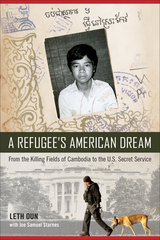 A Refugee's American Dream: From the Killing Fields of Cambodia to the U.S. Secret Service
Leth Oun with Joe Samuel Starnes
Temple University Press, 2023 “I saw many killed. I almost starved. But I escaped to refugee camps in Thailand and eventually made it to the U.S.” Thus begins Leth Oun’s poignant and vivid memoir. A survivor of the Cambodian Killing Fields—having spent a torturous three years, eight months, and ten days imprisoned by the Khmer Rouge—Oun thrived in America, learning English, becoming a citizen, and working as an officer in the United States Secret Service Uniformed Division.
In A Refugee’s American Dream, Oun shares hard memories of Cambodia, where his father was executed, and his family enslaved in labor camps. Following the fall of the Khmer Rouge, Oun survived a year of homelessness then nearly four years in refugee camps. Arriving in America, 17 and penniless, Oun struggled, washing dishes at a Chinese restaurant for $3.15 an hour. Still, he persevered, graduating from Widener University and completing thousands of hours of training to pursue a career in the Secret Service. While on President Obama’s protection team, he returns to Cambodia after 32 years, reunites with family, and bonds with Reik, the Secret Service dog he handles. Through his most difficult moments, Oun displays truly inspiring resilience that ultimately leads to great achievements. The authors’ proceeds will go to help Cambodians in need
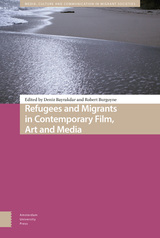 Refugees and Migrants in Contemporary Film, Art and Media
Deniz Bayrakdar
Amsterdam University Press, 2022 Migration in the 21st century is one of the pre-eminent issues of our present historical moment, a phenomenon that has acquired new urgency with accelerating climate change, civil wars, and growing economic scarcities. Refugees and Migrants in Contemporary Film, Art and Media consists of eleven essays that explore how artists have imaginatively engaged with this monumental human drama, examining a range of alternative modes of representation that provide striking new takes on the experiences of these precarious populations. Covering prominent art works by Ai Weiwei and Richard Mosse, and extending the spectrum of representation to refugee film workshops on the island of Lésbos as well as virtual reality installations of Alejandro G. Iñárritu and works by Balkan and Turkish directors, such as Melisa Önel, the chapters included here focus on the power of aesthetic engagement to illuminate the stories of refugees and migrants in ways that overturn journalistic clichés.
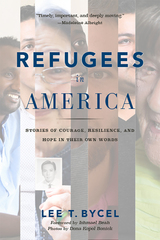 Refugees in America: Stories of Courage, Resilience, and Hope in Their Own Words
Lee T Bycel
Rutgers University Press, 2019 It is not an easy road—but hope is the oxygen of my life. These insightful words of Meron Semedar, a refugee from Eritrea, reflect the feelings of the eleven men and women featured in this book. These refugees share their extraordinary experiences of fleeing oppression, violence and war in their home countries in search of a better life in the United States.
Each chapter of Refugees in America focuses on an individual from a different country, from a 93-year-old Polish grandmother who came to the United States after surviving the horrors of Auschwitz to a young undocumented immigrant from El Salvador who became an American college graduate, despite being born impoverished and blind. Some have found it easy to reinvent themselves in the United States, while others have struggled to adjust to America, with its new culture, language, prejudices, and norms.
Each of them speaks candidly about their experiences to author Lee T. Bycel, who provides illuminating background information on the refugee crises in their native countries. Their stories help reveal the real people at the center of political debates about US immigration.
Giving a voice to refugees from such far-flung locations as South Sudan, Guatemala, Syria, and Vietnam, this book weaves together a rich tapestry of human resilience, suffering, and determination.
Profits from the sale of this book will be donated to two organizations that are doing excellent refugee resettlement work and offer many opportunities to support refugees: HIAS (founded as the Hebrew Immigrant Aid Society) hias.org International Rescue Committee (IRC) rescue.org
 Refugees' Roles in Resolving Displacement and Building Peace: Beyond Beneficiaries
Megan Bradley, James Milner, and Blair Peruniak, Editors
Georgetown University Press, 2019 How are refugee crises solved? This has become an urgent question as global displacement rates continue to climb, and refugee situations now persist for years if not decades. The resolution of displacement and the conflicts that force refugees from their homes is often explained as a top-down process led and controlled by governments and international organizations. This book takes a different approach. Through contributions from scholars working in politics, anthropology, law, sociology and philosophy, and a wide range of case studies, it explores the diverse ways in which refugees themselves interpret, create and pursue solutions to their plight. It investigates the empirical and normative significance of refugees’ engagement as agents in these processes, and their implications for research, policy and practice. This book speaks both to academic debates and to the broader community of peacebuilding, humanitarian and human rights scholars concerned with the nature and dynamics of agency in contentious political contexts, and identifies insights that can inform policy and practice.
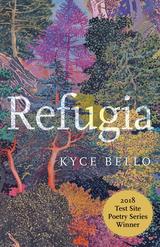 Refugia: Poems
Kyce Bello
University of Nevada Press, 2019 Winner of the 2020 New Mexico-Arizona Book Awards
Winner of the inaugural Interim 2018 Test Site Poetry Series Prize
Refugia is a bright and hopeful voice in the current conversation about climate change. Kyce Bello’s stunning debut ponders what it means to inhabit a particular place at a time of enormous disruption, witnessing a beloved landscape as it gives way to, as Bello writes, “something other and unknown, growing beyond us.” Ultimately an exploration of resilience, Refugia brings to life the author’s home ground in Northern New Mexico and carefully observes the seasons in parallel with personal cycles of renewal and loss. These vivid poems touch upon history, inheritance, drought, and most of all, trees—be they Western conifers succumbing to warming temperatures, ramshackle orchards along the Rio Grande, or family trees reaching simultaneously into the past and future.
Like any wilderness, Refugia creates a terrain that is grounded in image and yet many-layered and complex. These poems write us back into an ecological language of place crucial to our survival in this time of environmental crisis.
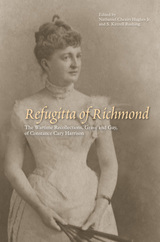 Refugitta of Richmond: The Wartime Recollections, Grave and Gay, of Constance Cary Harrison
Nathaniel Cheairs Hughes Jr. and S. Kittrell Rushing
University of Tennessee Press, 2011
In the expansive canon of Civil War memoirs, relatively few accounts from women exist. Among the most engaging and informative of these rare female perspectives is Constance Cary Harrison’s Recollections Grave and Gay, a lively, first-person account of the collapse of the Confederacy by the wife of President Jefferson Davis’s private secretary. Although equal in literary merit to the well-known and widely available diaries of Mary Boykin Chesnut and Eliza Frances Andrews, Harrison’s memoir failed to remain in print after its original publication in 1916 and, as a result, has been lost to all but the most diligent researcher. In Refugitta of Richmond, Nathaniel Cheairs Hughes Jr. and S. Kittrell Rushing resurrect Harrison’s work, reintroducing an especially insightful perspective on the Southern high command, the home front, and the Confederate elite.
Born into an old, aristocratic Virginia family in 1843, Constance Cary fled with her family from their estate near Alexandria, Virginia, to Richmond in 1862. There, the nineteen-year-old met Burton Norvell Harrison, a young math professor from the University of Mississippi who had come to the Confederate capital to work for Davis. The pair soon became engaged and joined the inner circle of military, political, and social leaders at the Confederate White House. Under the pen name “Refugitta,” Constance also wrote newspaper columns about the war and became a respected member of Richmond’s literary community.
Fifty years later, Constance used her wartime diaries and letters to pen her recollections of her years in Richmond and of the confusing months immediately after the war. She offers lucid, insightful, and detailed observations of the Confederate home front even as she reflects on the racial and class biases characteristic of her time and station. With an informative introduction and thorough annotations by Hughes and Rushing, Refugitta of Richmond provides a highly readable, often amusing, occasionally troubling insider’s look at the Confederate nerve center and its ultimate demise.
Nathaniel Cheairs Hughes Jr. is the author or editor of twenty books relating to the American Civil War, including The Life and Wars of Gideon J. Pillow; Brigadier General Tyree H. Bell, C.S.A.: Forrest’s Fighting Lieutenant; and Yale’s Confederates.
S. Kittrell Rushing, Frank McDonald Professor of History at the University of Tennessee at Chattanooga, is the editor of Eliza Frances Andrews’s A Family Secret and Journal of a Georgia Woman, 1870–1872. Rushing also edited and annotated Judge Garnett Andrews’s Reminiscences of an Old Georgia Lawyer.
 Refusals and Reinventions: Engendering New Indigenous and Black Life across the Americas
Daniel Ìgbín’bí Coleman
Ohio State University Press, 2024 In Refusals and Reinventions, artist-scholar-organizer Daniel Coleman considers his critical trajectories and participation in intersectional justice struggles in the US and Mexico, situating them within larger abolitionist and decolonial movements for Black civil rights and Native/Indigenous sovereignty. He identifies how Black and Indigenous people create, exist in, and reclaim many worlds—the pluriverse—through their artistic refusals and reinventions. Coleman thus contributes to a growing body of pluriversal thought, inspired by the Zapatista motto “a world in which many worlds fit.” Charting previously unrecognized connections among the creative struggles of Indigenous people in southern Mexico and Black people in the southern United States, Coleman draws on performance praxis, decolonial pedagogies, and Afro-diasporic and Native/Indigenous cosmologies to frame four case studies of people refusing racialized, gendered violences as world-making tools. In looking at creative responses among activists in Chiapas and in North Carolina, Coleman uses transfeminist, Black feminist, and decolonial frameworks to ask: How do creative insurgent practices give us access to our humanity? And what do praxis and engaged witnessing have to teach us about what worlds from the pluriverse hold?
Refuse: Poems
Julian Randall
University of Pittsburgh Press, 2018 Winner of the 2017 Cave Canem Poetry Prize
Set against the backdrop of the Obama presidency, Julian Randall's Refuse documents a young biracial man's journey through the mythos of Blackness, Latinidad, family, sexuality and a hostile American landscape. Mapping the relationship between father and son caught in a lineage of grief and inherited Black trauma, Randall conjures reflections from mythical figures such as Icarus, Narcissus and the absent Frank Ocean. Not merely a story of the wound but the salve, Refuse is a poetry debut that accepts that every song must end before walking confidently into the next music
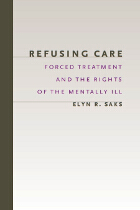 Refusing Care: Forced Treatment and the Rights of the Mentally Ill
Elyn R. Saks
University of Chicago Press, 2002 It has been said that how a society treats its least well-off members speaks volumes about its humanity. If so, our treatment of the mentally ill suggests that American society is inhumane: swinging between overintervention and utter neglect, we sometimes force extreme treatments on those who do not want them, and at other times discharge mentally ill patients who do want treatment without providing adequate resources for their care in the community.
Focusing on overinterventionist approaches, Refusing Care explores when, if ever, the mentally ill should be treated against their will. Basing her analysis on case and empirical studies, Elyn R. Saks explores dilemmas raised by forced treatment in three contexts—civil commitment (forced hospitalization for noncriminals), medication, and seclusion and restraints. Saks argues that the best way to solve each of these dilemmas is, paradoxically, to be both more protective of individual autonomy and more paternalistic than current law calls for. For instance, while Saks advocates relaxing the standards for first commitment after a psychotic episode, she also would prohibit extreme mechanical restraints (such as tying someone spread-eagled to a bed). Finally, because of the often extreme prejudice against the mentally ill in American society, Saks proposes standards that, as much as possible, should apply equally to non-mentally ill and mentally ill people alike.
Mental health professionals, lawyers, disability rights activists, and anyone who wants to learn more about the way the mentally ill are treated—and ought to be treated—in the United States should read Refusing Care.
Refutation of All Heresies
M. David Litwa
SBL Press, 2016 A reliable, readable translation for scholars and students
The Refutation of All Heresies (ca. 225 CE) is a treasure-trove of ancient philosophy, astrology, medicine, magic, Gnostic thought, numerology, heresiography, ecclesial politics, and early Christian studies in general. Offered here for the first time in almost a century is a full English translation, along with a newly-edited Greek text, extensive notes, and a thorough introduction.
Features:
- A full English translation with extensive notes
- Newly edited Greek text that avoids the pitfalls of the most recent edition
- A thorough-going introduction that addresses the questions of authorship, date, and audience, as well as the purpose of the book, its organization, method, and importance for Gnostic studies
 The Regal Throne: Power, Politics and Ribaldry—A Guide to Shakespeare’s "Richard II," "Henry IV" Parts 1 and 2, and "Henry V"
Nicholas Dobson
Sussex Academic Press, 2023 A guide through four Shakespearean histories, aiding the reader through both the complex political dynamics and early modern argot of each play.
Through four of Shakespeare’s histories, The Regal Throne considers the human condition in its many forms—lovably drunken rogues; dysfunctional kings; cowardly, preening braggarts; and nobly inspiring heroes. Navigating the fluctuating tides of slang and banter in Shakespeare’s early modern English, the book guides the reader from high political intrigue to lowlife bar-room repartee, from self-indulgent regal decline to elevated and inspirational kingly valor, from adolescent delinquency to exaltedly noble redemption. Explaining each scene of all four plays in detail, with copious reference to Shakespeare’s text throughout, The Regal Throne is an invaluable companion for all who set sail on this vibrant Shakespearean voyage into power, politics, and ribaldry.
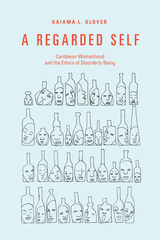 A Regarded Self: Caribbean Womanhood and the Ethics of Disorderly Being
Kaiama L. Glover
Duke University Press, 2021 In A Regarded Self Kaiama L. Glover champions unruly female protagonists who adamantly refuse the constraints of coercive communities. Reading novels by Marie Chauvet, Maryse Condé, René Depestre, Marlon James, and Jamaica Kincaid, Glover shows how these authors' women characters enact practices of freedom that privilege the self in ways unmediated and unrestricted by group affiliation. The women of these texts offend, disturb, and reorder the world around them. They challenge the primacy of the community over the individual and propose provocative forms of subjecthood. Highlighting the style and the stakes of these women's radical ethics of self-regard, Glover reframes Caribbean literary studies in ways that critique the moral principles, politicized perspectives, and established critical frameworks that so often govern contemporary reading practices. She asks readers and critics of postcolonial literature to question their own gendered expectations and to embrace less constrictive modes of theorization.
 Regarding Animals
Arnold Arluke and Clinton R. Sanders
Temple University Press, 1996 What is it about Western society, ask the authors, that makes it possible for people to express great affection for animals as sentient creatures and simultaneously turn a blind eye to the most callous behavior toward them? Animals are sold as expensive commodities, used as food and clothing, killed as vermin, and hunted for sport. But they also are treated as members of the family, used as the cause célèbre of social movements, and made the subject of art, film, and poetry. Such contradictions motivate these unique ethnographers to venture into social worlds most people know about only in passing, such as veterinary clinics where companion animals are cared for, animal shelters where dogs and cats are "mercifully" euthanized, and primate labs where monkeys are kept for animal experimentation. Arluke and Sanders are not distanced ethnographers. They worked in the clinics, shelters, and laboratories, cleaning cages, assisting in surgery, and participating in "sacrificing" animals for science or helping to provide them with an "easy death." In this book, the people who work with these animals and live through them talk to the authors about the strategies they adopt to cope with the stress of the job. This fascinating book combines sociological analysis with ethnographic description to give us insight into the history and practice of how we as human beings construct animals, and by extrapolation, how we construct ourselves and others in relation to them. In the series Animals, Culture, and Society, edited by Arnold Arluke and Clinton R. Sanders.
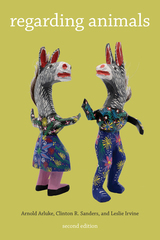 Regarding Animals
Arnold Arluke, Clinton R. Sanders, and Leslie Irvine
Temple University Press, 2022 Winner of the Charles Horton Cooley Award, Society for the Study of Symbolic Interaction, 1997 The first edition of Regarding Animals provided insight into the history and practice of how human beings construct animals, and how we construct ourselves and others in relation to them. Considerable progress in how society regards animals has occurred since that time. However, shelters continue to euthanize companion animals, extinction rates climb, and wildlife “management” pits human interests against those of animals. This revised and updated edition of Regarding Animals includes four new chapters, examining how relationships with pets help homeless people to construct positive personal identities; how adolescents who engage in or witness animal abuse understand their acts; how veterinary technicians experience both satisfaction and contamination in their jobs; and how animals are represented in mass media—both traditional editorial media and social media platforms. The authors illustrate how modern society makes it possible for people to shower animals with affection and yet also to abuse or kill them. Although no culture or subculture provides solutions for resolving all moral contradictions, Regarding Animals illuminates how people find ways to live with inconsistent behavior.
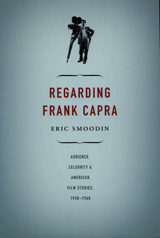 Regarding Frank Capra: Audience, Celebrity, and American Film Studies, 1930–1960
Eric Smoodin
Duke University Press, 2004 In this innovative historical examination of the American movie audience, Eric Smoodin focuses on reactions to the films of Frank Capra. Best known for his Hollywood features—including It Happened One Night, It’s a Wonderful Life, and Mr. Smith Goes to Washington—Capra also directed educational films, military films, and documentaries. Based on his analysis of the reception of a broad range of Capra’s films, Smoodin considers the preferences and attitudes toward Hollywood of the people who watched movies during the “Golden Age” of studio production, from 1930 to 1960. Drawing on archival sources including fan letters, exhibitor reports, military and prison records, government and corporate documents, and trade journals, Smoodin explains how the venues where Capra’s films were seen and the strategies used to promote the films affected audience response and how, in turn, audience response shaped film production. He analyzes issues of foreign censorship and government intervention in the making of The Bitter Tea of General Yen; the response of high school students to It Happened One Night; fan engagement with the overtly political discourse of Meet John Doe and Mr. Smith Goes to Washington; San Quentin prisoners’ reaction to a special screening of It’s a Wonderful Life; and at&t’s involvement in Capra’s later documentary work for the Bell Science Series. He also looks at the reception of Capra’s series Why We Fight, used by the American military to train recruits and re-educate German prisoners of war. Illuminating the role of the famous director and his films in American culture, Regarding Frank Capra signals new directions for significant research on film reception and promotion.
 Regarding Penelope: From Character to Poetics, Second Edition
Nancy Felson
Harvard University Press, 2025 A coy tease, enchantress, adulteress, irresponsible mother, hard-hearted wife—such are the possible images of Penelope that Homer playfully presents to listeners and readers of the Odyssey, and that his narration ultimately contradicts or fails to confirm. In this updated and expanded second edition of Regarding Penelope, Nancy Felson explores the relationship between Homer’s construction of Penelope and his more general approach to poetic production and reception.
Felson begins by considering Penelope as an object of male gazes (those of Telemachus, Odysseus, the suitors, and Agamemnon’s ghost) and as a subject acting from her own desire. Focusing on how the audience might try to predict Penelope’s fate when confronted with the different ways the male characters envision her, she develops the notion of “possible plots” as structures in the poem that initiate the plots Penelope actually plays out. She then argues that Homer’s manipulation of Penelope’s character maintains the narrative fluidity and the dynamics of the Odyssey and reveals how the oral performance of the poem teases and captivates its audience, just as Penelope and Odysseus entrap each other in their courtship dance. Homer, Felson further explains, exploits the similarities between the poetic and erotic domains, often using similar terminology to describe them.
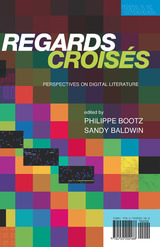 Regards Croises: Perspectives on Digital Literature
edited by Philippe Bootz and Sandy Baldwin
West Virginia University Press, 2010
What happens to literature in an age of digital technology? Regards Croisés: Perspectives on Digital Literature provides an answer, with a collection of cutting-edge critical essays on literature gone digital. Regards Croisés is an important addition to existing research on digital literature, and will appeal to scholars of electronic writing, digital art,humanities computing, media and communication, and others interested in the field. It offers a significant advance in the field through its wide-angle perspective that globalizes digital literature and diversifies the current critical paradigms. Regards Croisés shows how digital literature connects with traditions and future directions of reading and writing communities all over the world. With contributions by authors from eight countries and three continents, the collection presents points of view on a transcontinental practice of digital literature. Regards Croisés also opens dialogues with expanded critical paradigms of digital literature, beyond earlier critical concern with the aesthetics of the screen as a space of hypertext links. Many of the essays recognize a rich history and ongoing literary practice engaged with the basic fact of the computer as a programmable device. Other essays explore the latest developments in social media and Web 2.0 as venues for digital literature. Regards Croisés shows the vibrant engagement of writers and readers with literary practice in a digital world.
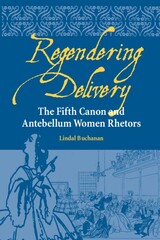 Regendering Delivery: The Fifth Canon and Antebellum Women Rhetors
Lindal Buchanan
Southern Illinois University Press, 2005 Lindal Buchanan thoroughly analyzes how antebellum women infiltrated the male-dominated realm of public speaking by adapting elocutionary instruction to subversive ends, developing distinctive delivery styles, and reconciling conflicting public and private roles. By detailing the education and oratorical practices of pioneering female public speakers, Regendering Delivery: The Fifth Canon and Antebellum Women Rhetors theorizes how gender impacted the fifth rhetorical canon of delivery and how cultural constructions of the feminine have shaped public performance. Buchanan argues that restrictive gender norms encouraged antebellum women rhetors to develop unique styles and methods of rhetorical production and performance. She examines how schoolgirls devised ways to learn and practice elocution in academic settings and how women developed inventive delivery strategies to maintain the appearance of femininity even as they participated in conventionally masculine discursive activities from general public speaking to political lobbying. She also identifies collaborative methods that enabled antebellum women to negotiate conflicts between their domestic and rhetorical commitments and thus reach public platforms Assessing the calculable impact of gender on rhetorical performance, Buchanan maintains that delivery holds particular sexual and textual connotations for women rhetors. Regendering Delivery notably contributes to ongoing feminist efforts to incorporate women into the rhetorical tradition by probing such gendered—and largely overlooked—aspects of oratorical delivery as cultural context, gender norms, elocutionary education, sexuality, maternity, feminine ethos, and collaboration.
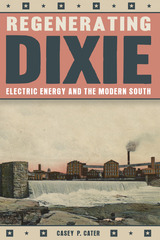 Regenerating Dixie: Electric Energy and the Modern South
Casey P. Cater
University of Pittsburgh Press, 2019 Regenerating Dixieis the first book that traces the electrification of the US South from the 1880s to the 1970s. It emphasizes that electricity was not solely the result of technological innovation or federal intervention. Instead, it was a multifaceted process that influenced, and was influenced by, environmental alterations, political machinations, business practices, and social matters. Although it generally hewed to national and global patterns, southern electrification charted a distinctive and instructive path and, despite orthodoxies to the contrary, stood at the cutting edge of electrification from the late 1800s onward. Its story speaks to the ways southern experiences with electrification reflected and influenced larger American models of energy development.
Inasmuch as the South has something to teach us about the history of American electrification, electrification also reveals things about the South’s past. The electric industry was no mere accessory to the “New South” agenda—the ongoing project of rehabilitating Dixie after the Civil War and Reconstruction. Electricity powered industrialism, consumerism, urban growth, and war. It moved people across town, changed land- and waterscapes, stoked racial conflict, sparked political fights, and lit homes and farms. Electricity underwrote people’s daily lives across a century of southern history.
But it was not simply imposed on the South. In fact, one Regenerating Dixie’s central lessons is that people have always mattered in energy history. The story of southern electrification is part of the broader struggle for democracy in the American past and includes a range of expected and unexpected actors and events. It also offers insights into our current predicaments with matters of energy and sustainability.
 Regenerating Japan: Organicism, Modernism and National Destiny in Oka Asajiro's Evolution and Human Life
Gregory Sullivan
Central European University Press, 2018 As the first step toward a comprehensive reinterpretation of the role of evolutionary science and biomedicine in pre-1945 Japan, this book addresses the early writings of that era’s most influential exponent of shinkaron (evolutionism), the German-educated research zoologist and popularizer of biomedicine, Oka Asajirō (1868–1944). Concentrating on essays that Oka published in the years during and after the Russo-Japanese War (1904–5), the author describes the process by which Oka came to articulate a programmatic modernist vision of national regeneration that would prove integral to the ideological climate in Japan during the first half of the twentieth century. In contrast to other scholars who insist that Oka was merely a rationalist enlightener bent on undermining state Shinto orthodoxy, Gregory Sullivan maintains that Oka used notions from evolutionary biology of organic individuality—especially that of the nation as a super-organism—to underwrite the social and geopolitical aims of the Meiji state. The author suggests that this generative scientism gained wide currency among early twentieth-century political and intellectual elites, including Emperor Hirohito himself, who had personal connections to Oka. The wartime ideology may represent an unfinished attempt to synthesize Shinto fundamentalism and the eugenically-oriented modernism that Oka was among the first to articulate.
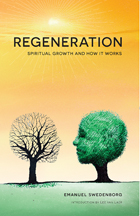 Regeneration: Spiritual Growth and How It Works
Emanuel Swedenborg
Swedenborg Foundation Publishers, 2014 Centuries before popular Western culture embraced meditation, positive thinking, and the quest for enlightenment, Swedish scientist-turned-seer Emanuel Swedenborg (1688–1772) developed a simple formula for achieving personal spiritual growth.
In his works, Swedenborg describes the two parts of our mind: the intellectual side that wrestles with questions of right and wrong, and the emotional side that drives us toward what we truly love. We are born with selfish impulses and desires, and while we may learn to act ethically, we don’t start growing as spiritual people until we transform our emotional side. That transformation, he says, happens from the outside in: first we decide intellectually to be more loving, and that decision leads us to choose consciously to act for the good of others. These external thoughts and actions gradually open us to a higher love, one that transforms our desires and ultimately our fundamental being. He calls this process regeneration.
Swedenborg discusses regeneration in many places throughout his prolific theological writings. This book brings his key teachings on this topic together in one volume, illustrating the process of becoming a spiritual being and discussing how and why that process works.
 Reggae Routes: The Story of Jamaican Music
Kevin Chang
Temple University Press, 1997 Bob Marley's recordings, some twenty years after his death, still enjoy enormous international popularity. For popular music fans in most of the world, reggae looms so large as to be Jamaica's only music and Marley its consummate musician. In this book, Jamaicans Kevin Chang and Wayne Chen offer a history of reggae, accounting for its rise and devolution.
Jamaican music can be roughly divided into four eras, each with a distinctive beat - ska, rocksteady, reggae, and dancehall. Ska dates from about 1960 to mid-1966 and rocksteady from 1966 to 1968, while from 1969 to 1983 reggae was the popular beat. The reggae era had two phases, "early reggae" up to 1974 and "roots reggae" up to 1983. Since 1983 dancehall has been the prevalent the prevalent sound.
The authors describe each stage in the development of the music, identifying the most popular songs and artists, highlighting the significant social, political, and economic issues as they affected the music scene. While they write from a Jamaican perspective, the intended audience is "any person, local or foreign, interested in an intelligent discussion of reggae music and Jamaica." Featuring some four hundred illustrations that range from album covers to rare photos, Reggae Routes profiles the innumerable artists, producers, and recordings that secured an international audience for Jamaican music.
Artists discussed: Toots and the Maytals, the Wailers, Gaylads, Desmond Dekker, Delroy Wilson, Alton Ellis, Burning Spear, Itals, Wailing Souls, Skatalites, Heptones, and hundreds more.
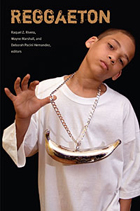 Reggaeton
Raquel Z. Rivera, Wayne Marshall, and Deborah Pacini Hernandez, eds.
Duke University Press, 2009 A hybrid of reggae and rap, reggaeton is a music with Spanish-language lyrics and Caribbean aesthetics that has taken Latin America, the United States, and the world by storm. Superstars—including Daddy Yankee, Don Omar, and Ivy Queen—garner international attention, while aspiring performers use digital technologies to create and circulate their own tracks. Reggaeton brings together critical assessments of this wildly popular genre. Journalists, scholars, and artists delve into reggaeton’s local roots and its transnational dissemination; they parse the genre’s aesthetics, particularly in relation to those of hip-hop; and they explore the debates about race, nation, gender, and sexuality generated by the music and its associated cultural practices, from dance to fashion. The collection opens with an in-depth exploration of the social and sonic currents that coalesced into reggaeton in Puerto Rico during the 1990s. Contributors consider reggaeton in relation to that island, Panama, Jamaica, and New York; Cuban society, Miami’s hip-hop scene, and Dominican identity; and other genres including reggae en español, underground, and dancehall reggae. The reggaeton artist Tego Calderón provides a powerful indictment of racism in Latin America, while the hip-hop artist Welmo Romero Joseph discusses the development of reggaeton in Puerto Rico and his refusal to embrace the upstart genre. The collection features interviews with the DJ/rapper El General and the reggae performer Renato, as well as a translation of “Chamaco’s Corner,” the poem that served as the introduction to Daddy Yankee’s debut album. Among the volume’s striking images are photographs from Miguel Luciano’s series Pure Plantainum, a meditation on identity politics in the bling-bling era, and photos taken by the reggaeton videographer Kacho López during the making of the documentary Bling’d: Blood, Diamonds, and Hip-Hop. Contributors. Geoff Baker, Tego Calderón, Carolina Caycedo, Jose Davila, Jan Fairley, Juan Flores, Gallego (José Raúl González), Félix Jiménez, Kacho López, Miguel Luciano, Wayne Marshall, Frances Negrón-Muntaner, Alfredo Nieves Moreno, Ifeoma C. K. Nwankwo, Deborah Pacini Hernandez, Raquel Z. Rivera, Welmo Romero Joseph, Christoph Twickel, Alexandra T. Vazquez
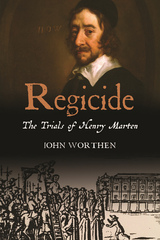 Regicide: The Trials of Henry Marten
John Worthen
Haus Publishing, 2022 An illuminating biography of a republican convicted of regicide, drawing on the letters he wrote from within the Tower of London.
Henry Marten—soldier, member of parliament, organizer of the trial of Charles I, and signatory of the King’s death warrant—is today a neglected figure of the seventeenth century. Yet his life was both extraordinary and emblematic: he was at the fulcrum of English history during the turbulent years of the civil war, the protectorate, and the restoration. Imprisoned in the Tower of London and tried at the Old Bailey, Marten was found guilty of high treason, only to be held captive for years on the equivalent of death row. While he was in prison, his letters to his mistress Mary Ward were stolen and published in an attempt to destroy his reputation. Witty, clever, loving, sardonic, and never despairing, the letters offer a rare and extraordinary insight into the everyday life of a man in the Tower awaiting a sentence of death. The attempt to expose him as immoral revealed him instead as a tender and brave man. In John Worthen’s revelatory biography, Marten emerges from the shadows as a brilliantly clever, lively-minded man, free of the fundamentalist zeal so common in many of his republican contemporaries. Marten never abandoned his beliefs in equality, in a representative parliament under a constitution (which he had helped to write) without a monarch or a House of Lords, and in that way can be seen as a very modern man.
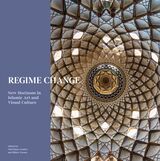 Regime Change: New Horizons in Islamic Art and Visual Culture
Edited by Christiane Gruber and Bihter Esener
Gingko, 2024 Nine essays first presented at the Historians of Islamic Art Association’s seventh biennial symposium, entitled “Regime Change.”
The essays collected in this volume highlight some of the regimes of thought and changing trends that structure the field of Islamic art history. The authors present new research exploring the intentions of patrons, the agency of craftsmen, and their responses to previous artistic production, thereby allowing artifacts and monuments to be set within their historical, social, and artistic contexts.
In their contributions, Annabel Teh Gallop, Dmitry Bondarev, and Umberto Bongianino discuss significant changes to Qur’an production due to dynastic and political regime changes in Sumatra and the Malay Peninsula, as well as in Borno and Morocco in Africa. Corinne Mühlemann looks at changes in the role and status of designers and weavers making silk in Khurasan in the post-Mongol period. Lisa Golombek, Michael Chagnon, and Farshid Emami explore Safavid art and architecture, focusing on the material and sensorial qualities of a group of tiled arch panels tiles with narrative scenes, a delicately painted vase, and the clocks of the main square of seventeenth-century Isfahan. Regime change also comes about through technological shifts, and Ulrich Marzolph and Yasemin Gencer ask how the rise of photography and new printing techniques shaped the production, exchange, and transmission of images in Iran and Turkey.
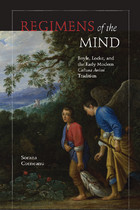 Regimens of the Mind: Boyle, Locke, and the Early Modern Cultura Animi Tradition
Sorana Corneanu
University of Chicago Press, 2011 In Regimens of the Mind, Sorana Corneanu proposes a new approach to the epistemological and methodological doctrines of the leading experimental philosophers of seventeenth-century England, an approach that considers their often overlooked moral, psychological, and theological elements. Corneanu focuses on the views about the pursuit of knowledge in the writings of Robert Boyle and John Locke, as well as in those of several of their influences, including Francis Bacon and the early Royal Society virtuosi. She argues that their experimental programs of inquiry fulfill the role of regimens for curing, ordering, and educating the mind toward an ethical purpose, an idea she tracks back to the ancient tradition of cultura animi. Corneanu traces this idea through its early modern revival and illustrates how it organizes the experimental philosophers’ reflections on the discipline of judgment, the study of nature, and the study of Scripture. It is through this lens, the author suggests, that the core features of the early modern English experimental philosophy—including its defense of experience, its epistemic modesty, its communal nature, and its pursuit of “objectivity”—are best understood.
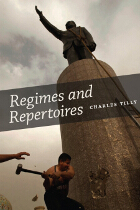 Regimes and Repertoires
Charles Tilly
University of Chicago Press, 2006 The means by which people protest—that is, their repertoires of contention—vary radically from one political regime to the next. Highly capable undemocratic regimes such as China's show no visible signs of popular social movements, yet produce many citizen protests against arbitrary, predatory government. Less effective and undemocratic governments like the Sudan’s, meanwhile, often experience regional insurgencies and even civil wars. In Regimes and Repertoires, Charles Tilly offers a fascinating and wide-ranging case-by-case study of various types of government and the equally various styles of protests they foster.
Using examples drawn from many areas—G8 summit and anti-globalization protests, Hindu activism in 1980s India, nineteenth-century English Chartists organizing on behalf of workers' rights, the revolutions of 1848, and civil wars in Angola, Chechnya, and Kosovo—Tilly masterfully shows that such episodes of contentious politics unfold like loosely scripted theater. Along the way, Tilly also brings forth powerful tools to sort out the reasons why certain political regimes vary and change, how the people living under them make claims on their government, and what connections can be drawn between regime change and the character of contentious politics.
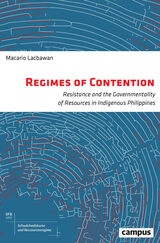 Regimes of Contention: Resistance and the Governmentality of Resources in Indigenous Philippines
Macario Lacbawan
Campus Verlag, 2021 An anthropological reflection on the shifting governmentality of Indigenous resources in the Philippines.
The notion of indigeneity in the Philippines is politically fraught. Most who live on the archipelago are descendants of aboriginal peoples, whether they claim tribal affiliation or not, and those who do enact traditional identities share little else in common. As a result, the term “indigenous” remains unstable and malleable seventy-five years after independence. Connecting insights from Tillian and Foucauldian social theory, Regimes illuminates how the ever-changing Philippine state, from the 1970s through today, constructs artificial subjectivities that Indigenous peoples must embody to access ancestral resources held by the federal government. What emerges is a lucid illustration of how governmentality is entangled with indigeneity in the Philippines.
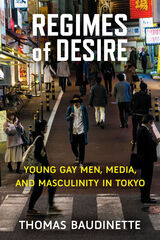 Regimes of Desire: Young Gay Men, Media, and Masculinity in Tokyo
Thomas Baudinette
University of Michigan Press, 2021 Shinjuku Ni-chōme is a nightlife district in central Tokyo filled with bars and clubs targeting the city’s gay male community. Typically understood as a “safe space” where same-sex attracted men and women from across Japan’s largest city can gather to find support from a relentlessly heteronormative society, Regimes of Desire reveals that the neighborhood may not be as welcoming as previously depicted in prior literature. Through fieldwork observation and interviews with young men who regularly frequent the neighborhood’s many bars, the book reveals that the district is instead a space where only certain performances of gay identity are considered desirable. In fact, the district is highly stratified, with Shinjuku Ni-chōme’s bar culture privileging “hard” masculine identities as the only legitimate expression of gay desire and thus excluding all those men who supposedly “fail” to live up to these hegemonic gendered ideals.
Through careful analysis of media such as pornographic videos, manga comics, lifestyle magazines and online dating services, this book argues that the commercial imperatives of the Japanese gay media landscape and the bar culture of Shinjuku Ni-chōme act together to limit the agency of young gay men so as to better exploit them economically. Exploring the direct impacts of media consumption on the lives of four key informants who frequent the district’s gay bars in search of community, fun and romance, Regimes of Desire reveals the complexity of Tokyo’s most popular “gay town” and intervenes in debates over the changing nature of masculinity in contemporary Japan.
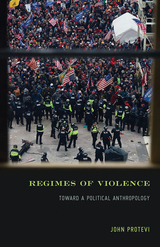 Regimes of Violence: Toward a Political Anthropology
John Protevi
University of Minnesota Press, 2025 A wide-ranging examination of the roots—and possible future—of violence in human societies Is aggression inevitable among humans? In Regimes of Violence, John Protevi explores how human violence originates and exists in our societies. Taking humans as biocultural (that is, our social practices shape our bodies and minds), he shows how aggression does not arrive from any purely biological predisposition but rather occurs only in social regimes of violence that, by manipulating the ways in which culture can shape our biological inheritance of rage and aggression, condition the forms of violence able to be expressed at any one time. Offering detailed insights into human aggression throughout history, Protevi’s analysis ranges from evolutionary psychology to affective ideology and finally to an alternate politics of joy. He examines a wide range of seemingly disparate topics, such as cooperation between early nomadic foragers, organized sports, berserkers and blackout rages, the experiences of maroons escaping slavery, the January 6 invasion of the United States Capitol building, and responses to the Covid-19 pandemic. As he entwines the philosophical with the anthropological, he asks readers to consider why humans’ capacity for cooperation and sharing is so persistently overlooked by stories that focus on aggression and warfare. Regimes of Violence is an important contribution to studies of Deleuze and Guattari, uniquely combining cutting-edge investigations in psychology, history, evolutionary theory, cultural anthropology, and philosophy to examine the “political philosophy of the mind.” Presenting to readers a refreshingly optimistic perspective, Protevi demonstrates that we are not doomed to war and argues that humans can build a world based on antifascism, joy, and mutual empowerment.
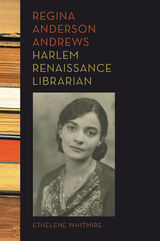 Regina Anderson Andrews, Harlem Renaissance Librarian
Ethelene Whitmire
University of Illinois Press, 2015 The first African American to head a branch of the New York Public Library (NYPL), Regina Andrews led an extraordinary life. Allied with W. E. B. Du Bois, Andrews fought for promotion and equal pay against entrenched sexism and racism and battled institutional restrictions confining African American librarians to only a few neighborhoods within New York City. Andrews also played a key role in the Harlem Renaissance, supporting writers and intellectuals with dedicated workspace at her 135th Street Branch Library. After hours she cohosted a legendary salon that drew the likes of Langston Hughes and Zora Neale Hurston. Her work as an actress and playwright helped establish the Harlem Experimental Theater, where she wrote plays about lynching, passing, and the Underground Railroad. Ethelene Whitmire's new biography offers the first full-length study of Andrews's activism and pioneering work with the NYPL. Whitmire's portrait of her sustained efforts to break down barriers reveals Andrews's legacy and places her within the NYPL's larger history.
Reginald and Gladys Laubin, American Indian Dancers
Starr West Jones
University of Illinois Press, 2000 The careers of the celebrated preservers of Native culture
Reginald and Gladys Laubin devoted their lives to preserving vanishing Indigenous American cultures. Their authentic Indian dances, costumes, and songs helped white Americans appreciate expressions of Native culture as an art that should be preserved. Native Americans of many peoples praised the Laubins as worthy envoys of their cultures. Audiences in the US, Europe, Israel, and Africa applauded their performances. Starr West Jones provides the historical context for the Laubins’ accomplishments by following their career through their long history of live appearances and discussing their books on American Indian tipis, dances, and archery.
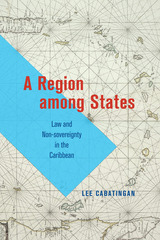 A Region among States: Law and Non-sovereignty in the Caribbean
Lee Cabatingan
University of Chicago Press, 2023 Based on long-term ethnographic fieldwork at the Caribbean Court of Justice, A Region among States explores the possibility of constituting a region on a geopolitical and ideological terrain dominated by the nation-state.
How is it that a great swath of the independent, English-speaking Caribbean continues to accept the judicial oversight of their former colonizer via the British institution of the Privy Council? And what possibilities might the Caribbean Court of Justice—a judicial institution responsive to the region, not to any single nation—offer for untangling sovereignty and regionhood, law and modernity, and postcolonial Caribbean identity?
Joining the Court as an intern, Lee Cabatingan studied its work up close: she attended each court hearing and numerous staff meetings, served on committees, assisted with the organization of conferences, and helped prepare speeches and presentations for the judges. She now offers insight into not only how the Court positions itself vis-à-vis the Caribbean region and the world but also whether the Court—and, perhaps, the region itself as an overarching construct—might ever achieve a real measure of popular success. In their quest for an accepting, eager constituency, the Court is undertaking a project of extrajudicial region building that borrows from the toolbox of the nation-state. In each chapter, Cabatingan takes us into an analytical dimension familiar from studies of nation and state building—myth, territory, people, language, and brand—to help us understand not only the Court and its ambitions but also the regionalist project, beset as it is with false starts and disappointments, as a potential alternative to the sovereign state.
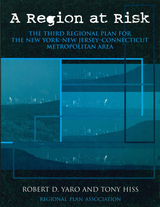 A Region at Risk: The Third Regional Plan For The New York-New Jersey-Connecticut Metropolitan Area
Robert D. Yaro and Tony Hiss
Island Press, 1996 Regional Plan Association, the nation's oldest regional planning organization, has worked since 1929 to improve the quality of life in the New York-New Jersey-Connecticut metropolitan area. The Association has crafted two long-term plans and successfully promoted their implementation through advocacy and coalition building. The Association's Third Regional Plan describes a series of key initiatives aimed at not only improving quality of life, but also at increasing economic competitiveness, encouraging more sustainable patterns of growth, and expanding opportunities and choice in employment, housing, and community. The Plan presents five major campaigns, each of which combines the goals of economic, equity, and environmental improvements. They are: - Greensward -- to protect and restore large natural resource systems at the periphery of urbanized areas
- Centers -- to "recenter" regions that have experienced decades of sprawl growth
- Mobility -- to transform existing transit infrastructure to create a regional express rail network that would dramatically improve public transit, reduce highway congestion, and speed freight movement
- Workforce -- to provide the region's workforce with the skills and opportunities needed to participate in the economy of the future
- Governance -- to rationalize the activities of existing authorities, encourage service sharing among municipal governments, and encourage more effective state and regional land-use planning programs
While focusing on the New York-New Jersey-Connecticut metropolitan area, the Plan's broad themes have universal applicability to regions throughout the industrialized world.
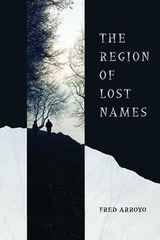 The Region of Lost Names
Fred Arroyo
University of Arizona Press, 2008 Remember that the dream of one is the dream of everyone.
Ernest is searching for a place where he can live beyond his past. His family has returned to Puerto Rico, and Ernest remains in the States, desiring only distance from his memories of childhood displacement and work, his parents’ tumultuous relationship, and his own love for Magdalene. Magdalene, too, looks to move beyond her memories as she follows Ernest’s family home, seeking resolution to her mother’s hurtful secrets, her father’s unknown identity, and her love for Ernest.
As Ernest moves through the fields of Michigan, as Magdalene traverses the jungles of Puerto Rico and the shores of the Caribbean, they discover that their dreams and identities are linked within the framework of their families and their pasts. Together, Ernest and Magdalene must come to terms with the secrets and mistakes made by the previous generation, the histories of disloyalty and abandonment, of secrecy and sorrow.
Their struggles take place in a region of lost names, where loves and memories are banished and found. Fred Arroyo writes a story in two voices, following Ernest and Magdalene by turns in prose that is elegant and lyrical. His words evoke another world lush with the scent of salt spray, the taste of mangoes, and the rush of leaves, alive with characters whose ardors and pathos are achingly real. Arroyo explores the ebb and flow between past and present and themes that are enduring. Ultimately, Ernest and Magdalene must live with more than their memories; they must rediscover the intimacies of the region of lost names.
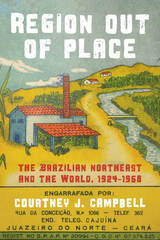 Region Out of Place: The Brazilian Northeast and the World, 1924-1968
Courtney J. Campbell
University of Pittsburgh Press, 2020 The Brazilian Northeast has long been a marginalized region with a complex relationship to national identity. It is often portrayed as impoverished, backward, and rebellious, yet traditional and culturally authentic. Brazil is known for its strong national identity, but national identities do not preclude strong regional identities. In Region Out of Place, Courtney J. Campbell examines how groups within the region have asserted their identity, relevance, and uniqueness through interactions that transcend national borders. From migration to labor mobilization, from wartime dating to beauty pageants, from literacy movements to representations of banditry in film, Campbell explores how the development of regional cultural identity is a modern, internationally embedded conversation that circulated among Brazilians of every social class. Part of a region-based nationalism that reflects the anxiety that conflicting desires for modernity, progress, and cultural authenticity provoked in the twentieth century, this identity was forged by residents who continually stepped out of their expected roles, taking their region’s concerns to an international stage.
Regional Advantage: Culture and Competition in Silicon Valley and Route 128
AnnaLee Saxenian
Harvard University Press, 1994 Why, in the ’90s, did business flourish in California’s Silicon Valley but decline along Route 128 in Massachusetts? The answer, Saxenian suggests, has to do with the fact that Silicon Valley developed a decentralized but cooperative industrial system while Route 128 came to be dominated by independent, self-sufficient corporations.
Regional Advantage: Culture and Competition in Silicon Valley and Route 128, With a New Preface by the Author
AnnaLee Saxenian
Harvard University Press, 1996 Why is it that in the ’90s, business in California’s Silicon Valley flourished, while along Route 128 in Massachusetts it declined? The answer, Annalee Saxenian suggests, has to do with the fact that despite similar histories and technologies, Silicon Valley developed a decentralized but cooperative industrial system while Route 128 came to be dominated by independent, self-sufficient corporations. The result of more than one hundred interviews, this compelling analysis highlights the importance of local sources of competitive advantage in a volatile world economy.
Regional and Global Capital Flows: Macroeconomic Causes and Consequences
Edited by Takatoshi Ito and Anne O. Krueger
University of Chicago Press, 2001 The volume of capital flows between industrial and developing countries has grown dramatically in the past decade and has become a major issue in a world that is increasingly "globalized." Here Takatoshi Ito and Anne O. Krueger, two leading experts on this topic, have assembled a group of scholars who address different types of capital flows—bank lending, bonds, direct foreign investment—and the implications they hold for economic performance. With its particular focus on the Asian financial crises, this work presents a new model for policy makers everywhere in thinking about the role of private capital flows.
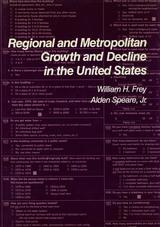 Regional and Metropolitan Growth and Decline in the US
William H. Frey
Russell Sage Foundation, 1988 During the 1970s, several striking population shifts attracted widespread attention and colorful journalistic labels. Urban gentrification, the rural renaissance, the rise of the Sunbelt—these phenomena signaled major reversals in long-term patterns of population distribution. In Regional and Metropolitan Growth and Decline in the United States, authors Frey and Speare place such reversals in context by examining a rich array of census data. This comprehensive study describes new population distribution patterns, explores their consequences, and evaluates competing explanations of current trends. The authors also provide an in-depth look at the changing race, status, and household demographics of the nation's largest cities and discuss the broad societal forces precipitating such changes. Frey and Speare conclude that the 1970s represented a "transition decade" in the history of population distribution and that patterns now emerging do not suggest a return to the past. With impressive scope and detail, this volume offers an unmatched picture of regional growth and decline across the United States. A Volume in the Russell Sage Foundation Census Series.
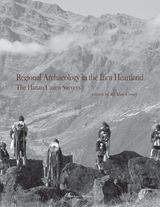 Regional Archaeology in the Inca Heartland: The Hanan Cuzco Surveys
Edited by R. Alan Covey
University of Michigan Press, 2014 The Cuzco region of highland Peru was the heartland of the Inca empire, the largest native state to develop in the Americas. Archaeologists have studied Inca monumental architecture for more than a century, but it is only in recent decades that regional survey work has systematically sought to reconstruct patterns of settlement, subsistence, and social organization in the region. This monograph presents the results of regional surveys conducted (from 2000 to 2008) to the north and west of the city of Cuzco, a region of approximately 1200 square kilometers that was investigated using the same field methodology as other systematic surveys in the Cuzco region. The study region, referred to as Hanan Cuzco in this volume, encompasses considerable environmental variations, ranging from warm valley-bottom lands to snow-capped mountains. The chapters in this volume present settlement pattern data from all periods of pre-Columbian occupation—from the arrival of the first hunter-gatherers to the transformation of valley-bottom fields by the last Inca emperors. A chapter on the colonial period discusses how Spanish colonial practices transformed an imperial landscape into a peripheral one. Together, the chapters in this volume contribute to the archaeological understanding of several central issues in Andean prehistory.
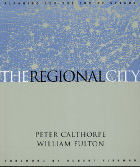 The Regional City
Peter Calthorpe and William Fulton
Island Press, 2001 Most Americans today do not live in discrete cities and towns, but rather in an aggregation of cities and suburbs that forms one basic economic, multi-cultural, environmental and civic entity. These “regional cities” have the potential to significantly improve the quality of our lives--to provide interconnected and diverse economic centers, transportation choices, and a variety of human-scale communities. In The Regional City, two of the most innovative thinkers in the field of land use planning and design offer a detailed look at this new metropolitan form and explain how regional-scale planning and design can help direct growth wisely and reverse current trends in land use. The authors: - discuss the nature and underpinnings of this new metropolitan form
- present their view of the policies and physical design principles required for metropolitan areas to transform themselves into regional cities
- document the combination of physical design and social and economic policies that are being used across the country
- consider the main factors that are shaping metropolitan regions today, including the maturation of sprawling suburbs and the renewal of urban neighborhoods .
Featuring full-color graphics and in-depth case studies, The Regional City offers a thorough examination of the concept of regional planning along with examples of successful initiatives from around the country. It will be must reading for planners, architects, landscape architects, local officials, real estate developers, community development professionals, and for students in architecture, urban planning, and policy.
Regional Economic Institutions and Conflict Mitigation: Design, Implementation, and the Promise of Peace
Yoram Z. Haftel
University of Michigan Press, 2014 In addition to the explicit goal of advancing mutual economic interests, regional economic organizations (REOs) are intended to foster regional cohesion and peace. Drawing on a data set detailing the institutional features of 25 REOs established during the 1980s and 1990s, complemented by a case study of ASEAN, Yoram Z. Haftel investigates the factors that affect REOs' ability to mitigate interstate military conflict. He finds fewer interstate conflicts among REO members who have developed high levels of economic integration and who cultivate regular interaction among member-states' representatives. Haftel concludes that, with an appropriate institutional design and fully implemented agreements, an REO can indeed play a role in mitigating interstate conflict and make a meaningful contribution to regional peace.
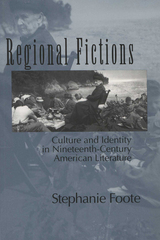 Regional Fictions: Culture and Identity in Nineteenth-Century American Literature
Stephanie Foote
University of Wisconsin Press, 2001
Out of many, one—e pluribus unum—is the motto of the American nation, and it sums up neatly the paradox that Stephanie Foote so deftly identifies in Regional Fictions. Regionalism, the genre that ostensibly challenges or offers an alternative to nationalism, in fact characterizes and perhaps even defines the American sense of nationhood.
In particular, Foote argues that the colorful local characters, dialects, and accents that marked regionalist novels and short stories of the late nineteenth century were key to the genre’s conversion of seemingly dangerous political differences—such as those posed by disaffected Midwestern farmers or recalcitrant foreign nationals—into appealing cultural differences. She asserts that many of the most treasured beliefs about the value of local identities still held in the United States today are traceable to the discourses of this regional fiction, and she illustrates her contentions with insightful examinations of the work of Sarah Orne Jewett, Hamlin Garland, Gertrude Atherton, George Washington Cable, Jacob Riis, and others. Broadening the definitions of regional writing and its imaginative territory, Regional Fictions moves beyond literary criticism to comment on the ideology of national, local, ethnic, and racial identity.
 Regional Garden Design in the United States
Therese O'Malley
Harvard University Press, 1995 Regionalism has become a much-discussed design issue for landscape architects in recent years. Increased mobility, uprootedness, and the pace of change in an increasingly technological society have contributed to interest in this concept, which places value on cultural continuity in local areas. This approach to garden design attempts to capture the spirit of the place, the plant material, and symbolic qualities that define a region’s natural and cultural character. These essays lay the foundation for examining regionalism in American garden design. The organization of the papers is by geographical area, covering the West Coast, the Midwest, the South, and New England. This volume also includes Wilhelm Miller’s seminal essay of 1915, “The Prairie Spirit in Landscape Gardening,” reprinted as an appendix. This essay, which is frequently cited but rarely seen, is often regarded as the regionalist manifesto.
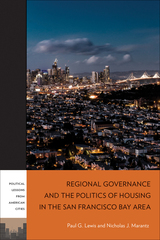 Regional Governance and the Politics of Housing in the San Francisco Bay Area
Paul G. Lewis and Nicholas J. Marantz
Temple University Press, 2023 The San Francisco Bay Area is generally considered the most expensive regional housing market in the country. Because the region added jobs and residents at a faster rate than housing, rents and home prices escalated. Moreover, small municipalities, common in the most job-rich parts of the Bay Area, have strong political incentives to resist development of new multifamily housing. Regional Governance and the Politics of Housing in the San Francisco Bay Area explains how a decentralized, localistic structure of government shapes land-use politics in ways that exacerbate housing shortages and inequalities.
The authors evaluate six potential reforms, arguing that targeted changes to local and regional institutions could generate durable improvements to the region’s housing opportunities. The main lesson from the case of the San Francisco Bay Area is the need to focus on governance when addressing the housing challenge. As the authors effectively illustrate, leaving a solution up to individual cities is unlikely to lead to increased housing supply.
 Regional Integration in Latin America and the Caribbean: The Political Economy of Open Regionalism
Edited by Victor Bulmer-Thomas
University of London Press, 2001 This collection is a sober assessment of the state of regional integration in Latin America and the Caribbean. It studies the question from four perspectives: economic, institutional, political, and in relation to the rest of the world. It considers the questions raised by LAC countries' efforts to use 'new' regionalism to address the challenges of globalization and to explore the nature and meaning of open regionalism. This thematic treatment draws on the experience of the different schemes currently in place in the region: NAFTA, CACM, CARICOM, the Andean Community and MERCOSUR. It also examines the nature of globalization, including concerns over the relationship between regionalism and the multilateral system. There is now a broad consensus among LAC countries that regional integration can help them adjust to the new world order, but there is much less agreement on how to achieve it and what reforms are needed to bring it about.
 Regional Integration: Theory and Research
Leon N. Lindberg
Harvard University Press International Organization, a quarterly journal published by the World Peace Foundation, has devoted a special issue to the subject of regional integration, the study of integration among nations through non-coercive means. The ten pieces presented here represent the variety of theories and approaches in the field. They also provide an evaluation of the first decade of its study as well as a report on current disputes and the prospects for future research. Ernst B. Haas has contributed "The Study of Regional Integration: Reflections on the Joy and Anguish of Pretheorizing." Also included are articles by Donald J. Puchala, Ronald Inglehart, J. S. Nye, Philippe C. Schmitter, Hayward R. Alker, Jr., Fred M. Hayward, and Andrezj Korbonski. Leon Lindberg has written "Political Integration as a Multidimensional Phenomenon Requiring Multivariate Measurement." Stuart Scheingold has contributed "Domestic and International Consequences of Regional Integration."
 Regional Literature and the Transmission of Culture: Chinese Drum Ballads, 1800–1937
Margaret B. Wan
Harvard University Press, 2020 Regional Literature and the Transmission of Culture provides a richly textured picture of cultural transmission in the Qing and early Republican eras. Drum ballad texts (guci) evoke one of the most popular performance traditions of their day, a practice that flourished in North China. Study of these narratives opens up surprising new perspectives on vital topics in Chinese literature and history: the creation of regional cultural identities and their relation to a central “Chinese culture”; the relationship between oral and written cultures; the transmission of legal knowledge and popular ideals of justice; and the impact of the changing technology of the late nineteenth and early twentieth centuries on the reproduction and dissemination of popular texts.
Margaret B. Wan maps the dissemination over time and space of two legends of wise judges; their journey through oral, written, and visual media reveals a fascinating but overlooked world of “popular” literature. While drum ballads form a distinctively regional literature, lithography in early twentieth-century Shanghai drew them into national markets. The new paradigm this book offers will interest scholars of cultural history, literature, book culture, legal history, and popular culture.
Regional Pathways to Complexity: Settlement and Land-Use Dynamics in Early Italy from the Bronze Age to the Republican Period
Peter Attema, Gert Jan Burgers, and Martijn Van Leusen
Amsterdam University Press, 2011 Synthesizing almost thirty years of Dutch archaeological research in central and southern Italy, this book discusses and compares settlement and land use patterns from the late protohistoric period to the late Roman Republic. Considering both social and environmental factors, the authors analyze the long-term progression of indigenous Bronze Age tribal pastoralist societies towards the complexity of urbanized Roman society. Drawing on a decade of collaboration between Dutch and Italian researchers, this exhaustive study will be of great interest to students and scholars of Mediterranean archaeology.
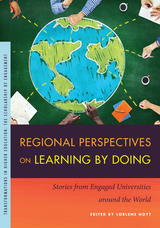 Regional Perspectives on Learning by Doing: Stories from Engaged Universities around the World
Lorlene Hoyt
Michigan State University Press, 2017 In what ways can universities around the world mobilize their resources to create more just and prosperous communities, while at the same time educating civic leaders? This collaboration from university professors, community partners, and students looking to inspire higher education reform seeks to answer that question. Regional Perspectives on Learning by Doing offers a diverse array of innovative teaching and research strategies from engaged universities—from Australia, Egypt, Malaysia, Mexico, Scotland, South Africa, and the United States—that demonstrates how learning by doing elevates students’ consciousness and develops their civic capabilities. While dealing creatively with pressing societal challenges, university students and others are learning together how to operate effectively in high- conflict situations; fashion bold approaches to combating poverty, promoting sustainability, and elevating public health; organize coalitions for change that bridge social and economic divides; and strengthen democratic decision-making in local communities and higher levels of governance. Students and teachers alike will gain valuable insight into building thriving communities as well as the tools to do so.
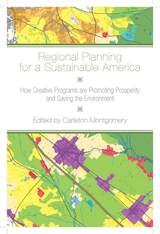 Regional Planning for a Sustainable America: How Creative Programs Are Promoting Prosperity and Saving the Environment
Montgomery, Carleton K
Rutgers University Press, 2012 Regional Planning for a Sustainable America is the first book to represent the great variety of today’s effective regional planning programs, analyzing dozens of regional initiatives across North America. The American landscape is being transformed by poorly designed, sprawling development. This sprawl—and its wasteful resource use, traffic, and pollution—does not respect arbitrary political boundaries like city limits and state borders. Yet for most of the nation, the patterns of development and conservation are shaped by fragmented, parochial local governments and property developers focused on short-term economic gain. Regional planning provides a solution, a means to manage human impacts on a large geographic scale that better matches the natural and economic forces at work. By bringing together the expertise of forty-two practitioners and academics, this book provides a practical guide to the key strategies that regional planners are using to achieve truly sustainable growth.
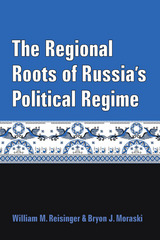 The Regional Roots of Russia's Political Regime
William M. Reisinger and Bryon J. Moraski
University of Michigan Press, 2017 In The Regional Roots of Russia’s Political Regime, William M. Reisinger and Bryon J. Moraski examine Russian politics at the subnational level in order to discover why democracy failed to take root and how Putin’s authoritarian regime materialized. Since the national regime needed dominant victories in federal legislative and presidential elections, elections were critical to the resurgence of Russian authoritarianism. At the same time, victories without a traditional nationwide political party required that regional politicians help deliver votes. Putin employed a variety of resources to encourage the collaboration of regional leaders during federal elections and to sanction those who would or could not deliver these votes.
By analyzing successive federal elections, Reisinger and Moraski show that regions that led the way in delivering votes in Putin’s favor were those that had been both more independent and more authoritarian during the Yeltsin era. These authoritarian enclaves under Yeltsin became models of behavior in the Putin regime, which prized deferential election results. Other regions were quick to follow this lead, functioning during Putin’s ascendancy as “swing states.” Still, Russia’s regimes continued to exhibit regime diversity, with democratic enclaves resisting the push to become cogs in the Kremlin’s electoral authoritarian wheel.
While motivated by scholarly questions about authoritarianism, democracy, and the influence of subnational forces on national regime trajectories, Reisinger and Moraski also consider policy-relevant questions.
The Regional Vocabulary of Texas
By E. Bagby Atwood
University of Texas Press, 1962 The vocabulary of Texas, and of the Southwest, has a character that sets it apart from all others. It is to some extent an amalgamation of words brought from other sections. A more important ingredient, however, has been a large group of words that initially grew into usage in Texas itself. Utilizing a thorough knowledge of language and a remarkable insight into linguistics, E. Bagby Atwood has compiled a reference book for scholars, writers, and laypeople whose interests involve the use of this vocabulary. It is a well-balanced book, designed to present to the reader not only the actual vocabulary in use but also the area involved, topical surveys of words used, their backgrounds, and geographical aspects of their usage. Easterners and Westerners alike will relish the unique flavor of the Southwestern vocabulary.
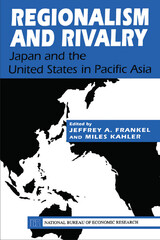 Regionalism and Rivalry: Japan and the U.S. in Pacific Asia
Edited by Jeffrey A. Frankel and Miles Kahler
University of Chicago Press, 1993 As Japan's newfound economic power leads to increased political power, there is concern that Japan may be turning East Asia into a regional economic bloc to rival the U.S. and Europe. In Regionalism and Rivalry, leading economists and political scientists address this concern by looking at three central questions: Is Japan forming a trading bloc in Pacific Asia? Does Japan use foreign direct investment in Southeast Asia to achieve national goals? Does Japan possess the leadership qualities necessary for a nation assuming greater political responsibility in international affairs?
The authors contend that although intraregional trade in East Asia is growing rapidly, a trade bloc is not necessarily forming. They show that the trade increase can be explained entirely by factors independent of discriminatory trading arrangements, such as the rapid growth of East Asian economies. Other chapters look in detail at cases of Japanese direct investment in Southeast Asia and find little evidence of attempts by Japan to use the power of its multinational corporations for political purposes. A third group of papers attempt to gauge Japan's leadership characteristics. They focus on Japan's "technology ideology," its contributions to international public goods, international monetary cooperation, and economic liberalization in East Asia.
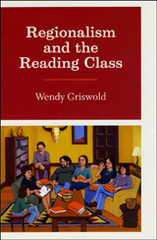 Regionalism and the Reading Class
Wendy Griswold
University of Chicago Press, 2008 Globalization and the Internet are smothering cultural regionalism, that sense of place that flourished in simpler times. These two villains are also prime suspects in the death of reading. Or so alarming reports about our homogenous and dumbed-down culture would have it, but as Regionalism and the Reading Class shows, neither of these claims stands up under scrutiny—quite the contrary.
Wendy Griswold draws on cases from Italy, Norway, and the United States to show that fans of books form their own reading class, with a distinctive demographic profile separate from the general public. This reading class is modest in size but intense in its literary practices. Paradoxically these educated and mobile elites work hard to put down local roots by, among other strategies, exploring regional writing. Ultimately, due to the technological, economic, and political advantages they wield, cosmopolitan readers are able to celebrate, perpetuate, and reinvigorate local culture.
Griswold’s study will appeal to students of cultural sociology and the history of the book—and her findings will be welcome news to anyone worried about the future of reading or the eclipse of place.
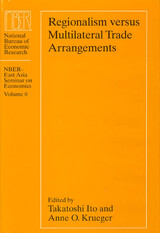 Regionalism versus Multilateral Trade Arrangements
Edited by Takatoshi Ito and Anne O. Krueger
University of Chicago Press, 1997 There is no doubt that the open multilateral trading system after World War II was a key ingredient in the rapid economic development of the entire world. Especially in Hong Kong, Korea, Singapore, and Taiwan, exports increased dramatically both in absolute terms and as a percentage of GNP. In the 1980s, however, preferential trading arrangements (PTAs) began to emerge as significant factors affecting world trade. This volume contains thirteen papers that analyze the tensions between multilateral trading systems and preferential trade arrangements and the impact of these tensions on East Asia. The first four chapters introduce PTAs conceptually and focus on the unique political issues that these agreements involve. The next five essays present more direct empirical analyses of existing PTAs and their economic effects, primarily in East Asia. The last four papers concentrate on the outcomes of individual East Asian nations' trading policies in specific instances of preferential agreements.
 Regionalism without Regions: Reconceptualizing Ukraine's Heterogeneity
Ulrich Schmid
Central European University Press, 2019 This collective volume shows how Ukraine can best be understood through its regions and how the regions must be considered against the background of the nation. The overarching objective of the book is to challenge the dominance of the nation-state paradigm in the analyses of Ukraine by illustrating the interrelationship between national and regional dynamics of change. The authors—historians, sociologists, anthropologists, economists, literary critics and linguists from Ukraine, Poland, Switzerland, Germany and the USA—explicitly go beyond the perspective of an entity defined by traditional political borders and cultural, economic, historical or religious stereotypes. The research project that led to the composition of the book combined quantitative (statistical surveys conducted across Ukraine) and qualitative (in-depth interviews and focus-group discussion) methods. The authors came to the conclusion that regionalism as a defining phenomenon of Ukraine is more prominent than the regions themselves. This approach regards Ukraine as a construct in flux where different discourses intersect, concur and eventually merge through the lenses of various disciplines and methodologies.
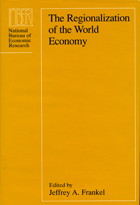 The Regionalization of the World Economy
Edited by Jeffrey A. Frankel
University of Chicago Press, 1997 Regional economic arrangements such as free trade areas (FTAs), customs unions, and currency blocs, have become increasingly prevalent in the world economy. Both pervasive and controversial, regionalization has some economists optimistic about the opportunities it creates and others fearful that it may corrupt fragile efforts to encourage global free trade.
Including both empirical and theoretical studies, this volume addresses several important questions: Why do countries adopt FTAs and other regional trading arrangements? To what extent have existing regional arrangements actually affected patterns of trade? What are the welfare effects of such arrangements? Several chapters explore the economic effects of regional arrangements on patterns of trade, either on price differentials or via the gravity model on bilateral trade flows. In addition, this book examines the theoretical foundation of the gravity model. Making extensive use of the gravity model of bilateral trade, several chapters explore the economic effects of regional arrangements. In addition, this book examines the theoretical foundation of the gravity model.
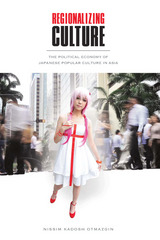 Regionalizing Culture: The Political Economy of Japanese Popular Culture in Asia
Nissim Kadosh Otmazgin
University of Hawaii Press, 2014 This ambitious work provides a comprehensive, empirically grounded study of the production, circulation, and reception of Japanese popular culture in Asia. While many studies typically employ an interactive approach that focuses on the “meaning” of popular culture from an anthropological or cultural studies point of view, Regionalizing Culture emphasizes that the consumption side and contextual meaning of popular culture are not the only salient factors in accounting for the proliferation of popular cultural products—the production side and organizational aspects are also important. In addition to presenting individual case studies, the book offers a big-picture view of the dramatic changes that have taken place in popular culture production and circulation in Asia over the past two decades.
The author has gleaned information from primary sources in Japanese, English, and other languages; research visits to Japan, Hong Kong, Singapore, Shanghai, Bangkok, and Seoul; as well as insights of people with firsthand knowledge from within the cultural industries. From this broad range of source, he develops an integrative political economic approach to popular culture. Regionalizing Culture offers a dialectical look at the organization of cultural production, primarily at the structure and control of cultural industries, interconnections between companies and production networks, and relations between the business sector and the state. It traces the rise of Japan as a popular culture powerhouse and the expansion of its cultural industries into Asian markets. It looks as well at the creation of markets for Japanese cultural commodities since the late 1980s, the industrial and normative impact that Japanese cultural industries have on the structure of the local cultural industries, and the wider implications these processes have for the Asian region.
The growing popularity and importance of Japan’s popular culture will make this book a basic text for scholars and students of popular culture as well as for those interested in political economy, media and communication studies, Japanese-Asian relations, Asian studies, and international relations.
Nissim Kadosh Otmazgin is lecturer in the Department of East Asian Studies, The Hebrew University of Jerusalem, and research fellow at the Harry S. Truman Research Institute for the Advancement of Peace.
Regionalizing Science: Placing Knowledges in Victorian England
Simon Naylor
University of Pittsburgh Press, 2010 Victorian England, as is well known, produced an enormous amount of scientific endeavour, but what has previously been overlooked is the important role of geography on these developments.
Naylor seeks to rectify this imbalance by presenting a historical geography of regional science. Taking an in-depth look at the county of Cornwall, questions on how science affected provincial Victorian society, how it changed people’s relationship with the landscape and how it shaped society are applied to the Cornish case study, allowing a depth and texture of analysis denied to more general scientific overviews of the period.
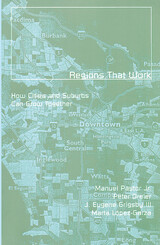 Regions That Work: How Cities and Suburbs Can Grow Together
Manuel Pastor, Jr.
University of Minnesota Press, 2000 "A remarkable and timely book. . . . Must reading." William Julius Wilson Offering a new vision of community-based regionalism, this book arrives just as "smart growth" measures and other attempts to link cities and suburbs are beginning to make their mark on the political and analytical scene. The authors make a powerful case for emphasizing equity, arguing that metropolitan areas must reduce poverty in order to grow and that low-income individuals must make regional connections in order to escape poverty. A hard-hitting analysis of Los Angeles demonstrates that the roots of the unrest of 1992 lay in regional economic deterioration and that the recovery was slowed by insufficient attention to the poor. Regions That Work then provides a history and critique of community-development corporations, a statistical analysis of the poverty-growth relationship in seventy-four metro areas, a detailed study of three regions that have produced superior equity outcomes, and a provocative call for new policies and new politics.
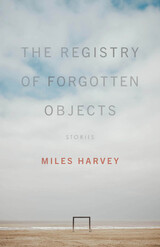 The Registry of Forgotten Objects: Stories
Miles Harvey
Ohio State University Press, 2024 In this haunting debut collection, best-selling author Miles Harvey probes the mysterious relationship between human longings and the secret lives of inanimate objects. In one story, an artist discovers an uncanny ability to transform modern sculptures into priceless ancient treasures. In another, a teenager experiences visions of other people’s pasts while vandalizing their abandoned houses. In a third, a grieving couple returns again and again to the beach where their son disappeared, pulling plastic bottles, fishing nets, buoys, and other bits of beach trash from the surf “as if those random bits of wreckage were the untranslated hieroglyphs of some secret language that might help them understand their loss.” Harvey—whose work Dave Eggers called “ludicrously unputdownable”—delivers a constellation of stories that explore the gravitational pull of material things: how they drift into and out of our hands, how they assume new meanings, and the ways they serve as conduits between the present and past, the everyday and incomprehensible. Most of all, he explores how these objects have the power to reveal strange and moving facets of the human condition.
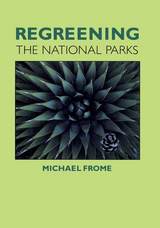 Regreening the National Parks
Michael Frome
University of Arizona Press, 1992 What has happened to our national parks?
Overcrowding and commercialization are commonplace, and with the increase in visitation has come not only congestion but crime. Yet visitor enjoyment seems to be a higher priority of those who manage the parks than the protection and perpetuation of natural systems. How could this have happened? Michael Frome, one of the most outspoken and highly regarded observers of our national parks, here shows how the original mission of the National Park Service has been undermined by politicization and bureaucratization.
Regreening the National Parks tells how the Park Service has been transformed from a professional to a political agency and in the process has betrayed its own values by emphasizing recreation and "short-order wilderness served like fast food" rather than the preservation of the nation's natural heritage. Frome has drawn on both official documents and personal interviews to examine the policies--and personalities--behind the scenes at the National Park Service. He cites instances of personnel being forbidden to criticize public policy in which they found a conflict with conservation principles, and contends that, as the Park Service has become more bureaucratic, those for whom the environment deeply matters scarcely rise within its ranks. In considering the environmental abuse rampant today, Frome sees national parks as models of respect for nature and concludes his book with a ten-point program toward realizing that ideal.
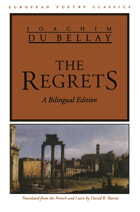 The Regrets
Joachim du Bellay
Northwestern University Press, 2004 A bilingual edition of one of the finest sonnet sequences of the Renaissance
As a member of the mid-sixteenth-century literary group La Pléiade, Joachim du Bellay sought to elevate his native French to the level of the classical languages—a goal pursued with great spirit, elegance, irony, and wit in the poems that comprise The Regrets. Widely viewed as one of the finest sonnet sequences in all of French literature, this Renaissance masterpiece wryly echoes the homesickness and longing of Ovid's poetry written in exile—because du Bellay finds himself lost in Rome, the very home Ovid longed for. In this translation by David R. Slavitt, these brilliant performances retain their original formal playfulness as well as their gracefully rendered but nonetheless moving melancholy. In decadent Rome, among hypocrites, thieves, and snobs, du Bellay uses his poetry as an opportunity for social satire and caustic self-criticism-it becomes a salvation of sorts, an approach peculiarly modern in its blending of the classical, the social, and the personal.
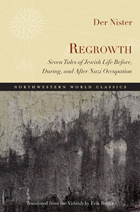 Regrowth: Seven Tales of Jewish Life Before, During, and After Nazi Occupation
Der Nister
Northwestern University Press, 2011 The seven stories that compose Regrowth (Vidervuks) might shock readers familiar with accounts of the Holocaust marked by mournful and sentimental overtones. Although the outcome is often terrible, Der Nister’s characters refuse to accept the role of victim. Likewise, the monstrosity of the perpetrators is not at issue: the Nazis may be abominable, but they do not warrant attention for longer than a savage animal would. Der Nister is drawn to parties capable of moral decision—and their dilemmas often feature an opponent that is inside one’s own people, inside oneself. “Flora,” for example, follows a father and daughter through the Nazi invasion and later Soviet occupation of a Polish-Jewish city.
Der Nister paints a sympathetic portrait of the father, a member of the Jewish Council, even though he collaborates with the Nazis in a misguided attempt to help his people. To repair the father’s mistake, his daughter joins the resistance, seduces a traitor, and delivers him to his death. Accounts are settled within the Jewish community. The Nazi enemy is largely passed over in the silence his infamy deserves. Der Nister’s characters are crafty, and they do not hesitate to use force when necessary. After the defeat of the Nazis and Soviet takeover, Der Nister suggests, the maneuvering will continue. The morally complex characters and richly layered stories of Regrowth ultimately reclaim a more nuanced view of crimes still not fully reckoned.
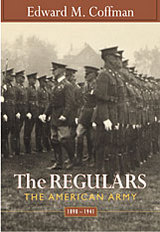 The Regulars: The American Army, 1898–1941
Edward M. Coffman
Harvard University Press, 2007 In 1898 the American Regular Army was a small frontier constabulary engaged in skirmishes with Indians and protesting workers. Forty-three years later, in 1941, it was a large modern army ready to wage global war against the Germans and the Japanese. In this definitive social history of America's standing army, military historian Edward Coffman tells how that critical transformation was accomplished.
Coffman has spent years immersed in the official records, personal papers, memoirs, and biographies of regular army men, including such famous leaders as George Marshall, George Patton, and Douglas MacArthur. He weaves their stories, and those of others he has interviewed, into the story of an army which grew from a small community of posts in China and the Philippines to a highly effective mechanized ground and air force. During these years, the U.S. Army conquered and controlled a colonial empire, military staff lived in exotic locales with their families, and soldiers engaged in combat in Cuba and the Pacific. In the twentieth century, the United States entered into alliances to fight the German army in World War I, and then again to meet the challenge of the Axis Powers in World War II.
Coffman explains how a managerial revolution in the early 1900s provided the organizational framework and educational foundation for change, and how the combination of inspired leadership, technological advances, and a supportive society made it successful. In a stirring account of all aspects of garrison life, including race relations, we meet the men and women who helped reconfigure America's frontier army into a modern global force.
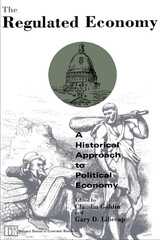 The Regulated Economy: A Historical Approach to Political Economy
Edited by Claudia Goldin and Gary D. Libecap
University of Chicago Press, 1994 How has the United States government grown? What political and economic factors have given rise to its regulation of the economy? These eight case studies explore the late-nineteenth- and early twentieth-century origins of government intervention in the United States economy, focusing on the political influence of special interest groups in the development of economic regulation.
The Regulated Economy examines how constituent groups emerged and demanded government action to solve perceived economic problems, such as exorbitant railroad and utility rates, bank failure, falling agricultural prices, the immigration of low-skilled workers, workplace injury, and the financing of government. The contributors look at how preexisting policies, institutions, and market structures shaped regulatory activity; the origins of regulatory movements at the state and local levels; the effects of consensus-building on the timing and content of legislation; and how well government policies reflect constituency interests.
A wide-ranging historical view of the way interest group demands and political bargaining have influenced the growth of economic regulation in the United States, this book is important reading for economists, political scientists, and public policy experts.
Regulating a New Economy: Public Policy and Economic Change in America, 1900–1933
Morton Keller
Harvard University Press, 1990 Morton Keller, a leading scholar of twentieth-century American history, describes the complex interplay between rapid economic change and regulatory policy. In its portrait of the response of American politics and law to a changing economy, this book provides a fresh understanding of emerging public policy for a modern nation.
 Regulating a New Society: Public Policy and Social Change in America, 1900–1933
Morton Keller
Harvard University Press, 1994 A leading scholar of twentieth-century American history looks again at the beginning of the century, this time giving us a remarkable portrait of the emergence of modern society and its distinctive transformations and social problems. As in Regulating a New Economy, his earlier book on the changing American economy, Morton Keller integrates political, legal, and governmental history, now providing the first comprehensive study of the ideas and interests that shaped early twentieth-century American social policy.
Keller looks at the major social institutions: the family, voluntary associations, religion, and education. He examines important social issues: the rights of the individual, the regulation of public mores (gambling, drugs, prostitution, alcohol abuse), the definition and punishment of crime, and social welfare policy (poverty, public health, conditions of labor). His final area of concern is one that assumed new importance after 1900: social policy directed at major groups, such as immigrants, blacks, Native Americans, and women.
The interpretive theme is fresh and controversial. Keller sees early twentieth-century American government not as an artifact of class, race, and gender conflict but as the playing out of tension between the Progressive thrust to restore social cohesion through the principle of order and organization and two other, mutually antipodal, social interests: the weight of the American past and the growing pluralism of modern America. The interplay among these elements—progressivism, persistence, pluralism—shaped early twentieth-century social policy. The result was no clear victory for any one of these public attitudes, but rather the emergence and delineation of most of the social issues that have dominated American public life for the rest of the century.
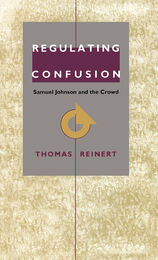 Regulating Confusion: Samuel Johnson and the Crowd
Thomas Reinert
Duke University Press, 1996 With the urbanization of eighteenth-century English society, moral philosophers became preoccupied with the difference between individual and crowd behavior. In so doing, they set the stage for a form of political thought divorced from traditional moral reflection. In Regulating Confusion Thomas Reinert places Samuel Johnson in the context of this development and investigates Johnson’s relation to an emerging modernity.
Ambivalent about the disruption, confusion, perplexity, and boundless variety apparent in the London of his day, Johnson was committed to the conventions of moral reflection but also troubled by the pressure to adopt the perspective of the crowd and the language of social theory. Regulating Confusion explores the consequences of his ambivalence and his attempt to order the chaos. It discusses his critique of moral generalizations, concept of moral reflection as a symbolic gesture, and account of what happens to the notion of character when individuals, having lost the support of moral convention, become faces in a crowd. Reflecting generally on the relationship between skepticism and political ideology, Reinert also discusses Johnson’s political skepticism and the forms of speculation and action it authorized.
Challenging prevalent psychologizing and humanistic interpretations, Regulating Confusion leaves behind the re-emergent view of Johnson as a reactionary ideologue and presents him in a theoretically sophisticated context. It offers his style of skepticism as a model of poise in the face of confusion about the nature of political truth and personal responsibility and demonstrates his value as a resource for students of culture struggling with contemporary debates about the relationship between literature and politics.
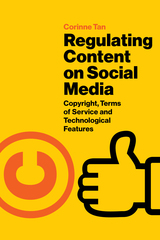 Regulating Content on Social Media: Copyright, Terms of Service and Technological Features
Corinne Tan
University College London, 2018 How are social media users influenced by platform when creating content, and does this influence determine whether or not they comply with copyright laws? These are pressing questions in today’s internet age, and Regulating Content on Social Media answers them by analyzing social media use from a copyright perspective. Corinne Tan compares the regulation of copyright laws across selected social media platforms—Facebook, Pinterest, YouTube, Twitter, and Wikipedia—with other regulatory factors such as the terms of service and the technological features of each platform. This comparison enables her to explore how each platform affects the role copyright laws play in securing compliance from their users. Through empirical research and a hypothetical case study detailing the social media activities of user Jane Doe, the book argues that, in spite of copyright laws’ purported regulation, users are encouraged by the social media platforms themselves to behave in ways that may be inconsistent with the law.
The first book to look at how social media platforms affect users’ compliance with copyright laws, Regulating Content on Social Media is a timely addition to the current media landscape.
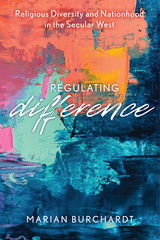 Regulating Difference: Religious Diversity and Nationhood in the Secular West
Marian Burchardt
Rutgers University Press, 2020 2021 ISSR Best Book Award (International Society for the Sociology of Religion)
Transnational migration has contributed to the rise of religious diversity and has led to profound changes in the religious make-up of society across the Western world. As a result, societies and nation-states have faced the challenge of crafting ways to bring new religious communities into existing institutions and the legal frameworks. Regulating Difference explores how the state regulates religious diversity and examines the processes whereby religious diversity and expression becomes part of administrative landscapes of nation-states and people’s everyday lives. Arguing that concepts of nationhood are key to understanding the governance of religious diversity, Regulating Difference employs a transatlantic comparison of the Spanish region of Catalonia and the Canadian province of Quebec to show how processes of nation-building, religious heritage-making and the mobilization of divergent interpretations of secularism are co-implicated in shaping religious diversity. It argues that religious diversity has become central for governing national and urban spaces.
This book is also freely available online as an open access digital edition.
 Regulating How We Die: The Ethical, Medical, and Legal Issues Surrounding Physician-Assisted Suicide
Linda L. Emanuel
Harvard University Press, 1998 The Supreme Court has ruled that states may prohibit physician-assisted suicide. Expressing the views of his fellow justices, Chief Justice Rehnquist wrote, "Americans are engaged in an earnest and profound debate about the morality, legality, and practicality of physician-assisted suicide. Our holding permits this debate to continue." Regulating How We Die is certain to be a landmark contribution to that debate.Dr. Linda Emanuel--one of America's most influential medical ethicists--has assembled leading experts to provide not only a clear account of the arguments for and against physician-assisted suicide and euthanasia but also historical, empirical, and legal perspectives on this complicated issue. These contributors include Marcia Angell, George Annas, Susan Wolf, and many others.
The important questions are addressed here, including: What does mercy dictate? Does physician-assisted suicide honor or violate autonomy? Is it more dignified than natural death? Is this decision purely a private matter? Will legalizing physician-assisted suicide put us on a slippery slope toward involuntary euthanasia? And, in an analysis of data not available in any other book, what can we learn from Holland, the only country in which physician-assisted suicide and euthanasia are legal?
Regulating How We Die will be essential reading for anyone who has been handed a terminal diagnosis, for people close to those facing such a diagnosis, for professionals, including physicians, nurses, pastors, lawyers, legislators--indeed, for anyone who has considered the moral and political debate over doctor-assisted suicide.
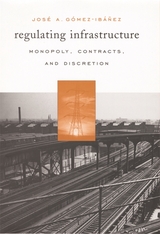 Regulating Infrastructure: Monopoly, Contracts, and Discretion
José A. Gómez-Ibáñez
Harvard University Press, 2006 In the 1980s and ’90s many countries turned to the private sector to provide infrastructure and utilities, such as gas, telephones, and highways—with the idea that market-based incentives would control costs and improve the quality of essential services. But subsequent debacles including the collapse of California’s wholesale electricity market and the bankruptcy of Britain’s largest railroad company have raised troubling questions about privatization. This book addresses one of the most vexing of these: how can government fairly and effectively regulate “natural monopolies”—those infrastructure and utility services whose technologies make competition impractical?
Rather than sticking to economics, José Gómez-Ibáñez draws on history, politics, and a wealth of examples to provide a road map for various approaches to regulation. He makes a strong case for favoring market-oriented and contractual approaches—including private contracts between infrastructure providers and customers as well as concession contracts with the government acting as an intermediary—over those that grant government regulators substantial discretion. Contracts can provide stronger protection for infrastructure customers and suppliers—and greater opportunities to tailor services to their mutual advantage. In some cases, however, the requirements of the firms and their customers are too unpredictable for contracts to work, and alternative schemes may be needed.
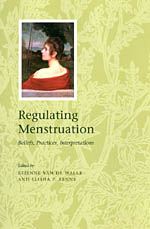 Regulating Menstruation: Beliefs, Practices, Interpretations
Edited by Etienne van de Walle and Elisha P. Renne
University of Chicago Press, 2001 Menstruation, seen alternately as something negative—a "curse" or a failed conception—or as a positive part of the reproductive process to be celebrated as evidence of fertility, has long been a universal concern. How women interpret and react to menstruation and its absence reflects their individual needs both historically as well as in the contemporary cultural, social, economic, and political context in which they live. This unique volume considers what is known of women's options and practices used to regulate menstruation—practices used to control the periodicity, quantity, color, and even consistency of menses—in different places and times, while revealing the ambiguity that those practices present.
Originating from an Internet conference held in February 1998, this volume contains fourteen papers that have been revised and updated to cover everything from the impact of the birth control pill to contemporary views on reproduction to the pharmacological properties of various herbal substances, reflecting the historical, contemporary, and anthropological perspectives of this timely and complex issue.
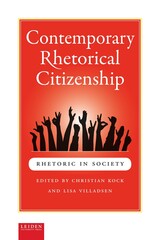 Regulating Political Parties: European Democracies in Comparative Perspective
Ingrid van Biezen
Amsterdam University Press, 2015 Regulating Political Parties provides a novel and valuable contribution to the existing literature on political parties by discussing the various dimensions of party law and regulation, in Europe and other regions of the world. To what extent are political parties legitimate objects of state regulation? What are the dilemmas of regulating political finance? To what extent are parties accorded a formal constitutional status? What are the consequences of legal bans on political parties? How do legal arrangements affect parties representing ethnic minorities? These and related questions are discussed and examined from both theoretical and empirical perspectives. By bringing together international experts from the disciplines of law and political science, this volume thus addresses from an interdisciplinary and comparative point of view what has long been a notable lacuna in the study of political parties.
 Regulating Romance: Youth Love Letters, Moral Anxiety, and Intervention in Uganda’s Time of AIDS
Shanti Parikh
Vanderbilt University Press, 2016 Drawing on ten years of ethnographic research, two hundred fifty interviews, and over three hundred youth love letters, author Shanti Parikh uses lively vignettes to provide a rare window into young people's heterosexual desires and practices in Uganda. In chapters entitled "Unbreak my heart," "I miss you like a desert missing rain," and "You're just playing with my head," she invites readers into the world of secret longings, disappointments, and anxieties of young Ugandans as they grapple with everyday difficulties while creatively imagining romantic futures and possibilities.
Parikh also examines the unintended consequences of Uganda's aggressive HIV campaigns that thrust sexuality and anxieties about it into the public sphere. In a context of economic precarity and generational tension that constantly complicates young people's notions of consumption-based romance, communities experience the dilemmas of protecting and policing young people from reputational and health dangers of sexual activity. "They arrested me for loving a school girl" is the title of a chapter on controlling delinquent daughters and punishing defiant boyfriends for attempting to undermine patriarchal authority by asserting their adolescent romantic agency. Sex education programs struggle between risk and pleasure amidst morally charged debates among international donors and community elders, transforming the youthful female body into a platform for public critique and concern. The many sides of this research constitute an eloquently executed critical anthropology of intervention.
|
|
